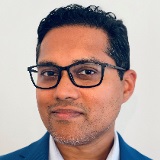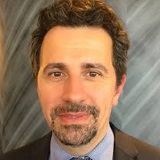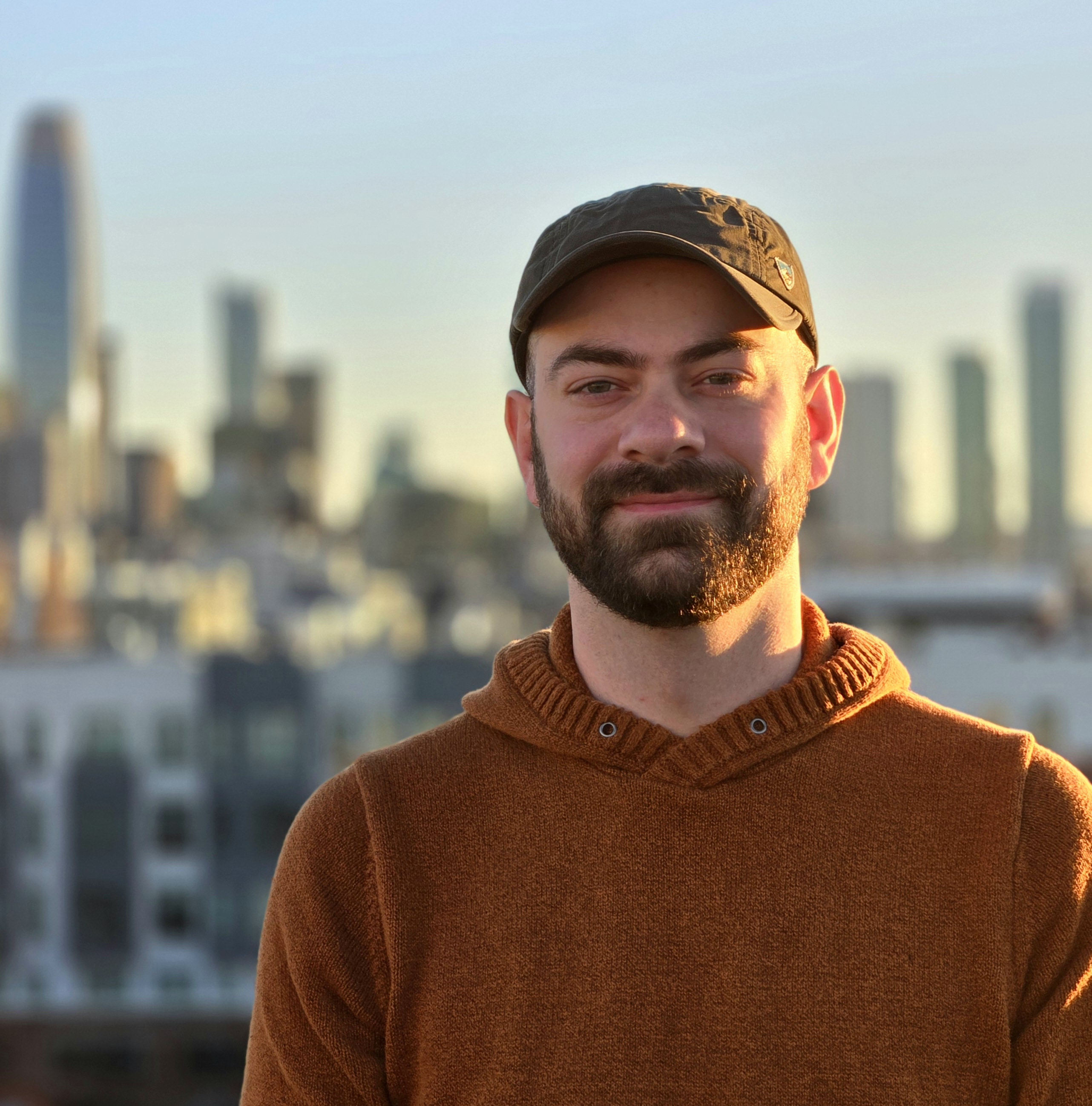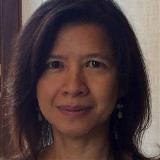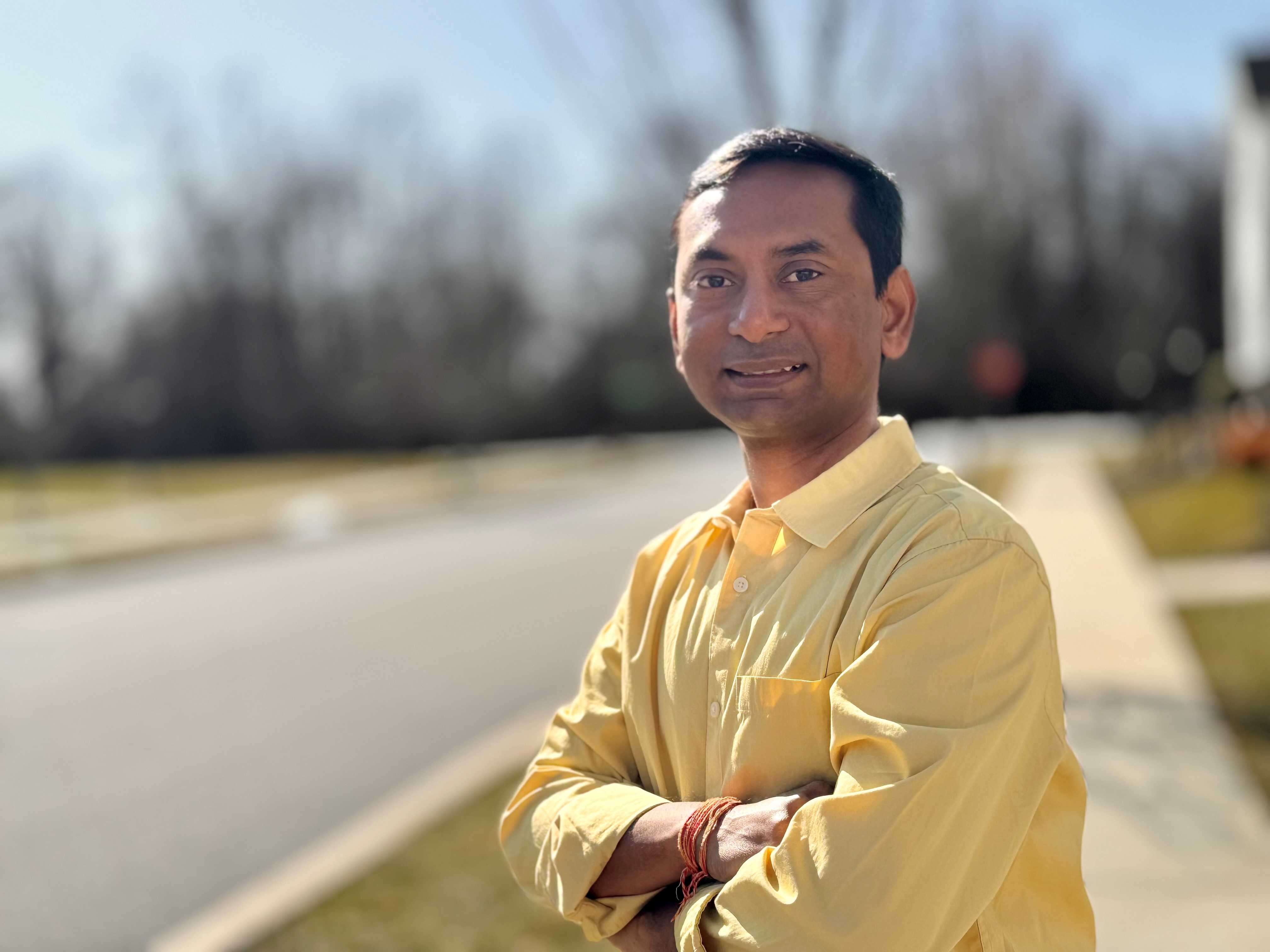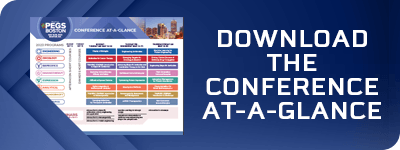演講者
Filter by:
Yasmina Abdiche, PhD, Vice President, Exploratory Research, OmniAb Inc. (Moderator)

Yasmina is an internationally recognized and innovative scientific leader in the field of antibody discovery and biosensors with twenty years of experience in protein engineering and biopharma. To date, she has authored over 45 peer-reviewed publications, had 25 patents granted in the therapeutic antibody space including a market-approved drug (Ajovy), presented over 50 times as an invited speaker globally, and has been involved in numerous industry-wide collaborations and scientific advisory groups. After a twelve-year career at Pfizer where she held positions of increasing responsibility from Principal Scientist to Research Fellow, more recently, Yasmina has held senior management roles at biotechnology companies and contract research organizations including Carterra (CSO), ImmunoPrecise Antibodies (CSO), ALX Oncology (Vice President Protein Science), Revelar (CSO and Co-Founder), and FairJourney Biologics (CTO). During her time as CSO at Carterra, she co-founded its antibody screening biosensor platform (the LSA) which has helped transform label-free interaction analysis in early-stage drug discovery. Yasmina has a Master's degree in Chemistry and a PhD in Biological Chemistry from Oxford University and did post-doctoral studies in biophysical interaction analysis at the University of Utah.
Federica Accornero, PhD, Associate Professor, Molecular Biology, Cell Biology and Biochemistry, Brown University

Dr. Accornero obtained her PhD from the University of Turin, Italy, studying mechanotransduction in the heart. To deepen her molecular cardiology knowledge, she joined the laboratory of HHMI investigator Jeff Molkentin at Cincinnati Children’s Hospital where she mastered mouse engineering and muscle physiology. Dr. Accornero started her independent academic career at the Ohio State University where her group started to elucidate the molecular mechanisms underlying heart and skeletal muscle diseases. She was then recruited to Brown University in the summer of 2023 as part of the Brown Center for RNA Biology. Both her discoveries and mentorship skills were recognized by multiple awards, including the Louis N. and Arnold M. Katz Basic Science Research Prize from the American Heart Association. Her work has been published in major scientific journals, such as Circulation, Journal of Clinical Investigation, Circulation Research, Plos Pathogens, Matrix Biology, Molecular Metabolism, and Nature Communications.
Chloe Ackaert, PhD, Senior Scientist, Immunogenicity, ImmunXperts, a Q2 Solutions Company
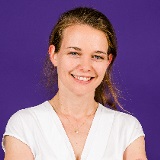
Chloe Ackaert is a pharmacist by training (Catholic University of Leuven 2009) and obtained her PhD at the University of Salzburg (Austria) for the research on the impact of nitration on the immunogenicity of birch pollen allergens in 2013. She first joined ImmunXperts in the start-up phase and continued academic research at the Free University of Brussels (2015-2018) working on the immunogenicity of Nanobodies. Afterwards, she joined ImmunXperts again where she is a senior scientist in the immunogenicity team, collaborating both on the client-based projects as well as on the continuous basic research projects to elucidate immunogenicity-related questions.
Shelley E. Ackerman, PhD, Director, Bolt Biotherapeutics Inc.

Shelley Ackerman is the co-inventor of a novel cancer immunotherapy technology from her research while a graduate student in Edgar Engleman's lab at Stanford University. This platform, termed Immune Stimulating Antibody Conjugates, is the basis for the pipeline now being developed by Bolt Biotherapeutics. Now a Director at Bolt Biotherapeutics, Shelley leads a team of researchers driving pre-clinical research to translate these therapeutics to the clinic. Shelley has presented seminars and at numerous conferences on her work and on behalf of Bolt Biotherapeutics, and is the first author of a high-impact manuscript published in Nature Cancer. Prior to completing her PhD in Bioengineering at Stanford University, Shelley received a bachelor's degree in Biological Engineering from MIT.
Gregory P. Adams, PhD, CSO, Elucida Oncology, Inc.
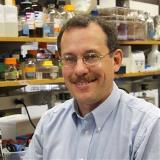
Dr. Adams is Chief Scientific Officer of Elucida Oncology, a clinical stage company developing antibody-toxin fusion proteins for the treatment of cancer. In this role he is responsible for guiding the development of the company’s pipeline assets. Before moving to biotech, Dr. Adams was the Director of Biological Research and Therapeutics and previously co-led the Developmental Therapeutics Program at the Fox Chase Cancer Center, an NCI designated comprehensive cancer center in Philadelphia. Dr. Adams is an immunologist with over 30 years of experience in developing antibody-based agents for the treatment and detection of cancer. He received a Ph.D. in Immunology from the University of California at Davis in 1991. He joined Fox Chase Cancer Center in Philadelphia where he led a laboratory focused on developing antibodies and antibody-drug conjugates for the treatment of breast, ovarian and renal cancer. Dr. Adams serves on the Editorial Boards of Cancer Immunology Research and Cancer Biotherapy & Radiopharmaceuticals. He has served on the Scientific Advisory Boards of a number of biotechnology companies including Endo Pharmaceuticals, Symphogen, Avipep, Viventia Bio, AvidBiologics, Xerion, Fabrus, Integral Molecular and YM Biosciences.
Prasad Adusumilli, MD, FACS, FCCP, Deputy Chief and Attending, Thoracic Surgery; Vice Chair, Department of Surgery; Director, Mesothelioma Program, Memorial Sloan-Kettering Cancer Center; Associate Professor, Cardiothoracic Surgery, Weill Cornell Medical Center

Dr. Prasad Adusumilli is a thoracic surgeon in New York, New York, and is affiliated with Memorial Sloan-Kettering Cancer Center.
Haig Aghajanian, PhD, Co-Founder & Vice President of Research, Capstan Therapeutics
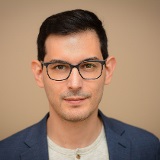
Haig Aghajanian, PhD is Co-Founder, Vice President, and Head of Research at Capstan Therapeutics, and Adjunct Assistant Professor of Medicine at the Perelman School of Medicine at the University of Pennsylvania. At the University of Pennsylvania, he authored several high-impact publications including a first-author publication in Nature using CAR T cells against cardiac fibrosis and a senior-author publication in Science using targeted lipid nanoparticles to reprogram immune cells in vivo. He received his PhD in Cell and Molecular Biology from the Perelman School of Medicine at the University of Pennsylvania.
Benjamin Alba, PhD, Scientific Associate Director, Discovery Protein Science, Biologic Therapeutic Discovery, Amgen Inc.

Following graduate school at UC San Francisco, Ben joined a biotech start-up, which Amgen acquired. Ben leveraged molecular biology and phage display skills to advance binder discovery. He later worked on an Amgen Biologics team which expanded the use of BiTE technology, contributing to the development of high-throughput production workflows for proof-of-concept BiTEs. More recently, Ben has been leading a mammalian expression team which produces diverse and complex protein reagents (BsAb, immunogens, proteins for structural biology) to support the entire large molecule portfolio. He also manages workflows involving global partners which produce reagent proteins, including anti-idiotype mAb and bioassay reagents for late-stage programs. With experience on diverse large molecule programs, Ben works on cross-functional teams and advises on strategies to produce enabling reagent proteins which support therapeutic programs.
Antonios Aliprantis, MD, PhD, Vice President, Program Leadership, Pioneering Medicines, Flagship Pioneering

Antonios (Tony) Aliprantis is a physician scientist trained in rheumatology who began his professional career as a faculty member at Brigham and Women’s Hospital and Harvard Medical School. There, he ran an NIH-funded laboratory investigating bone biology, inflammation, arthritis, and fibrosis and oversaw an Osteoarthritis Center which provided clinical care and conducted translational research. Tony moved to Merck Research Laboratories in 2015 where he was the Vaccines Therapeutic Area Lead in the Translational Pharmacology group and oversaw a portfolio of early vaccine programs, including two mRNA vaccines and a monoclonal antibody to protect against a respiratory viral infection. He also provided clinical pharmacology support for the successful filing of a small molecule therapy for heart failure. Tony joined Flagship Pioneering in 2021 as Vice President of Program Leadership and Head of Translational Medicine for Pioneering Medicines. He leads cross-functional teams to create and execute integrated development strategies for therapeutic programs from lead optimization to human proof of concept and is responsible for planning and execution of early-phase clinical trials. Tony has co-authored over 45 publications and made contributions to articles published in Science, Nature, The Proceedings of the National Academy of Sciences, and The Journal of Clinical Investigation. He received his MD and PhD from NYU School of Medicine and his B.A. in Biochemistry from New York University.
Andrew R. Allen, MD, PhD, Co-Founder & President & CEO, Gritstone bio

Andrew Allen, MD, PhD, co-founded Gritstone bio, Inc., and has served as President, CEO, and a board member since 2015. In 2009, Dr. Allen co-founded Clovis Oncology and served as CMO until 2015, driving development of Rucaparib, a PARP inhibitor. Prior, he was CMO at Pharmion Corporation, developing Vidaza, the first approved DNA methylation inhibitor, until acquisition by Celgene in 2008. Dr. Allen also served in clinical development leadership roles at Chiron Corporation and Abbott Laboratories, and worked at McKinsey & Company. He currently serves on the board of directors of TCR2 Therapeutics and Sierra Oncology (both public biopharma companies) and Revitope Oncology and Verge Genomics (both private biopharma companies). He previously served on the board of directors of Epizyme (developers of the first approved histone methylation transferase inhibitor) and Cell Design Labs (acquired by Gilead Sciences in 2017). Dr. Allen qualified in medicine at Oxford University and received a PhD in immunology from Imperial College of Science, Technology, and Medicine in London.
Richard Altman, MS, Field Application Scientist, Life Science Solutions, Thermo Fisher Scientific

Rich Altman has 30 years of experience in protein expression and production. In early 2019, he joined Thermo Fisher Scientific as a Field Application Scientist. Previously, he worked for several pharmaceutical companies, including Amgen, Alexion, Bayer, and Upjohn, on the cloning, expression, purification and characterization of recombinant proteins. This work supported both small-molecule high-throughput screening and protein therapeutic efforts. He received his MS degree from the University of Pittsburgh School of Medicine in the Department of Molecular Biology and Biochemistry.
Zhiqiang An, PhD, Professor, Robert A. Welch Distinguished University Chair in Chemistry; Director, Texas Therapeutics Institute; Director, CPRIT Core for Antibody Drug Discovery; Vice President, Drug Discovery, University of Texas Health Science Center at Houston
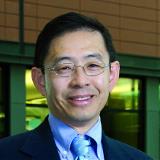
Dr. Zhiqiang An is Professor of Molecular Medicine, the Robert A. Welch Distinguished University Chair in Chemistry, Director of the Texas Therapeutics Institute, and Vice President of Drug Discovery at the University of Texas Health Science Center at Houston. His laboratory focuses on antibody drug resistance mechanisms, biomarkers for therapeutic antibodies, and antibody drug discovery targeting human diseases. During the last five years, more than 12 novel antibody drug leads discovered in his laboratory were licensed to eight biotechnology companies, and six (6) have advanced to clinical trials for diseases ranging from acute myeloid leukemia (IO-202), breast cancer bone metastasis (ALMB-0168), solid tumor (IO-108), spinal cord injury (ALMB-0166), COVID-19 (IGM6268), and solid tumor (PRTH-101). Previously, he served as Chief Scientific Officer at Epitomics, Inc. and was Director of Biologics Research at Merck Research Laboratories. He has authored over 200 journal articles including more than 30 papers in Nature, Science, and Cell journal series; and two books including the award-winning “Therapeutic Monoclonal Antibodies: from Bench to Clinic.” He is an elected fellow of Society for Industrial Microbiology and Biotechnology (SIMB), the American Academy of Microbiology (ASM), American Association for the Advancement of Science (AAAS), and the National Academy of Inventors (NAI). Dr. An received his PhD from the University of Kentucky and his postdoctoral training at the University of Wisconsin-Madison.
Julian Andreev, PhD, Research Fellow, Oncology & Angiogenesis, Regeneron Pharmaceuticals, Inc.

Julian Andreev is a PhD scientist with >15 years of experience in the Biopharmaceutical Industry. Right after his dissertation research in Dr. Joseph Schlessinger’s lab, he joined newly formed Molecular Oncology group at EMD Serono Research Institute as Principal Investigator. At Serono, Julian played a major role into expansion of research activities into oncology drug discovery. Following his tenure at Sanofi Cambridge Research Center, Julian joined New York-based Regeneron Pharmaceuticals, where he established a research group studying mechanisms of intracellular trafficking of therapeutic antibodies and their targets. Julian Andreev received his B.Sc. in Biology and M.Sc. in Biotechnology from Hebrew University, Jerusalem. After training at Max-Planck Institute for Infection Biology in Tuebingen, Germany, he received his PhD in Pharmacology from New York University, NY in 2000.
David O. Apiyo, PhD, Manager, Application Development, BioAnalytics, Sartorius

David is currently the Manager of BioAnalytics Applications Development at Sartorius and has more than 15 years of experience in label free biomolecular-interactions analysis. Before joining Sartorius, he was a Senior Scientist at Beckman Coulter. He obtained his PhD in Chemistry at Tulane University and has held multiple Postdoctoral research positions.
Tony R. Arulanandam, DVM, PhD, Senior Vice President and Head R&D, Cytovia Therapeutics

Tony Arulanandam, DVM, PhD, Senior Vice President and Head of Preclinical Research and Development at Cytovia Therapeutics focused in developing NK Cell engager bispecific antibody and iPSC derived CAR-NK therapies for cancer. He is also the Co-Founder of NextPoint therapeutics, an MPM capital-funded IO checkpoint immunotherapy company. He is an immunologist with 20+ years of research and development experience developing multiple immunotherapies for autoimmune/inflammatory diseases and cancer (5 BLAs and multiple INDs). He is also currently a mentor for postdocs at the Dana-Farber Cancer Institute through the post-graduate association.
Dennis Asberg, PhD, Senior Project Manager, Global Research Technologies, Novo Nordisk A/S

Dennis works as a project manager and scientist in early drug discovery where he manages the molecular discovery, engineering, and production in projects up to Phase I within obesity and diabetes. His main research interests are protein design, biophysics and characterization, antibody discovery, and protein production. He holds a PhD from Karlstad University, Sweden, within pharmaceutical analysis of small molecules and which was a collaboration with AstraZeneca R&D, Gothenburg.
Paul-Joseph P. Aspuria, PhD, Director, Cell Therapy, Cell Therapy, Synthekine, Inc.

Paul-Joseph (PJ) Aspuria obtained his PhD from the University of California, Los Angeles, and completed his post-doctoral fellowship at the Women's Cancer Institute at Cedars-Sinai Medical Center in Los Angeles. Over the last several years, he has focused on developing CAR T cell therapies within the pre-clinical departments at Kite Pharma, Atara Biotherapeutics, and Synthekine. PJ currently leads the Department of Cell Therapy at Synthekine.
Husain Attarwala, PhD, Vice President, Bioanalytics, DMPK, Clinical Pharmacology and CMC, Aera Therapeutics

Husain Attarwala is a clinical pharmacologist, pharmacometrician, and researcher in drug development. Currently, he is serving as Vice President of Bioanalytics, DMPK, Clinical Pharmacology and CMC at Aera Therapeutics. Prior to this, he was Head of Clinical Pharmacology and Pharmacometrics at Moderna. His research focuses on developing predictive models to guide clinical dose decisions for mRNA vaccines and therapeutics. Prior to joining Moderna, Husain was a Principal Scientist at Alnylam Pharmaceuticals, where his research helped guide dose selection for various novel siRNA therapeutics, 5 of which have received global regulatory approvals. He has obtained PhD and MS degrees in Pharmaceutical Sciences and Drug Delivery Systems from Northeastern University, and a Bachelor in Pharmacy from Al-Ameen College of Pharmacy.
Mickey Atwal, PhD, VP Molecular Profiling & Data Science, Regeneron Pharmaceuticals Inc.

Trained in medicine and theoretical physics at University of Cambridge, Cornell University, and Princeton University. Past research member of the Institute for Advanced Study. Associate Professor at Cold Spring Harbor Laboratory.
Jared Auclair, PhD, Director, Bioinnovation; Associate Teaching Professor, Chemistry & Chemical Biology, Northeastern University

Jared R. Auclair, Ph.D. is currently the interim Dean College of Professional Studies, Vice Provost Research Economic Development, and Director of Bioinnovation in the Office of the Provost at Northeastern University. As Vice Provost Research Economic Development, Dr. Auclair works to strengthen the bonds between our education and research missions by strengthening the integration of work-integrated credentialed learning and use-inspired research, co-creating with communities and partners while expanding our global mindset. As Director of Bioinnovation, Dr. Auclair works to leverage important University activities around biotechnology, bringing together experts from a wide range of disciplines and backgrounds to advance the expansion of Northeastern life sciences programs. In addition to these roles, Dr. Auclair holds a faculty appointment in the Department of Chemistry and Chemical Biology where he collaborates with academic researchers, industry and government in the area of biopharmaceutical development and analysis.
Laurent Audoly, PhD, Co-Founder & CEO, PriveBio Inc.; Executive Partner, Apollo Health Ventures; Senior Advisor & Professor of the Practice, AI Drug Discovery & Development, Northeastern University

Laurent is co-founder & CEO of PriveBio Inc., a biotech focused on addressing unmet medical need in fibro-inflammatory disorders. He’s also an Executive Partner with the Biotech VC fund, Apollo Health Ventures. He has contributed to the identification and development of seven novel medicines addressing unmet medical need across multiple disease areas administered to >300,000 patients and generating >$3B in annual sales. Laurent has also led business and R&D functions in both pharma and biotech (US and EU), including founding CEO of Kymera Therapeutics, founder and CEO of Parthenon Therapeutics, Head of R&D with Pierre Fabre Pharmaceuticals, and positions of increasing leadership responsibilities on the business and science & clinical fronts at Pfizer, Merck, and Pieris, contributing to the advancement of 21 drug candidates into clinical development across multiple disease areas and modalities. He has also completed partnering transactions worth over $3B in deal size and raised >$300M. He studied chemistry (B.S. Honors) and pharmacology (PhD) at Vanderbilt University and completed postdoctoral training at UNC/Chapel Hill and Duke University where he was the recipient of a prestigious American Heart Association Fellowship. He is Professor of the Practice at Northeastern University Center for Artificial Intelligence in Drug Discovery and Development (EAI) and on Vanderbilt University Medical Center Board of Visitors Executive Committee. He has co-authored over 80 papers and patents. Laurent also serves on Ventus’ Scientific Advisory Board and as an independent director on the boards of Ermium, Ixaka, and Ilya.
Ben Ayers, DPhil, Vice President, Antibody Drug Conjugates, Hummingbird Bioscience Pte. Ltd.

Ben is the Vice President of Antibody-Drug Conjugates at Hummingbird Bioscience. With more than 16 years’ experience in the biopharma sector, he leads the strategy and development of the Antibody-Drug Conjugates platform and programs at Hummingbird Bioscience.
Marc Bailly, PhD, Principal Scientist, Protein Sciences Analytical Characterization, Merck

Marc Bailly obtained his PhD in Biochemistry from University Louis Pasteur in Strasbourg, France in Pr. Daniel Kern’s team. After two postdocs in bioinformatics and human T cell development, Marc joined MSD in 2015 where he focused on high-throughput analytical characterization technologies enabling lead candidate selection for biologics programs. Marc also worked at MacroGenics focusing on the DART bispecific platforms. Currently Marc is co-leading the analytical characterization group at MSD South San Francisco site. He is focusing on analytical characterization and high-throughput data management using bioassays to facilitate the development of machine learning algorithms aiming at predicting developability profiles of antibodies and other biologics modalities.
Kanika Bajaj Pahuja, PhD, Senior Scientific Manager, Protein Sciences, Genentech Inc.

My career path at Genentech started with PhD in Biophysics at Indian Institute of Science and post-doctoral studies in Molecular and Cell Biology Department under the mentorship of Randy Schekman at UC Berkeley. I started my career in Genentech in 2013 as a Cancer Biologist and gained extensive research and project lead experience in handling small molecule drug discovery project working along with cross-functional teams. Currently, I am leading a team in Protein Sciences Department as a Scientific manager and helping the group to grow in new directions by introducing and streamlining new high-throughput automated workflows to support protein expression and production.
Stuart D. Barnscher, BSc, Director, Preclinical Programs, ADC Therapeutic Development, Zymeworks, Inc.

Stuart Barnscher is the Director of Preclinical Programs in the Antibody Drug Conjugate (ADC) Therapeutic Development department at Zymeworks. He is responsible for the discovery and development of novel ADC technologies and drug candidates with a focus on antibody discovery and engineering, in vitro biology, and in vivo biology and pharmacokinetics. Since joining Zymeworks in 2016, Stuart has led multiple research programs and made significant contributions to the design, development, and IND-submission of ZW49. Prior to Zymeworks, Stuart was a Scientist and founding member at Kairos Therapeutics where he was instrumental in the development of two ADC drug-linker technologies now known as ZymeLink™ Hemiasterlin and ZymeLink™ Auristatin. Prior to this role, he worked at Agensys Inc. in the Protein Technologies department where he designed and developed a novel auristatin drug-linker technology used in the anti-FLT3 ADC, AGS62P1. He obtained his undergraduate degree in biochemistry from the University of British Columbia.
Marilia Barros, PhD, Principal Scientist, Regeneron Pharmaceuticals
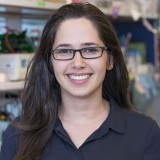
Dr. Barros is a biophysicist with expertise in biomolecular interactions working in drug product development. She received her PhD from Carnegie Melon University Physics where she studied biomolecular interactions and structure of proteins at lipid membranes. During her graduating studies she became a Guest Researcher at NIST Center for Neutron Research where she conducted neutron scattering experiments. After her PhD, she joined Dr. Yueming Li at MSK as a postdoc to lead and develop the lab biophysics research for studying the mechanisms of action of proteins that have implication in both cancer and Alzheimer disease. Currently, she works for Bristol Myers Squibb as a Research Investigator investigating the colloidal stability of biotherapeutics to support drug development and new strategies of drug product formulation.
Marie-Eve Beaulieu, PhD, Co-Founder & CSO, Drug Development, Peptomyc SL

Dr. Beaulieu is the co-founder and CSO at Peptomyc, a biotech company developing mini-protein therapeutics for cancer treatment. PhD in Pharmacology with a strong focus on structural biology of proteins, Marie-Eve has led the preclinical pharmaceutical development of OMO-103, the first direct MYC inhibitor to successfully complete a clinical trial showing safety and clinical activity in human patients. Together with the co-founder Dr. Laura Soucek, Marie-Eve designed the company strategy, built the team and fundraised public >11MEur and private ~30MEur capital. She is now in charge of the company's pipeline development and biomarker programs. Marie-Eve has co-authored 8 patent applications, 30 peer-reviewed publications, and 4 book chapters (ORCID 0000-0001-5224-8436). She was awarded several competitive fellowships (e.g., CREFSIP scholarship, MITACS, and FRSQ postdoctoral awards) and contributed to the company’s scientific and business excellence as testified by several local and international awards (e.g., BioFit, best company initiative at AJIEC, EIT Health Headstart, J&J StartUpSlam at BioEurope, and the highly competitive H2020 SME Instrument and EIC Accelerator awards).
Guillaume Bechade, Ph.D., Senior Manager, Biologics Marketing, Waters Corporation
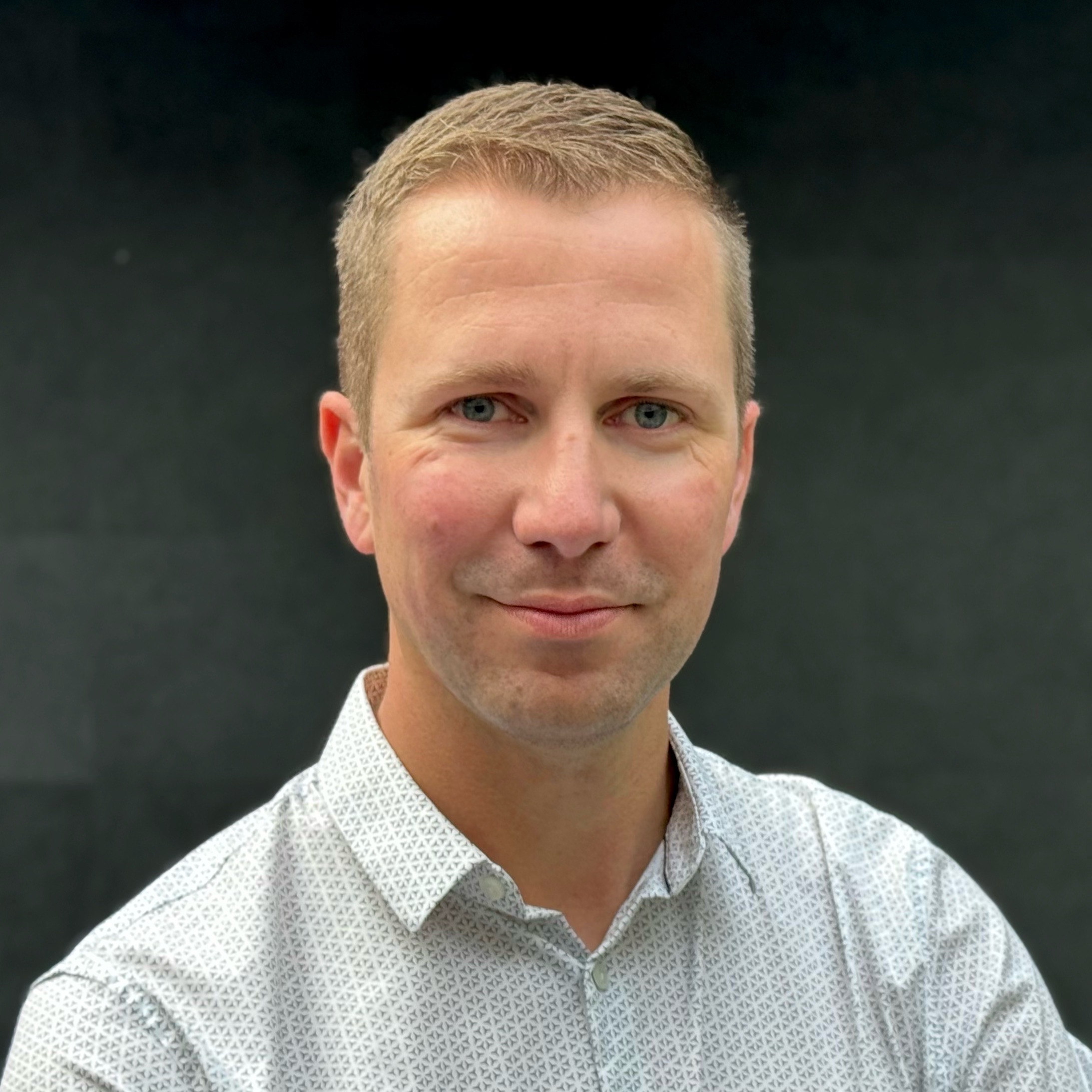
Guillaume oversees Global Biologics Marketing as a Senior Manager at Waters, leading BioProcess, Biopharma, and Cell & Gene Therapy marketing operations. With 14 years at Waters, he’s held scientific and business development roles in the field of biopharmaceuticals. Guillaume has a PhD in proteomics from the University of Strasbourg (France) and Masters in Chemistry and Engineering Chemistry. He’s based in France.
Alain Beck, PhD, Senior Director, Biologics CMC and Developability, Pierre Fabre, France

Alain Beck is Senior Director, Biologics CMC and Developability, Pierre Fabre. He is co-inventor on 16 patents, author/co-author of 240 publications and reports (h-index: 54; +11600 citations) and is co-founder and Associate Editor of mAbs (2009). He has contributed to more than 260 scientific meetings as chairman, invited speaker, panelist, moderator, advisor, and/or organizer (mAbs, ADCs, Immunocytokines, Biobetters, Biosimilars, pAbs, BsAbs, Fc-fusions, Protein Scaffolds, Mass Spec, Med Chem, PK/PD, separation sciences). He was ranked 6 out of 50 global antibody industry influencers (2013, www.antibodysociety.org) and is the 6th World ADC Awards winner for long standing contribution to the field (2019). He is also regularly involved in boards of biomedical & biotechnological experts or workshops, for the EMA (Biosimilars), WHO (Vaccines & Biologics), the European Commission (7thFP), the European Pharmacopoeia (EDQM), the USP, WHO (Vaccines & Biologics), and the pharma industry (MabDesign SAB chairman, LEEM Biotech, Immunotherapies, Biovision).
Zakia Belaid-Sandal, PhD, CEO & CSO & Co-Founder, THERANOVIR

Dr. Zakia BELAID-SANDAL is a former academic researcher at the origin of new complex leptin-dependent NRP-1/OBR discovery. This platform of signaling pathway is implicated in three related diseases, cancer, obesity, and infectious diseases. It represents a potential therapeutic target for drug resistance and relapse in the field of oncology. She is also implicated in the discovery of PD-1 partnering with NRP-1 in CD8+ T lymphocytes exhaustion as a complex of proteins; Neuropilin-1 cooperates with PD-1 in CD8+ T cells predicting outcomes in melanoma patients treated with anti-PD1. She is a co-inventor of a set of patents (Published under the name of Zakia BELAID-CHOUCAIR). Dr. ZAKIA BELAID-SANDAL is leading now as a cofounder, CEO, and CSO, THERANOVIR Biotech since 2018, a company of research and development of breakthrough immunotherapeutics.
Frank Bernhard, PhD, Lab Leader, Institute of Biophysical Chemistry, Goethe University

Frank Bernhard studied Biology at the University of Heidelberg and made his PhD at the Max Planck Institute for Medical Research. After research stays in Berlin and Columbus/Ohio, he joined the Institute of Biophysical Chemistry at the Goethe University Frankfurt (GUF) and became leader of the cell-free expression unit at the Centre for Biomolecular Magnetic Resonance. He is member of the pan-European networks Instruct and P4EU, linking centres of infrastructure and research for protein production and characterization. The portfolio of the GUF cell-free expression centre includes the development of cell-free lysates and nanoparticle technologies, the tailored design of synthetic translation environments and the quality optimization of cell-free synthesized membrane proteins. Within the combined collaborative research clusters GLUE (GPCR ligands for underexplored epitopes) and TRABITA (Transient binding pockets for research and development), a current research focus is the evaluation of cell-free generated GPCRs for pharmaceutical applications.
Emily Beura, PhD, Director, Research, Kelonia Therapeutics

Dr. Emily Beura is the Director of Cell Biology at kelonia Therapeutics where she is the research lead for their in vivo CAR T Multiple Myeloma program. Emily is an Immunologist and underwent her training at the University of MN-Twin Cities where her focus was self-specific T cells. She’s been in the immunotherapy field for several years, starting at bluebird bio advancing their DLBCL CAR T program from research to development stages.
Michael E. Birnbaum, PhD, Assistant Professor, Biological Engineering, Massachusetts Institute of Technology

Michael is an assistant professor in the Dept. of Biological Engineering at MIT and in the Koch Institute for Integrative Cancer Research. His lab develops new tools to better understand and manipulate T cell responses to infectious disease, cancer, and autoimmunity. They hope these tools and insights will lead to the next generation of immunotherapies.
Surge Biswas, PhD, Founder & CEO, Nabla Bio, Inc.

Surge is a co-founder and the CEO at Nabla Bio, an antibody design company. Surge received his PhD from George Church’s lab. There, he and his colleagues pioneered the development of protein language modeling, a technology that has been central to state-of-the-art protein structure prediction and machine learning-guided protein design. Outside of Nabla, Surge enjoys hanging out with his wife and Nabla co-founder, Frances, and their two dogs, Archie and Riley.
Jacquelyn Blake-Hedges, PhD, Scientist, Protein Biochemistry, Sutro Biopharma

I obtained my bachelor’s degree in chemistry from The College of William and Mary where I studied plasmon-enhanced fluorescence of dyes coated on silica-coated silver nanoparticles with the aim of improving electron transfer in dye-sensitized solar cells. I then moved to California where I pursued my PhD in Chemistry at the University of California, Berkeley, under the guidance of Professor Jay Keasling, where I characterized and engineered polyketide synthases and related enzymes. Immediately after obtaining my PhD, I moved to Sutro Biopharma in early 2020 where I currently work on the strain engineering team within the Protein Biochemistry group.
Kent Bondensgaard, PhD, Senior Vice President, Head, Antibody Discovery Services, Alloy Therapeutics
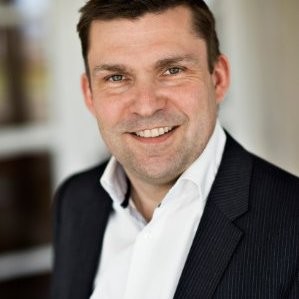
Kent is a skilled scientific leader with over 20 years of biologics discovery experience inside pharma and biotech, leading high-performing teams of scientists in developing therapeutic antibodies against 30+ targets, several of which are now in the clinic. Kent brings technical expertise in antibody discovery, screening, optimizing, and characterization including novel modalities and formats, as well as insights on impact on discovery and optimization of CMC and commercial strategy.
George Bou-Assaf, PhD, Associate Director, Analytical Development, Biogen

George has a BS in chemistry and a PhD in Biochemistry. His graduate studies under Professor Alan Marshall at Florida State University focused on development and optimization of hydrogen/deuterium exchange mass spectrometry to study protein-protein interactions. Shortly after he graduated, he joined the technical development group at Biogen in 2011, where his job responsibilities focus on the biophysical characterization of proteins and gene therapy products. More recently, he manages a group of scientists focused on developing methods for the characterization of oligonucleotide products.
Jerome D. Boyd-Kirkup, PhD, Co-Founder & CSO, Hummingbird Bioscience Pte. Ltd.

Jerome Boyd-Kirkup is CSO and co-founder of Hummingbird Bioscience, a data-driven precision biotherapeutics company discovering and developing transformative biologic medicines for hard-to-treat diseases. With a passion for integrating scientific disciplines, Jerome co-founded Hummingbird Bioscience to translate systems biology into transformative solutions in precision medicine. Jerome is responsible for overseeing the development of new technologies and intellectual property, designing experimental strategies for drug discovery, leading the development and testing of novel therapeutics, and overseeing the drug pipeline. Jerome is a molecular systems biologist by background with extensive experience at the interface of computational and wet lab biology, and a career research focus of applying systems biology approaches to tackle human disease. He holds Bachelor's and Master's degrees in Biochemistry from Imperial College London and a PhD in Molecular Biology from Cambridge University.
Nicholas A. Boyle, PhD, CEO, Abintus Bio

Nicholas serves as President and CEO of Abintus Bio, Inc., ("Abintus"), where is also a co-founder and a member of the board of directors. Abintus is a preclinical-stage company pursuing first- and best-in-class genetics medicines that leverage a clinically proven platform technology and commercial-ready manufacturing. Nicholas has over 15 years of operational experience building value at cell/gene therapy and oncology companies from start-up to commercial and has completed over $1B of transactions covering licensing, M&A, and private/public financings. Prior to founding Abintus, Dr. Boyle was vice president, strategy and business development at Tocagen, Inc., where he was a member of the pioneering team that advanced the field of in vivo genetic medicines using retroviral vectors administered intravenously across multiple clinical trials. Before joining Tocagen he was director, corporate development at Spectrum Pharmaceuticals (NASDAQ: SPPI) where he closed 4 licensing transactions that catalyzed an increase in market cap from <$50M to >$500M. Previously, Dr. Boyle was team leader for antiviral and oncology drug discovery at Biota (now Vaxart) and a medicinal chemist at SmithKline Beecham (now GSK). Dr. Boyle holds a PhD in organic chemistry from Sheffield University, completed his post-doctorate research at The Scripps Research Institute, was a visiting scholar at The University of North Texas, and received a Monbusho (AIST) fellowship to conduct gene editing and synthetic biology research in Tsukuba, Japan.
Andrew R.M. Bradbury, PhD, CSO, Specifica, Inc.
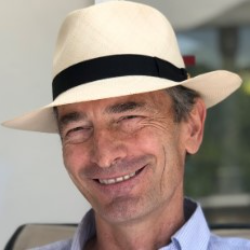
Andrew Bradbury is Chief Scientific Officer of Specifica. He trained in medicine at the universities of Oxford and London and received his PhD from the university of Cambridge at the MRC Laboratory of Molecular Biology under the guidance of Nobel Laureate, Cesar Milstein. He has worked in the fields of phage and yeast display, library generation, antibody engineering and Next Generation Sequencing for over thirty years. He was a Group Leader at Los Alamos National Laboratory before founding Specifica. Specifica's mission is to enable companies developing therapeutic antibodies with the world’s best antibody discovery platform.
David Bramhill, PhD, Founder, Bramhill Biological Consulting LLC

Dr. Bramhill has over 20 years’ experience in biologics, both in large biopharma and startup biotech companies. He has expertise in isolating and improving antibodies using phage display and other display systems and is an inventor on library design for small scaffolds and bi-specific formats. He also has experience in diverse expression systems for producing antibodies, antibody fragments and scaffolds. Additionally, Dr. Bramhill has extensive experience in ADC development including diverse chemical and biochemical conjugation methods. He has taught numerous technical courses for over 15 years at international conferences and served as a Key Opinion Leader for major BioPharma companies.
Philip E. Brandish, PhD, Senior Vice President, Immuno-Oncology, Bicycle Therapeutics

Biotech research leader focused on bringing innovative new medicines to cancer patients. Immunology, oncology, and drug discovery subject-matter expert with >20 years' experience across a range of drug modalities and from target ID through clinical POC. Extensive successful track record of building great teams, promoting rigorous science, and delivering on the pipeline. Currently Senior Vice President of immuno-oncology at Bicycle Therapeutics, a platform company focused on constrained peptides. Formerly a Director of Oncology Discovery research at Merck & Co.
Chris-Carol Bremer, Chief Development Officer, Navigo Proteins GmbH

Chris-Carol Bremer was trained as an MD with a PhD in Exercise Physiology. After completing his MBA (INSEAD) he started a career in the Pharmaceutical Industry covering roles in Commercial, R&D as well as Strategic domains across multiple continents, including North America and Europe. In his current role as Chief Development Officer and Managing Director he is overseeing the Precision Medicine Business at Navigo Proteins.
Bryan Briney, PhD, Assistant Professor, Immunology & Microbial Science, Scripps Research Institute

Dr. Briney is an Assistant Professor in the department of Immunology and Microbiology at Scripps Research. He received his PhD from Vanderbilt University under the mentorship of James Crowe and trained as a postdoctoral fellow in Dennis Burton’s laboratory at Scripps. The Briney Lab is focused on large-scale study of the humoral immune response to infection and immunization and maintains active research programs in HIV vaccinology, systems immunology of hemorrhagic fever viruses, and early B cell development.
Mary Ann Brown, Executive Director, Conferences, Cambridge Healthtech Institute

Mary Ann Brown joined Cambridge Healthtech Institute (CHI) in 1992 as a Data Entry Associate. At that time CHI was a start-up company with many roles to fill and explore. She quickly realized that conference production which combined creativity and love of learning was the path for her. Mary Ann’s conference portfolio is varied from biologics to batteries where she is organizes over 15 scientific meetings a year along with being a Team Lead for several Key Events. Mary Ann graduated from Doane College in 1978 with degrees in Biology, Environmental Studies, and Geology.
- Advancing Bispecific Antibodies and Combination Therapy to the Clinic
- Cell-Based Immunotherapy
- Maximizing Protein Production Workflows
- Optimizing Protein Expression
- Emerging Targets for Oncology and Beyond
- mRNA Therapeutics
- Biophysical Methods
- Engineering Antibodies
- Immunogenicity Assessment and Management
Tom Browne, Director of Diversity, Equity, & Inclusion, MassBio

Tom is MassBio’s lead for DEI consultancy, focused on corporate operations and culture. He specializes in employee well-being and retention, supplier diversity, and DEI program marketing. Tom is responsible for assisting MassBio’s member companies to launch, grow, and strengthen their DEI initiatives through action-based strategies and tactics. This critical work is part of MassBio’s commitment to improve DEI across the life sciences, develop a more diverse talent pipeline, and make their members more successful and better aligned with patient populations. Prior to joining MassBio, Tom led the Greater Boston Chamber of Commerce’s Economic Inclusion team and moved to Boston from the UK where he managed local corporate philanthropy broker Businesses for Islington Giving”
Ivan Budyak, PhD, Director, Analytical Development, Biophysical Characterization, Eli Lilly and Co.

Ivan Budyak received a PhD in Biophysics from Moscow Institute of Physics and Technology in 2006 and is currently a Director at Eli Lilly and Company leading the Analytical Development Biophysical team. Ivan has almost two decades of experience in structural biology and biophysics including 10 years in pharmaceutical industry. He has supported development of both protein-based therapeutics and the gene therapy portfolio at Lilly. Ivan has authored over 15 peer-reviewed articles, actively served on multiple NSF IUCRC industry advisory boards as well as the USP AAV Gene Therapy Product Expert Panel.
Patrick Bulau, Control Strategy Scientist, Pharma Analytical Science and Global Quality Control, Roche Diagnostics GmbH

Patrick Bulau is working as Control Strategy Scientist at Roche Diagnostics GmbH in Penzberg, Germany. In addition to his responsibility for the analysis and control system activities of marketed biologics, Patrick’s research areas include electrospray and laser-assisted mass spectrometry, multi-attribute testing of chemical and post-translational amino acid modifications, and structure-function relationships.
John Burg, PhD, Director Protein Sciences, Protein Sciences, Pheast Therapeutics

John has more than a decade of experience in protein biochemistry, structural biology and antibody discovery. At Pheast, John oversees research, data analysis, and project direction for the Protein Sciences team. Prior to joining Pheast, John led a team at Ligand Pharmaceuticals supporting antibody discovery, with a focus on antigen production and validation. Prior to Ligand, he served as Director of Biochemistry at Ab Initio Biotherapeutics, where he led protein biochemistry and molecular pharmacology efforts. John received his postdoctoral training at the Stanford University School of Medicine and his Ph.D. from the Johns Hopkins University School of Medicine.
Iain D.G. Campuzano, PhD FRSC, Scientific Director, Molecular Analytics, Amgen, Inc.

Iain Campuzano works in and manages a core analytical research group within Amgen Research. He has invented/co-invented six mass spectrometry related patents and published over 70 peer reviewed articles and book chapters. He has also presented and organised/chaired sessions at multiple international conferences such as ASMS, ASMS Sanibel, PEGS, Discovery on Target and PITTCON.
Paul J. Carter, PhD, Genentech Fellow, Antibody Engineering, Genentech

Dr. Carter received a B.A. in Natural Sciences from Cambridge University and his Ph.D. in Molecular Biology under Sir Greg Winter at the MRC Laboratory of Molecular Biology in Cambridge. He then completed a postdoctoral fellowship with Dr. Jim Wells at Genentech, now a member of the Roche Group. Dr. Carter has over thirty years of experience in biotechnology, focusing on the discovery of antibody therapeutics. He played a key role in the creation of antibody humanization methods at Genentech utilized over many years for nine approved antibody products used to treat millions of patients worldwide. Dr. Carter and collaborators invented ‘knobs-into-holes’ technology widely used in generating bispecific antibodies. He is currently a Genentech Fellow in the Department of Antibody Engineering.
Natalie Castellana, PhD, CEO, Abterra Biosciences
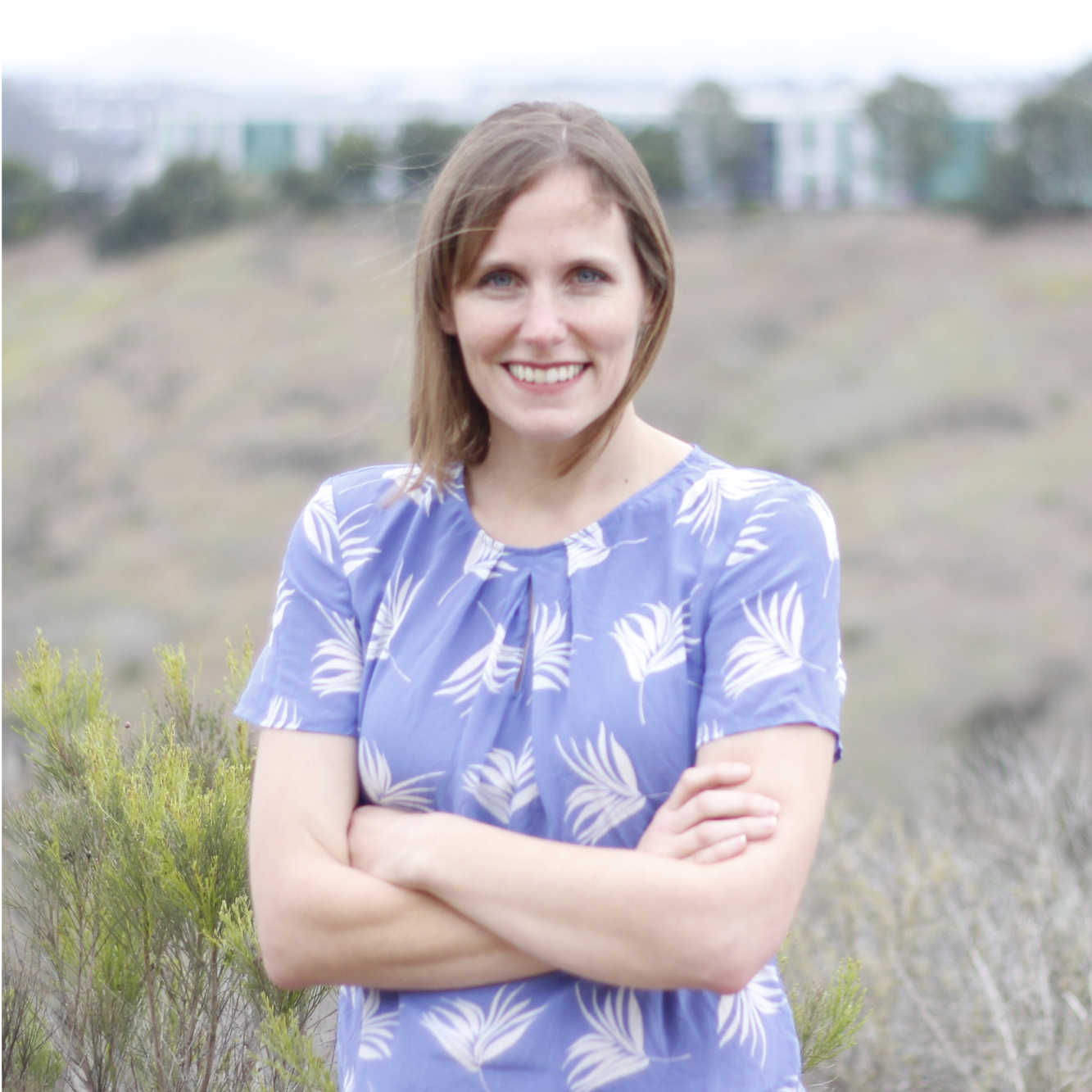
Dr. Natalie Castellana is CEO of Abterra Bio. She is passionate about mapping the natural immune response to challenge and the relationship between the B-cell receptor repertoire and secreted antibodies in serum. Abterra Bio specializes in next generation antibody discovery and sequencing, leveraging machine learning to mine the immune repertoire of llamas, alpacas, rabbits, and humans. She earned a PhD in Computer Science from UCSD, and BS from Carnegie Mellon University.
Ross Chambers, PhD, Vice President, Antibody Discovery, Integral Molecular, Inc.

Ross Chambers is the Vice President of Antibody Discovery at Integral Molecular. He pioneered the use of DNA immunization for antibody production and developed Integral Molecular’s MPS system for isolating antibodies. Dr. Chambers earned his PhD from the University of Otago, New Zealand, and did post-doctoral studies at UC Davis and Berkeley. Before joining Integral Molecular, he was the Director of R&D at SDIX and directed the discovery of thousands of commercial antibodies.
Venkatesh Chari, PhD, Scientific Market Development Manager, Eurofins DiscoverX
Venkatesh Chari received his Ph.D. in Biochemistry & Cancer Biology from the University of Toledo - Medical College of Ohio, and he was a part of the R&D team for over 7 years at Eurofins DiscoverX (EDRX). In his current role at EDRX, he is a part of the market development team and involved in supporting method transfers to CRO and CDMO sites for lot-release programs for biologics and biosimilars.
Abhishek Chatterjee, PhD, Professor, Chemistry, Boston College

Abhishek received his Ph.D. in Chemical Biology from Cornell University in 2009 working on elucidating the elusive molecular mechanism of vitamin B1 biosynthesis in eukaryotes. Then, as a postdoctoral fellow at The Scripps Research Institute, he worked on expanding the scope of the unnatural amino acid mutagenesis technology. Abhishek joined the Department of Chemistry at Boston College in the 2013, where he is currently a Professor. The Chatterjee group is broadly interested in engineering biology through an interdisciplinary approach to develop enabling new technologies for probing complex biological questions, and to create opportunities for developing next-generation biotherapeutics. The research from the Chatterjee group has been recognized by several awards, including Camille Dreyfus Teacher-Scholar Award, and Allen Distinguished Investigator Award.
Daniel Chen, MD, PhD, Founder & CEO, Synthetic Design Lab

Daniel S. Chen, MD, PhD, is the founder of Engenuity Life Sciences and founder and CEO of Synthetic Design Lab, former Vice President, Global Head of Cancer Immunotherapy Development at Genentech/Roche and former Chief Medical Officer for IGM Biosciences. He received a BS degree in Biology from the Massachusetts Institute of Technology (1990), a PhD in Microbiology & Immunology (1996) and MD (1998) from the University of Southern California. His PhD work and publications focused on “Early Events in Coronavirus Infection.” Daniel completed an Internal Medicine Residency and Medical Oncology Fellowship at Stanford University (2003). He went on to complete a Post-doctoral fellowship with Mark Davis in Immunology, where he was a Howard Hughes Medical Institute Associate. He also ran the metastatic melanoma clinic at the Stanford Cancer Center from 2003-2006. In that time, he studied human anti-cancer immune responses pre- and post- cancer vaccination and cytokine administration to determine why anti-tumor immune responses were not more clinically effective. He received a U19 grant to develop better immunologic tools to interrogate human immune responses and ultimately patented the MHC cellular microarray to detect and functionally characterize antigen-specific T cell states. He continued as Adjunct Clinical Faculty at Stanford from 2006-2016, where he cared for melanoma patients. At Genentech from 2006-2018, Daniel focused on the clinical development of anti-angiogenic, antibody drug conjugates and immune modulatory targeted therapies in both early and late Development, as well as the diagnostic tools to aid their development. This included leading the clinical development for atezolizumab, a PD-L1 inhibitor, from the time the program was in research through IND, Phase I, Phase II, Phase III, to filing and approvals in multiple indications worldwide. At IGM Biosciences, Daniel focused on the development of novel engineered multivalent therapeutics and helped lead this from pre-clinical to having multiple therapeutics in the clinic in Phase I/II. He is a reviewer for Nature, Immunity, Journal for Immunotherapy of Cancer and Clinical Cancer Research, served on the Board of Directors for SITC, has been a recurring session organizer and session chair for PEGS Europe on engineered therapeutics since 2019, gave the keynote presentation at the AACR NCI EORTC Annual Meeting 2014 and presented at the US Congressional Briefing on Immuno Oncology in 2017. He has continued to publish with academic and industry collaborators in the field of cancer immunotherapy, including the often-referenced Chen and Mellman manuscripts, “Oncology meets Immunology: the Cancer-Immunity Cycle,” “Elements of cancer immunity and the cancer-immune set point” and the Hegde and Chen manuscript “Top 10 Challenges in Cancer Immunotherapy.”
Yuefeng Chen, Research Scientist, Eli Lilly & Co.

Yuefeng Chen serves as a Senior Advisor within the Bioproduct Research and Development division at Eli Lilly and Company, where he has over a decade of expertise in developing bioassays reflecting the mechanisms of action of biologics. Yuefeng has supported the development of a diverse range of therapeutic agents, encompassing monoclonal antibodies, bispecific antibodies, antibody-drug conjugates (ADCs), peptides, and gene therapy products. During his tenure in Eli Lilly's oncology research department, Yuefeng played a pivotal role in advancing novel target identification efforts through the implementation of high-content imaging (HCI)-based phenotypic drug screening. Before joining Eli Lilly, he earned his Master of Science degree in Cell Biology from the University of Virginia. Following this, his focus was on uncovering novel genes implicated in the replication of DNA within cancer cells, a pursuit which involved the utilization of siRNA screens.
Mu Chen, PhD, Principal Scientist, Bioanalytical Strategy Group, Regeneron Pharmaceuticals

Mu Chen earned his PhD in 2014 from Rutgers University under Professor Jeehiun K. Lee, and has since worked in the regulated bioanalysis field in the pharmaceutical industry. He is currently a Principal Scientist in the Bioanalytical Strategy Group at Regeneron, serving as bioanalytical PI for clinical development of mAbs and new modalities. His work also includes immunogenicity assessment of drug candidates in clinical trials. Before joining Regeneron, Mu worked at Celgene/Bristol Myers Squibb and Frontage Laboratories, Inc. His work has been focused on method development, validation, and application of LC-MS and ligand-binding assays for the quantitation of both small and large molecule drugs and biomarkers.
Bob Chen, PhD, Senior Director, Discovery Systems, OmniAb, Inc.
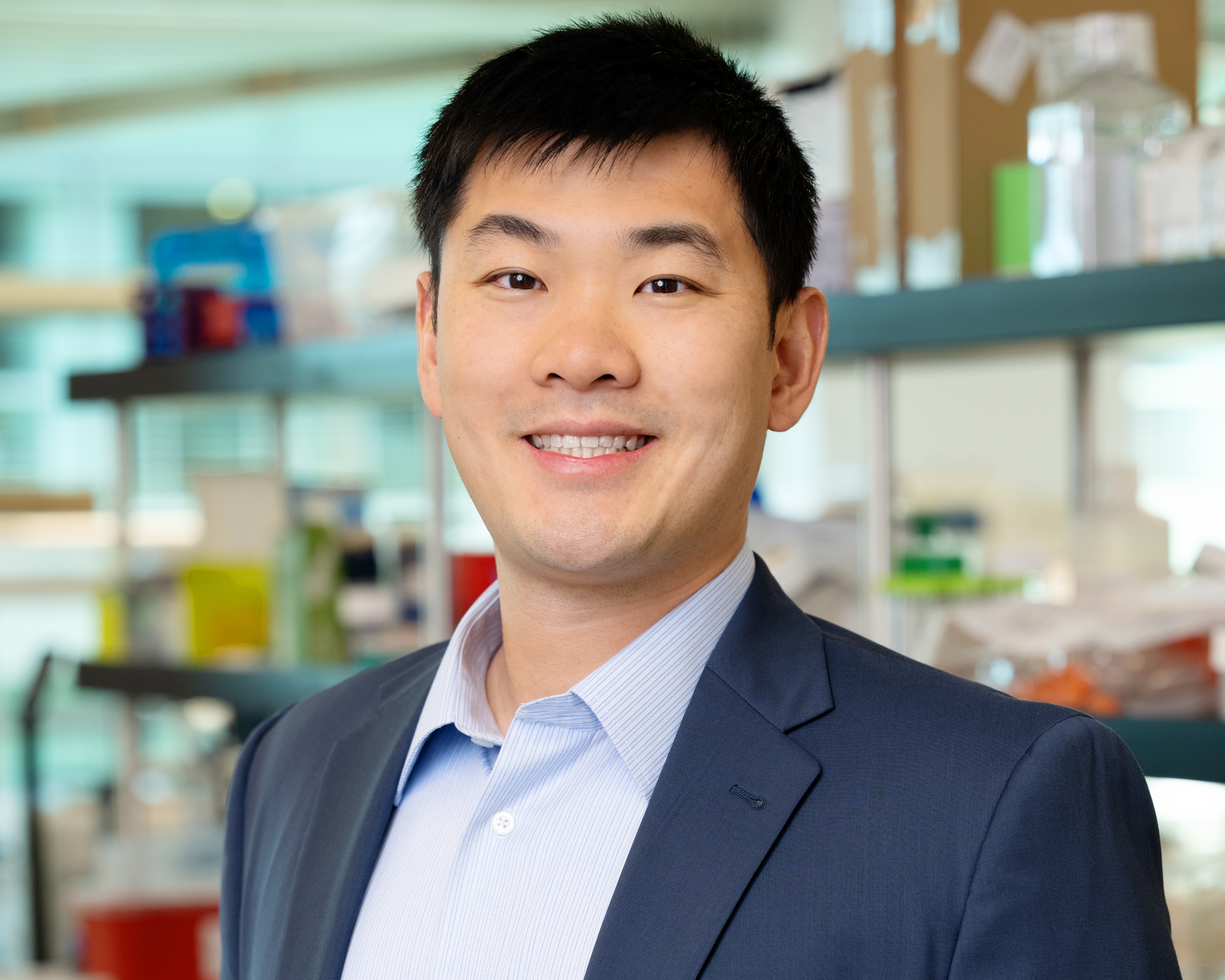
Bob Chen is Senior Director of Discovery Systems at OmniAb. Dr. Chen leads the development of our xPloration® platform. Dr. Chen previously was the Chief Technology Officer and a co-Founder of xCella Biosciences, an antibody discovery and technology company based in Menlo Park, California, that was built on scientific research from Stanford University and MIT. Dr. Chen earned a Bachelor’s degree in Chemical Engineering from MIT and a PhD in Bioengineering from Stanford University.
Michelle Chen, Ph.D., Sr Director, Research & Development, Waters|Wyatt Technology
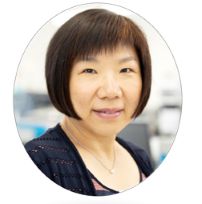
Dr. Michelle Chen is a senior director at Waters | Wyatt Technology. She has over twenty years of experience in biopolymers and nanoparticle characterization using light scattering coupled to SEC and FFF. In recent years, Michelle has led the application team at Wyatt Technology to develop novel methods to characterize and quantify emerging therapeutics and delivery vehicles including new protein conjugates, viral vectors, lipid nanoparticles, and extracellular vesicles.
Alan Cheng, PhD, Senior Director, Modeling and Informatics, Merck Research Labs

Alan Cheng earned his undergraduate degrees at UC Berkeley in Electrical Engineering & Computer Science (EECS) and Molecular & Cellular Biology (MCB), and earned his PhD at UC San Francisco. After stints at Pfizer and Amgen in Cambridge and San Francisco, in 2017 he joined a new site for Merck & Co. in San Francisco, where he is currently Senior Director leading a group working in computer-aided drug design for biologics and small molecules as well as deep learning for lead optimization. He is also the overall lead for Merck’s Discovery Chemistry AI/ML initiative.
Nai-Kong V. Cheung, MD, PhD, Enid A. Haupt Endowed Chair, Pediatric Oncology, Memorial Sloan Kettering Cancer Center
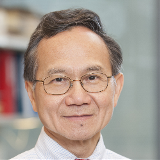
Nai-Kong V. Cheung is a pediatric oncologist and cancer researcher at Memorial Sloan Kettering Cancer Center (MSK) in New York, specializing in immunologic approaches for diagnosing and treating pediatric cancers. He received his MD from Harvard Medical School, as well as his PhD in immunology. He studied suppressor T cells and B cell tolerance under the mentorship of Dr. Baruj Benacerraf, the 1980 Nobel laureate in Medicine. Upon completing his pediatric training in Pediatrics and Pediatric Hematology/Oncology at Stanford University Medical Center, he has devoted his entire career to translational science, with a clinical focus on neuroblastoma, and a research focus on antibody-based therapies. Over three decades at MSK, he has developed from bench to the bedside several monoclonal antibodies, including 3F8 and its humanized form (hu3F8, naxitamab) specific for ganglioside GD2, and 8H9 (omburtamab) specific for B7-H3. For high-risk metastatic neuroblastoma, patient survival has steadily improved as 3F8 was successfully applied to eradicate bone marrow metastases, and 8H9 to salvage CNS relapse. Naxitamab received FDA breakthrough therapy designation (BTD) in 2017 while omburtamab received BTD in 2018. Both drugs have been licensed to Y-mAbs Therapeutics, Inc. for world-wide clinical development. He has developed immunocytology and molecular methods to measure minimal residual disease in neuroblastoma, which also serves as tools to evaluate adjuvant antibody-based strategies. In recent years, he has focused on novel antibody platforms to redirect T cells or radioisotopes, such as SADA in PRIT, as well as antibody vaccines for curative applications in the clinic. He has on file more than 40 patent families (either approved or pending approval) on biologics for a broad spectrum of pediatric and adult cancers. He has assembled a highly translational team consisting of PhD researchers, MDs, and nurses to bring antibody-based biologics to the bedside in accelerated timelines for orphan diseases.
Henry C. Chiou, PhD, Senior Director General Manager, Biosciences, Thermo Fisher Scientific

Henry Chiou is Senior Director and General Manager for the Delivery and Protein Expression business within Biosciences at Thermo Fisher Scientific. He and his teams have developed products such as the Expi family of 293, CHO and Sf9-based expression systems, Lipofectamine 3000, and other Lipofectamine-family transfection reagents, production systems for cell and gene therapy viral vectors such as AAV MAX system. Henry has authored multiple publications on mammalian transient expression and frequently teaches courses and lectures on this subject. Prior to joining Thermo Fisher, Henry worked in small to mid-sized biotech companies on non-viral gene therapy. Henry received his doctorate from Harvard University in Molecular Pharmacology, following which he completed a postdoctoral fellowship in viral expression systems at the University of Pennsylvania.
Eun Shik Choi, PhD, CTO, Centenaire Biosciences, Inc.

Eun Shik Choi, Ph.D. currently holds the position of Chief Technology Officer (CTO) at Centenaire Biosciences, Inc. (www.ctnbio.com) located in Seongnam, South Korea and co-founded the company in 2021. Previously, Dr. Choi worked as a principal scientist at Medytox, Inc. where he led protein therapeutics division since he joined the company in 2018. He received his Ph.D. from Seoul National University in 2003 and worked as a postdoctoral fellow at the Wellcome Trust Centre for Cell Biology, U.K., from 2006 to 2011.
Mark Cobbold, PhD, Vice President, Oncology Early Discovery, AstraZeneca Pharmaceuticals

Mark Cobbold, MD, PhD, is Vice President of Discovery in Oncology at AstraZeneca. Mark leads a team responsible for efforts spanning basic immunology through to early-phase drug development in immuno-oncology, immune engagers and cell therapy. He is passionate about driving innovation at AstraZeneca and building synthetic immunity using either cellular engineering or biotherapeutics. In 2019, AstraZeneca welcomed Mark from Massachusetts General Hospital, where he served as an associate professor of medicine at Harvard Medical School, with an interest in cancer immunotherapy. Prior to joining MGH in 2015 he trained as a physician scientist in clinical immunology and tumor immunology. Over the years Mark has cofounded a number of companies including SeraScience, PhosImmune, Revitope Oncology, Gritstone Oncology, GigaMune, and C-Reveal Therapeutics.
Jennifer R. Cochran, PhD, Senior Associate Vice Provost for Research, Macovski Professor of Bioengineering, Stanford University

Jennifer Cochran is the Shriram Chair of the Department of Bioengineering at Stanford University. She is a Professor of Bioengineering and, by courtesy, Chemical Engineering and a member of the Cancer Biology, Biophysics, and Immunology graduate programs. Dr. Cochran serves as the Director of the Stanford/NIH Biotechnology pre-doctoral training program, and co-Director of the Stanford NIST pre-doctoral training program. Her research group uses interdisciplinary approaches in chemistry, engineering, and biophysics to study complex biological systems and to develop new tools for basic science and biomedical applications. Dr. Cochran translational interests span protein-based drug discovery and development for applications in oncology and regenerative medicine, and development of new technologies for high-throughput protein analysis and engineering. Dr. Cochran obtained her Ph.D. in Biological Chemistry from the Massachusetts Institute of Technology, where she also completed a postdoctoral fellowship in Biological Engineering.
Matthew Coleman, PhD, Senior Scientist & Group Leader, Biosciences and Biotechnology Division, Lawrence Livermore National Laboratory
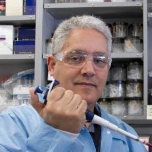
Dr. Matthew A. Coleman is a senior biomedical staff scientist and group leader at Lawrence Livermore National Laboratory as well an adjunct professor in the department of Radiation Oncology at University of California Davis School of Medicine. He received his Ph.D. in Molecular and Cellular Biochemistry from Boston University. Dr. Coleman has authored over 150 publications in peer-reviewed journals, published proceedings and book chapters covering a diverse breadth of molecular biology and biochemistry. He has over 25 years experience in developing biotechnology and characterizing genomic responses of genotoxic stressors.
Frank Comer, PhD, Director, Tumor Targeted Delivery, Early Oncology R&D, AstraZeneca
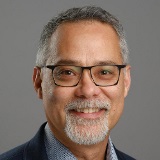
Frank is a Director in Early Oncology Discovery at AstraZeneca within the ADC Portfolio team. He received his PhD in Biochemistry from the University of Alabama, Birmingham, in 2000, where he studied under Professor Gerald Hart to elucidate the roles of intracellular O-GlcNAc glycosylation. He moved to the National Cancer Institute where he completed post-doctoral studies in Carole Parent’s laboratory, studying the role of the PI3 kinase pathway in spatial sensing and chemotaxis. Frank then joined Wellstat Therapeutics in 2007, where he led and contributed to several projects ranging from conjugate vaccines to therapeutic proteins, prior to joining AstraZeneca in 2012. Since joining AstraZeneca, he has held positions of increasing responsibility, with a research focus on antibody-drug conjugates and bispecific antibodies. He has served as a session organizer/chair in the “Advancing Bispecific Antibodies” track at PEGS since 2018.
Laetitia D. Comps-Agrar, PhD, Senior Principal Scientist, Biochemical & Cellular Pharmacology, Genentech, Inc.

Laetitia is Senior Principal Scientist in the department of Biochemical and Cellular Pharmacology at Genentech, where she leads a lab that is instrumental in advancing therapeutic antibodies from early-stage research to IND-enabling studies within different therapeutic areas including ocular, immunology, and oncology. She has been at Genentech for over 12 years and has contributed to numerous pipeline projects, three of them are currently in clinical trials: anti-IL33 MAb for Geographic Atrophy, anti-FGFR1c/KLB MAb for type 2 diabetes, and anti-TIGIT MAb for solid tumors. In addition, Laetitia leverages her expertise in studying protein-protein interactions on live cells to solve complex biology problems. Laetitia initially joined Genentech as a Postdoctoral Research Fellow in Protein Chemistry, where she designed and performed structure function studies to decipher the molecular organization of FGFR1c:ßKlotho complex and elucidated the mechanism of action of several therapeutic candidates. Laetitia obtained a PhD in Molecular Pharmacology at the University of Montpellier, France, where she studied the pharmacology of G-protein coupled receptors and delineated how their oligomerization influences their physiological function.
Christopher R. Corbeil, PhD, Research Officer, Human Health Therapeutics, National Research Council Canada

Dr. Christopher Corbeil is a research officer at the National Research Council Canada (NRC) who specializes in the development and application of computational tools for biotherapeutic design and optimization. He is also an associate member of the McGill Biochemistry Department and teaches classes in Structure-Based Drug Design at McGill University. After receiving his PhD from McGill University, he joined the NRC as a Research Associate investigating the basics of protein-binding affinity. Following his time at the NRC he joined Chemical Computing Group as a research scientist developing tools for protein design, structure prediction, and binding affinity prediction. He then decided to leave private industry and rejoin NRC with a focus on antibody engineering. Dr. Corbeil has authored over 30 scientific articles and is the main developer of multiple software programs.
Mark S. Cragg, PhD, Professor, Experimental Cancer Biology, Antibody and Vaccine Group, School of Cancer Sciences, University of Southampton

Mark Cragg is Professor of Experimental Cancer Biology in the School of Cancer Sciences at the University of Southampton Faculty of Medicine. He obtained his PhD in 1998, and did his postdoctoral studies at the University of Southampton with Martin Glennie and in Melbourne, Australia, with Andreas Strasser before starting his own group in 2007. His research concerns how therapeutics result in tumour regression with a focus on antibodies and small molecules, with a particular interest in Fc receptors and TNFRs. The aim is to understand how these therapeutics delete tumour cells, how resistance occurs, and how it might be overcome. Over the last decade, he has investigated many different therapeutic agents such as rituximab, bexxar, imatinib, gefitinib, cetuximab, and tarceva, and has been involved in the development of next-generation antibody reagents such as ofatumumab and obinutuzumab, as well as first-in-class antibodies such as BI-1206 and BI-1607. Throughout, the strategy undertaken is highly translational with iterative cycling between in vitro experiments, appropriate in vivo model systems, and primary clinical material. He sits on advisory boards for several charities and institutes, provides advice to several Biotech/Pharma companies, and has published over 200 research papers.
Rebecca Croasdale-Wood, PhD, Director, Augmented Biologics Discovery & Design, Biologics Engineering, Oncology, AstraZeneca

Rebecca is an innovative leader responsible for the implementation of novel and disruptive in silico technologies to increase the speed of discovery and quality of biologics therapeutics. She is an experienced antibody engineer with structural biology expertise and was co-inventor of the CrossMab technology that is now leading the way in approvals for multi-specific antibody therapeutics. She has authored 30+ patents and publications in the field of antibody engineering.
Laura Crowell, PhD, Director, Research & Development, Sunflower Therapeutics PBC

Laura Crowell is the Director of Research and Development at Sunflower Therapeutics PBC, a biotech startup focused on dramatically reducing the time and cost to develop and manufacture biologics for patients around the world. In her current role, Laura oversees ongoing efforts to develop right-sized and efficient manufacturing approaches for protein-based therapeutics and vaccines using strain engineering, integrated process development, and automated multi-product facilities. Laura received her Ph.D. (2020) and M.S. (2016) in Chemical Engineering from MIT and her B.S. (2014) in Chemical and Biological Engineering from Tufts University. Her doctoral work accelerated process development for biologics on a small-scale, integrated, multi-product manufacturing platform. This involved the demonstration of an automated, small-scale biomanufacturing system for the rapid, end-to-end production of clinical quality biopharmaceuticals along with the development and optimization of processes for the integrated, straight-through purification of biologics.
John DaSilva, PhD, Associate Director, Oncology & Immune-Oncology, Regeneron Pharmaceuticals Inc.

John DaSilva, Ph.D., is Associate Director of Oncology & Immune-Oncology at Regeneron Pharmaceuticals. Experienced researcher in the fields of cancer cell signaling, biologics, biparatopic antibodies, and antibody drug conjugate (ADC) development. Demonstrated success producing preclinical data supporting INDs and guiding several development programs. Leading discovery and development team from initial ADC design and screening to delivery of clinical development candidates for the treatment of cancer.
Bazarragchaa Damdinsuren, MD, PhD, Product Quality Team Leader, OBP, U.S. Food and Drug Administration

Bazarragchaa (Bazaraa) Damdinsuren is a product quality team leader in Office of Product Quality Assessment III (former Office of Biotechnology Products) at CDER. He joined FDA as a Commissioner’s Fellow in 2010. In the current position, he supervises CMC reviews of INDs and BLAs, and conducts manufacturing facility inspections for originator and biosimilar protein therapeutics. Dr. Damdinsuren is a co-lead of the OBP’s KASA project.
Kyle Daniels, PhD, Assistant Professor, Stanford Genetics, Stanford University

Dr. Kyle Daniels is an Assistant Professor of Genetics at Stanford University. Dr. Daniels received a BS in Biochemistry from University of Maryland-College Park in 2010 and a PhD in Biochemistry from Duke University in 2015. Following postdoctoral training at UCSF, he joined the Department of Genetics at Stanford in 2023. His laboratory is interested in understanding how information is encoded in receptors, signaling adapters, and gene regulatory elements. The goals of his work are to decode natural signaling systems to understand their functions and to encode specific instructions in synthetic signaling systems to engineer therapeutic cells. His lab uses synthetic biology, high-throughput library screening, and machine learning to explore how various signaling molecules control cell function. The lab is particularly interested in understanding how modular domains can be recombined in new combinations and arrangements to give rise to diverse cellular behaviors such as survival, proliferation, differentiation, and tumor killing.
Varsha Daswani, PhD, PMP, Senior Director, Data Strategy, Lumilytics

Varsha Daswani Ph.D. PMP is the senior director of data strategy at Lumilytics. Her team works to adapt and advance generative AI, natural language processing, and machine learning tools to create fit for purpose solutions for pharmaceutical drug development. Prior to joining Lumilytics, Varsha worked at both Pfizer and Janssen. Most recently at Pfizer, she led the large molecule Analytics and Data Science group. She has her Ph.D. in Biochemistry from Temple University where she developed a novel liposome encapsulation method for small molecule chemotherapeutic agents.
Jonathan Davis, PhD, Founder and Principal Consultant, Creative Antibodies

My Strategy: Innovator of disruptive technologies and platforms in biotherapeutics. Protein engineering: innovative approaches to adding or improving functionality for therapeutic proteins, thought leader in bispecific protein technologies. Technology development: Improving technology for library design and construction, selection processes, screening, and optimizing resulting proteins. My Specialties: Novel therapeutic modality design; Protein Engineering; Synthetic Biology; Phage Display; PROfusion (mRNA display); Selection; in vitro evolution; SELEX; Protein modeling; RosettaDesign; Molecular Biology; Protein expression and purification; Library design; Antibody engineering
Brandon DeKosky, PhD, Phillip and Susan Ragon Career Development Professor of Chemical Engineering, MIT Core Member, The Ragon Institute of MGH, MIT, and Harvard University

Dr. Brandon DeKosky is an Assistant Professor in the Department of Chemical Engineering at MIT and a Core Member of the Ragon Institute of MGH, Harvard, and MIT. Research efforts at the DeKosky lab have developed a suite of high-throughput single-cell platforms for comprehensive analyses of adaptive immunity. These efforts are advancing new approaches in biologic drug discovery, and for the comprehensive analyses of genetic and functional diversity in adaptive immune cells. The group seeks to reveal the quantitative principles that govern effective adaptive immunity and provide molecular design strategies for vaccines and biologics to combat global infectious agents including HIV-1, malaria, and SARS-CoV-2. The DeKosky lab is also investigating quantitative principles of immune regulation and establishing new approaches for targeted and personalized cancer therapies. Dr. DeKosky has been awarded several honors for his research program. His PhD research was supported by a Hertz Foundation Graduate Fellowship, an NSF Graduate Fellowship, and a Donald. D. Harrington Graduate Fellowship. In 2016, DeKosky was awarded a K99 Pathway to Independence Award and an NIH Early Independence Award and began a joint faculty appointment at the University of Kansas Departments of Chemical Engineering and Pharmaceutical Chemistry. He has also received the Department of Defense Career Development Award, the Biomedical Engineering Society Rising Star Award, and the AIChE Young Faculty Futures award. In 2021, Dr. DeKosky began as an Assistant Professor in a joint appointment at MIT Chemical Engineering and The Ragon Institute.
Jason DelCarpini, Director, Bioanalytical and Molecular Assays, Moderna

Jason DelCarpini has been working the field of regulated bioanalysis for over 20 years. Over that time, he has acquired extensive experience developing and validating PK, PD, and immunogenicity assays for various modalities (bispecific/functional conjugates, cell & gene therapies, mRNA therapeutics, monoclonal antibodies, enzyme replacement therapies, Fc-fusion proteins). He has worked for several industry-leading companies such as Genzyme (Sanofi), Acceleron Pharma, bluebird bio, Pfizer, and BioAgilityx. He is currently the Director of Bioanalytical and Molecular Assays at Moderna where he leads the team for PK, PD, and Immunogenicity analysis.
Mahendra P. Deonarain, PhD, Chief Executive & Science Officer, Antikor Biopharma Ltd.
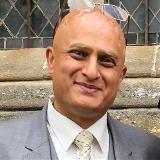
Dr Deonarain studied at Imperial College and Cambridge University where he carried out PhD research into protein engineering. From 1997-2011 Dr Deonarain was a Principle Investigator at Imperial College in Antibody Technology, which led to some novel technologies being developed commercially. Dr Deonarain now retains an honorary position. He has published over 80 papers and patents in protein/antibody engineering/conjugates. In 2014, he co-founded Antikor Biopharma where he is the CEO leading a team to develop the next-generation of antibody-fragment based ADCs
John R. Desjarlais, PhD, CSO, Xencor

Dr. Desjarlais is the Senior Vice President, Research and CSO at Xencor, Inc. Since joining Xencor in 2001, Dr. Desjarlais has overseen the company’s engineering, discovery, and preclinical work on antibodies and other proteins. With his coworkers, Dr. Desjarlais has developed several novel technologies for the optimization of antibodies and other proteins, including a platform for generation of bispecific antibodies, and has led the discovery of multiple therapeutic antibody candidates, including CD3 bispecific antibodies, checkpoint bispecific antibodies, and cytokine-Fc fusions for treatment of a variety of diseases. Dr. Desjarlais oversees all of Xencor’s discovery research and preclinical activities, from project conception and candidate generation through preclinical proof-of-concept and early development. Prior to Xencor, Dr. Desjarlais was an Assistant Professor of Chemistry at Penn State University (1997-2001), where he developed and tested methods for the de novo design of protein sequences. He began his work in the field of protein design as a Jane Coffin Childs Fellow at UC Berkeley. Dr. Desjarlais holds a PhD in Biophysics from the Johns Hopkins University and a BS degree in Physics from the University of Massachusetts, Amherst.
Rakesh Dixit, PhD, President & CEO, Bionavigen

Rakesh Dixit is an accomplished executive, inventor, and scientist with over 35 years of success with top biotechnology and pharmaceutical companies, including Merck, Johnson & Johnson, and Medimmune - AstraZeneca. Currently, he is President and CSO of Regio Biosciences and Bionavigen, LLC. He is a Board Member of Regio Biosciences and a key member of multiple scientific advisory boards. Rakesh is also a chief adviser and consultant for more than 20 companies worldwide. His biopharmaceutical peers selected Rakesh as one of the 100 Most Inspiring People in the Pharmaceutical Industry by PharmaVOICE in 2015. Rakesh received the Most Prestigious Award of Long-Standing Contribution to ADCs by World ADC (Hanson-Wade), 2020. From 2006 to 2019, Rakesh was a Global Vice President of the Biologics R&D at Medimmune - AstraZeneca. Rakesh has unique expertise in developing biologics (e.g., monoclonal antibodies, bispecific biologics, antibody-drug conjugates, fusion proteins, peptides, gene and cell therapies, etc.) and small-molecule biopharmaceuticals. His areas of expertise include discovery, early and late preclinical development, safety assessment, DMPK, and translational sciences. Dr. Dixit conducted extensive graduate and post-graduate training in Pharmacology/Toxicology-Biochemistry with both Indian and USA Institutions (e.g., Case Western Reserve University, Medical College of Ohio, University of Nebraska) and is a Diplomate and Board Certified in Toxicology from the American Board of Toxicology, Inc. since 1992.
Patrick Doonan, PhD, Director of Antibody Engineering, Antibody Discovery, Ailux Biologics
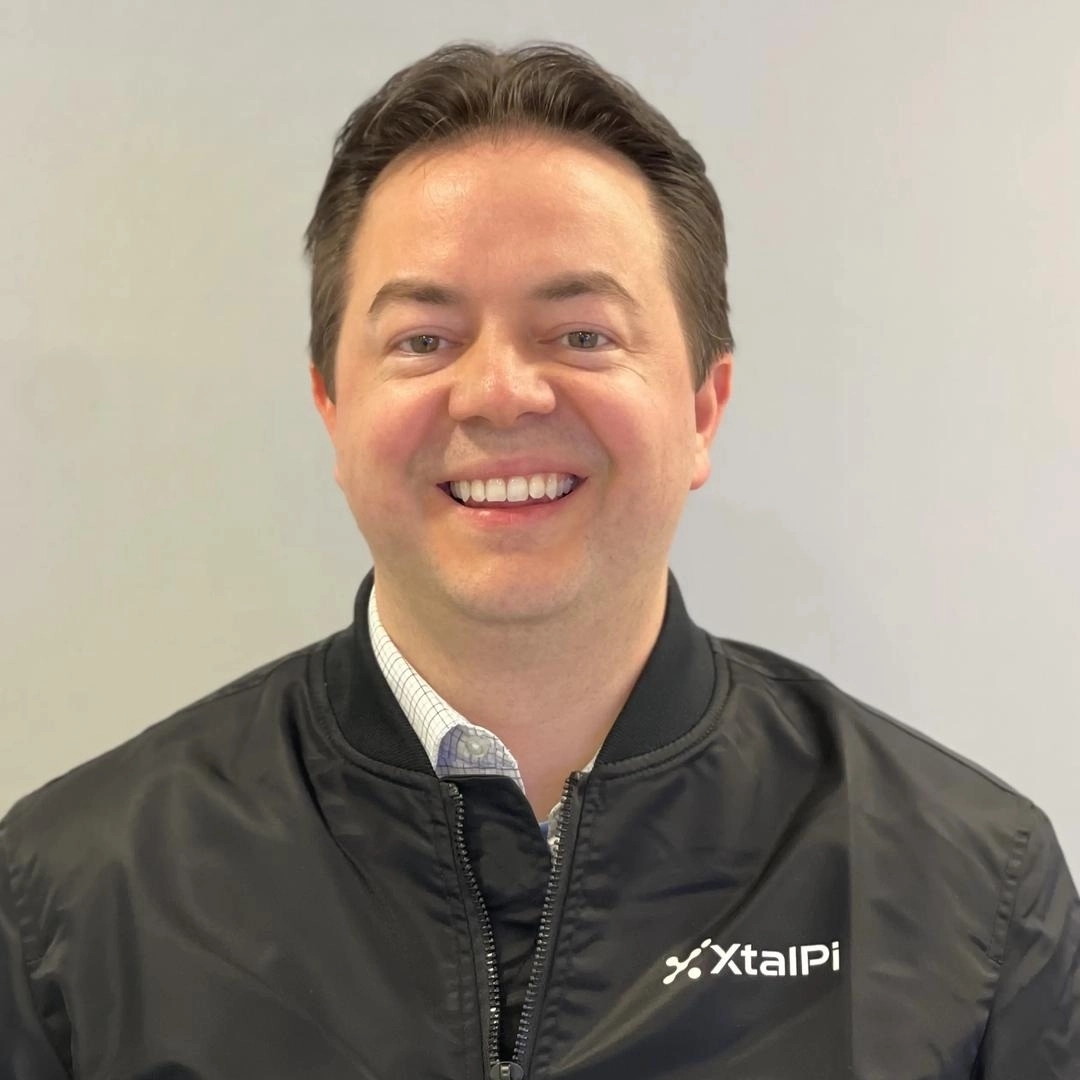
Dr. Doonan holds a Ph.D. in Biochemistry from Temple University and has been in the antibody discovery field for over 10 years representing UPenn, Pfizer, GSK, and Janssen. His work has generated several high impact publications and patents from engineering of bispecifics and ADCs across the fields of immunology, oncology and neuroscience. His current work focuses on utilizing AI to engineer highly developable antibodies that can move quickly to the clinic.
Jiana Duan, PhD, Research Scientist, GenNext Technologies
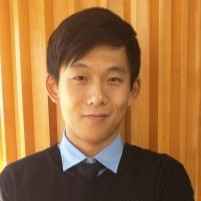
Jiana Duan is a Research Scientist and Software Engineer for GenNext Technologies. He has worked previously on proteomics and glycoproteomics, including method optimization for protein analysis and development of novel algorithms for post-translational modification identification. He plays a role at GenNext in optimizing HPRF identification and quantification algorithms and transition into software and data analysis pipelines.
Mark E. Dudley, PhD, CSO, Instil Bio

Mark Dudley, PhD, is the CSO of Instil Bio. Prior to Instil, Dr. Dudley held leadership positions at Adaptimmune Therapeutics plc, in the Cell Therapies Division of Novartis, and at the National Cancer Institute, where he contributed to a diverse portfolio of experimental T cell therapies including TIL, TCR T, and CAR T products. Dr. Dudley is a recognized pioneer in cell therapy, having led seminal studies combining lymphodepletion with TIL therapy, and contributed to first-in-human clinical trials of genetically engineered T cells including CD19 CAR T cells and TCR T cells. Dr. Dudley received a PhD in Biological Sciences from Stanford University and a BS in Biology at MIT.
Ethan Dunn, Manager, Protein Sciences, Moderna, Inc.

Leader of a small team responsible for recombinant protein production at Moderna, focusing on difficult targets. Over 15 years of protein production experience in the biotech industry. Experience utilizing multiple host systems, both prokaryotic and eukaryotic, to produce incredibly diverse proteins native to bacteria, plants, and humans.
Hilmar Ebersbach, PhD, Sr VP Antibody Dev & Protein Engineering, Antibody Dev & Protein Engineering, ImmunOs Therapeutics AG

Expert in drug development from early research to pre-clinical testing in many disease areas. Hilmar has more than 20 years of experience in research and development of biologics with a proven track record of scientific publications, books, and granted patents. He holds a PhD in protein engineering and a diploma in biochemistry, both from University of Halle, Germany, and completed post-doctoral training in the Pluckthun lab at University of Zurich. After this, he spent 15 years at Novartis/NIBR in different roles with increasing responsibilities in scientific, people, and operational leadership. In these roles he focused to apply drug discovery for a broad range of modalities like therapeutic and multispecific proteins, bio-conjugates, but also CAR T and AAV based assets. During that time, he contributed to the advance of 5 drug candidates from early research into clinical testing in fields of autoimmune diseases and immune-oncology but worked in areas of muscle skeleton and respiratory diseases as well. Hilmar has been Senior Vice President for Antibody Development and Protein Engineering at Immunos Therapeutics since Oct., 2022. Here, he builds a sustainable pipeline for Immunos' HLA-based platform beside contribution to clinical-stage lead asset profiling.
Takashi Ebihara, PhD, COO, GeneFrontier Corporation
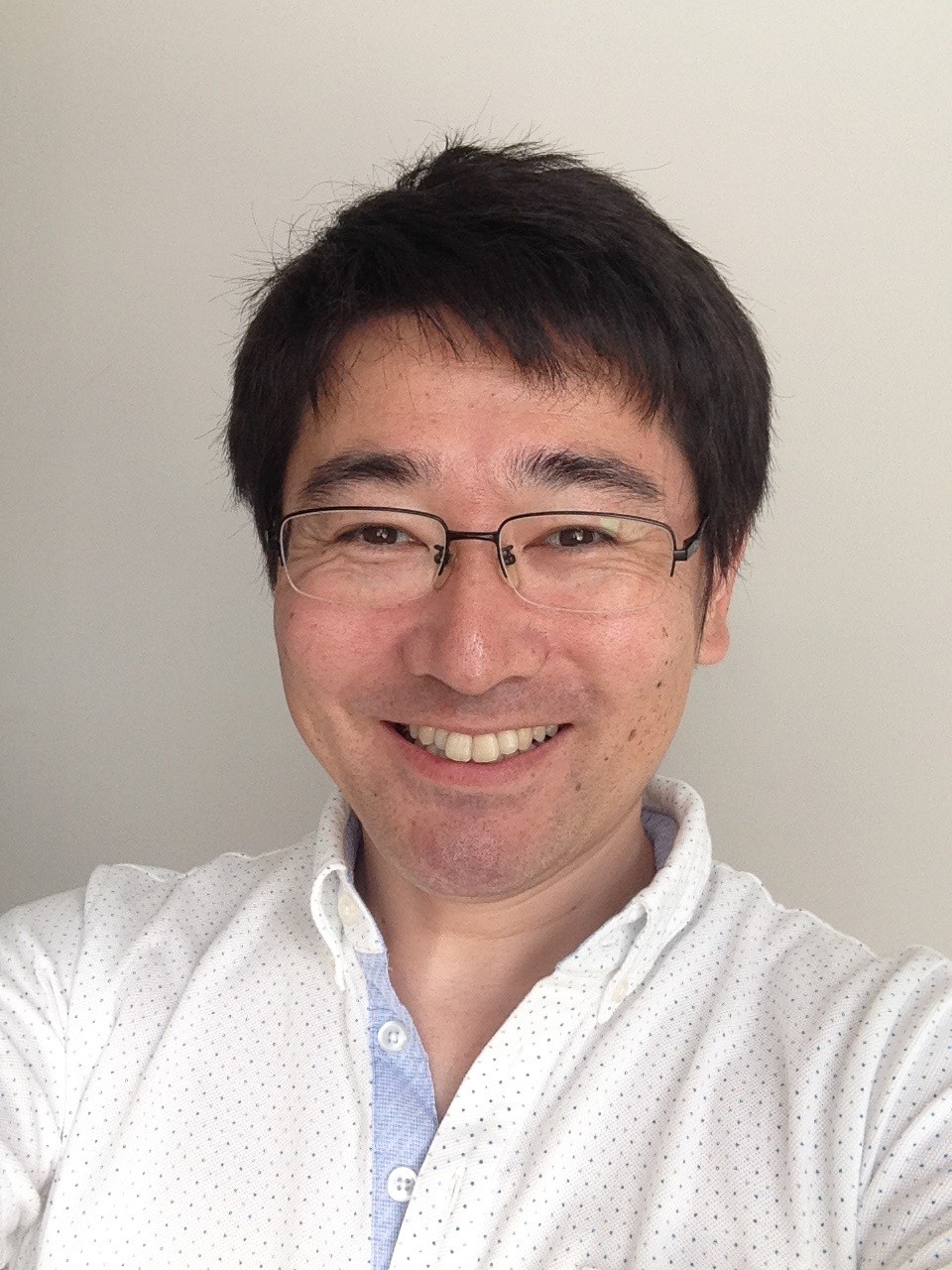
Takashi is COO of GeneFrontier Corporation (GFC) since 2010. Takashi got his PhD for the research of cell-free protein expression system at Tokyo Institute of Technology in 2000 and joined in VC in life science industry. At 2003, Takashi was involved in establishing of GFC and fully committed to business development of GFC from the beginning.
Stephen J. Elledge, PhD, Gregor Mendel Professor, Genetics & Medicine, Harvard Medical School

Stephen J. Elledge is the Gregor Mendel Professor of Genetics and Medicine at Harvard Medical School and the Brigham and Women’s Hospital Division of Genetics, and is a Howard Hughes Medical Institute Investigator. He received his B.S. in chemistry from the University of Illinois and his PhD in biology from the Massachusetts Institute of Technology. He began his laboratory at the Baylor College of Medicine in Houston and moved in 2003 to the Brigham and Women’s Hospital and Harvard Medical School Department of Genetics. He is an elected member of the National Academy of Sciences, National Academy of Medicine, and American Academy of Arts and Sciences. His many awards include the Dickson Prize (2010), Lewis S. Rosenstiel Award for Distinguished Work in the Basic Medical Sciences (2013), Gairdner Foundation International Award (2013), Albert Lasker Basic Medical Research Award (2015), Breakthrough Prize in Life Sciences (2017), and the Gruber Prize in Genetics (2017). Dr. Elledge’s research interests center on genetic approaches to biological problems including the study of proteins that sense and respond to DNA damage and regulate the cell division cycle and cancer. Through this work he uncovered a protein kinase cascade that is now known as the DNA Damage Response. He discovered F-box proteins and Skp1 and, along with Dr. Wade Harper, uncovered the two largest families of E3 ubiquitin ligases: the cullin-RING ligases (CRL), starting with the Skp1-Cul1-F-box sub-family, and the RING domain ligases. He has also worked in unraveling the role of cancer drivers in the evolution of cancer through aneuploidy and how tumor suppressors allow cancers to evade the immune system. More recently Dr. Elledge has developed a suite of immunological methods, such as T-Scan, VirScan, and EpiScan, that allow the genome-wide identification of epitopes recognized by B and T cells. He has used these tools to investigate the role of viruses in human disease such as Measles, MS, and COVID-19.
M. Frank Erasmus, PhD, Head, Bioinformatics, Specifica, Inc.
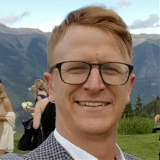
M. Frank Erasmus is the head of bioinformatics at Specifica, Inc. where he specializes in the use of next-generation sequencing technologies and software development to aid in the design of and selection from therapeutic antibody libraries. Formerly, Frank was awarded a national fellowship from the National Cancer Institute for his translational research associated with B cell precursor acute lymphoblastic leukemia conducted at the Spatiotemporal Modeling Center and Los Alamos National Labs. He brings over 13 years of experience in both biotechnology and academic settings in the development and characterization of therapeutic antibodies using theoretical modeling, bioinformatics, and experimental approaches.
Orhi Esarte Palomero, PhD, Postdoctoral Fellow, Pharmacology, Northwestern University

Orhi received his PhD in Chemistry from The University of Texas at Austin. He is currently conducting postdoctoral research with Paul G. DeCaen in the Pharmacology Department at Northwestern University’s Feinberg School of Medicine. At Northwestern, he studies the biophysics of polycystin ion channel variants that cause polycystic kidney disease (PKD) and transporters involved in bacterial biofilm organization.
Dominic Esposito, PhD, Director, Protein Sciences, Frederick National Laboratory
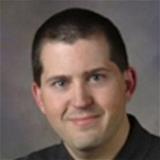
Dr. Esposito is currently the Director of the Protein Expression Laboratory (PEL) and Project Lead for the RAS Reagents Core at the Frederick National Laboratory for Cancer Research in Frederick, Maryland. The 38 employees in the PEL clone, express, and purify proteins from a variety of host organisms in support of the NCI RAS Initiative and for investigators at the National Institutes of Health. In addition, the PEL invents and develops novel technologies for improving protein expression and production, focused heavily on baculovirus expression technology and combinatorial cloning. Prior to his role as director, Dr. Esposito led the Clone Optimization Group in the PEL for nine years and was responsible for the generation of over 15,000 expression clones, 400 new expression vectors, and several technological innovations in protein expression. Dr. Esposito received his B.A. in Chemistry at La Salle University in Philadelphia, and his Ph.D. in Biochemistry in the laboratory of Dr. John Scocca at the Johns Hopkins University Bloomberg School where he studied bacteriophage site-specific recombination. Dr. Esposito then worked as a postdoctoral fellow in the laboratory of Dr. Robert Craigie at the NIDDK, where he studied the protein-DNA interactions involved in the HIV integration reaction. Prior to joining the FNL in 2001, Dr. Esposito worked for three years as a Staff Scientist in the Protein Engineering group at Life Technologies, where he helped to develop the Gateway recombinational cloning system. Dr. Esposito has published over 100 peer-reviewed manuscripts in the fields of protein expression and DNA recombination.
Daniel Fallon, Scientist, Protein Analytics, Dragonfly Therapeutics

I am a scientist at Dragonfly Therapeutics, using biosensing technologies to characterize the binding properties of IgG-based multispecific antibodies and therapeutics proteins. I am also pursuing an industry PhD in chemistry through Northeastern University.
Felix Findeisen, PhD, Associate Director, Discovery Biotherapeutics, Bristol Myers Squibb

Felix Findeisen is an Associate Director leading the Redwood City Protein Sciences group at BMS. He obtained his doctorate degree in the lab of Irmgard Sinning at the University of Heidelberg in Structural Biology, elucidating mechanistic insights through structural biology on G-protein coupled receptors and pathogenic signaling pathways. His post-doctoral studies on the regulation of voltage-gated ion channels were conducted with Daniel Minor at UCSF. In 2014, he joined Achaogen as an antibody engineer to help build out a large molecule therapeutic antibody department. He has been working for BMS since 2018.
Ricarda Finnern, Dr., Chief Scientific Officer, LenioBio
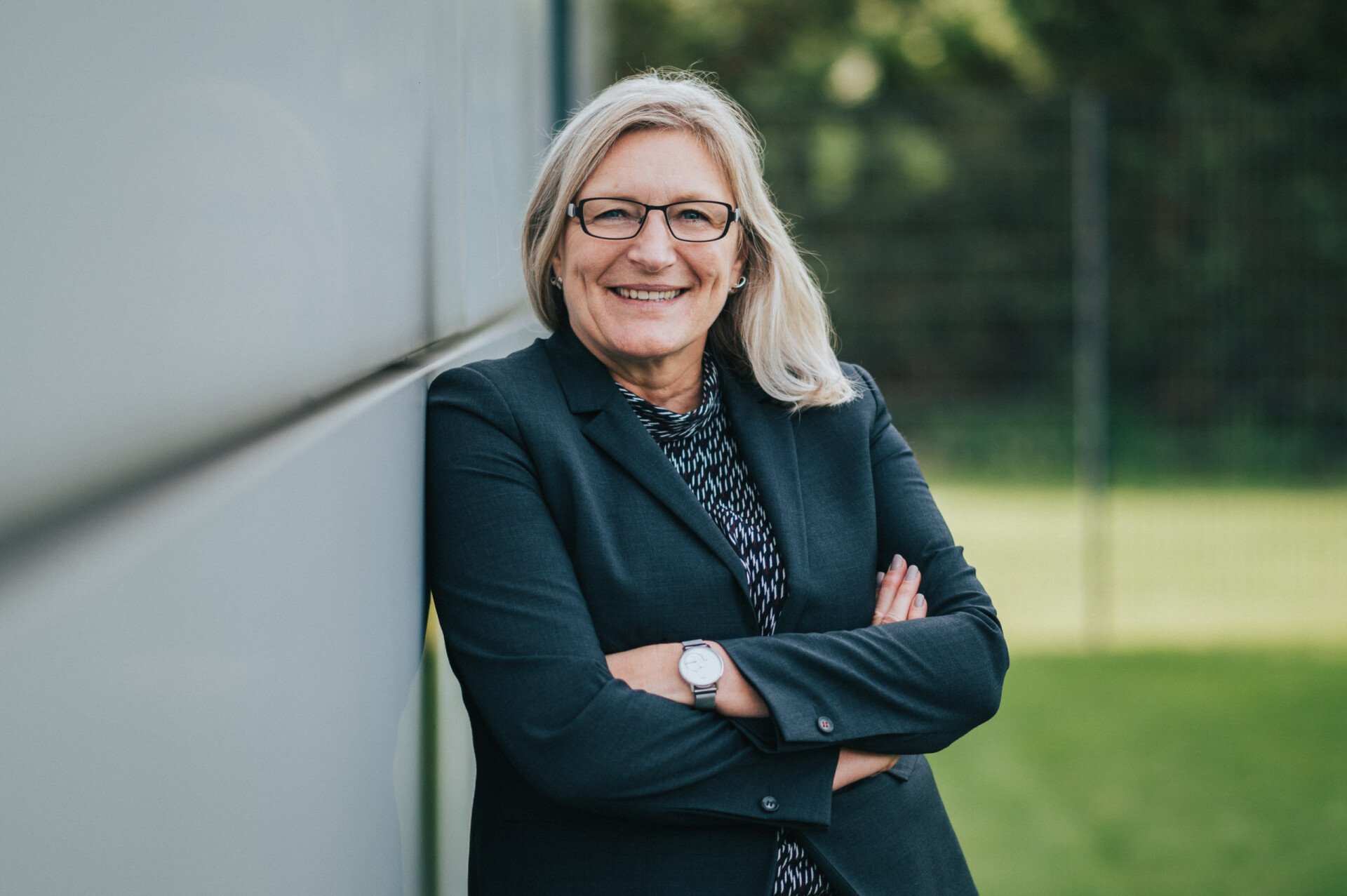
Dr Ricarda Finnern, Chief Scientific Officer, joined LenioBio in 2019 from Bayer AG, where she was leading several global development programs for biologics and small molecules in oncology and cardiovascular and nephrological indications.
Ricarda is a molecular biologist and immunologist by training and has over 25 years of experience in academia, contract research organizations, and the pharmaceutical industry.
Brian P. Fiske, PhD, Co-Founder & CSO, Mythic Therapeutics

Brian Fiske is one of the premier young entrepreneurs in biotech. In 2017, he co-founded Mythic Therapeutics, a product-platform company developing a pipeline of antibody-drug conjugates (ADCs) designed to exhibit unparalleled therapeutic index and efficacy. He currently serves as the company’s CSO and as a member of the Board of Directors. Mythic’s FateControl technology specifically enhances ADC uptake in targeted tissues by manipulating the fate of the ADC within the cell, thereby expanding the disease and patient profiles that can be treated with Mythic’s ADCs. Prior to Mythic, Brian was a co-founder and CTO at Ohana Biosciences and a Senior Associate at Flagship Ventures, where he co-founded Ohana and KSQ Therapeutics. He has been nationally recognized for healthcare entrepreneurship by Forbes 30 under 30 and Endpoints 20 under 40.
Rachel Fong, Director of Sales and Alliances, Integral Molecular

Rachel Fong is the Director of Sales and Alliances at Integral Molecular, with over 10 years of experience at the company. Rachel manages relationships with customers, collaborators, and partners for MPA projects. As a founding member of the scientific team that launched this platform, she brings a unique perspective that helps guide partners from initial discussions to successful project completion. Rachel joined Integral Molecular in 2010 and is a co-author on over a dozen publications.
Shelley Force Aldred, PhD, Co-Founder & CEO, Rondo Therapeutics

Shelley Force Aldred is the founder and CEO of Rondo Therapeutics, an emerging preclinical stage biopharmaceutical company developing bispecific therapeutic antibodies that enable controlled activation of the immune system to fight cancer. Previously, Dr. Force Aldred served for as Vice President for Preclinical Development at TeneoBio, a highly successful multispecific therapeutic antibody company. She was part of the formation of TeneoBio and led the preclinical efforts creating a CD3xBCMA bispecific antibody, from product concept to IND-ready package. Dr. Force Aldred was formerly director of worldwide R&D for Active Motif following the acquisition of SwitchGear Genomics in 2013. In 2006, she co-founded SwitchGear Genomics, a venture-backed functional genomics platform company, and she served as its COO and Board Member. Prior to founding SwitchGear Genomics, Dr. Force Aldred was a Scientific Director on Stanford’s ENCODE Project and received her PhD from Stanford University.
Erica J. Fratz-Berilla, PhD, Senior Research Scientist, Office of Pharmaceutical Quality Research, FDA CDER

Dr. Berilla is a Senior Research Scientist within the newly formed Office of Pharmaceutical Quality Research (OPQR) within CDER’s Office of Pharmaceutical Quality (OPQ). From 2016 to early 2024, she led the cell culture team of the upstream bioprocessing laboratory within the Office of Biotechnology Products (OBP) and performed primary CMC assessment for OBP products. Her research has focused on continuous biomanufacturing, emerging biomanufacturing technologies and effects of upstream process changes on critical quality attributes of monoclonal antibodies. Dr. Berilla obtained her B.S. in Biochemistry from Lehigh University and Ph.D. in Biomedical Sciences from the University of South Florida.
Fredrik Frejd, PhD, CSO, Affibody AB

Fredrik Frejd is the Chief Scientific Officer at Affibody and has over 25 years of experience in life science research with particular expertise in biologics drug development and tumor biology, phage display and therapeutic protein engineering of alternative scaffolds. Dr. Frejd received his Ph.D. from the Swiss Federal Institute of technology, ETH, in Zurich in 2001 and joined Affibody AB in 2002. Dr. Frejd is also an adjunct professor in cancer precision medicine at the department for Immunology, Genetics and Pathology at Uppsala University, with a special focus on development of minimized tumor targeting agents for targeted payload therapy.
Niklas Freund, PhD, Postdoctoral Researcher, MRC Laboratory of Molecular Biology

Niklas Freund is a Postdoctoral Researcher at the MRC Laboratory of Molecular Biology (LMB) in Cambridge, UK. Niklas studied chemistry and biochemistry at the universities of Munster, Heidelberg, and Cambridge. His PhD in the lab of Phil Holliger at the MRC LMB was focused on nucleotide chemistry and polymerase engineering to establish the encoded synthesis and evolution of FDA-approved 2'-modified nucleic acid chemistries. This work is published in Nature Chemistry and patented. Niklas has since applied this engineered polymerase to the selection of biostable 2'-modified aptamers against a number of protein targets.
Melanie M. Frigault, PhD, Vice President, Translational Medicine, Vincerx Pharma

Melanie Frigault, PhD is the Vice President of Translational Medicine of Vincerx. In the year before joining Vincerx, Dr. Frigault was the US head of Translational Medicine at AstraZeneca with a strategic focus on precision medicine and accelerating clinical development using novel biomarker based endpoints in both hematological malignancies and solid tumors. From 2016 to 2020, Dr. Frigault established a translational science department at Acerta-Pharma in South San Francisco, CA to support development of CALQUENCE® in Mantle Cell Lymphoma (2017) and Chronic Lymphocytic Leukemia (2019) with clinical biomarker data. Dr. Frigault held positions of increasing responsibility at AstraZeneca from 2011 to 2016 where she inserted science into the development of the portfolio ranging from target selection to phase 3 pivotal trials including biomarker discovery and companion diagnostic development. Dr. Frigault began her clinical research career at Novartis Institute of Biomedical Research in Cambridge, MA where she developed biomarkers and drove pre-clinical collaborations to address the knowledge gap to inform clinical development. Dr. Frigault obtained her PhD in Biochemistry from McGill University, Quebec, Canada.
George J. Fromm Jr., PhD, CSO, R&D, Shattuck Labs, Inc.

George joined Shattuck Labs in 2017, where he is one of the scientific co-founders and currently serves as Chief Scientific Officer. Previously, George served as the Senior Director of Research and Development at Heat Biologics, Inc., where he directed the Discovery and Clinical based research efforts for their Phase I/II trials, and co-invented a ‘next-generation’ vaccine platform that combines a cell-based immunotherapy vaccine and a T cell costimulatory fusion protein in a single treatment. He has authored IND submissions, NIH and Private Foundation Grants, and numerous publications in leading journals, including Cell, Molecular Cell, Genes and Development, and Blood. He received his MS and PhD from the University of Rochester, NY and conducted his postdoctoral fellowship training with the NIH branch; National Institute of Environmental Health Sciences.
Lionel Galibert, Senior Principal Research Scientist, Biotherapeutics and Genetic Medicine, AbbVie

Dr. Lionel Galibert has accumulated over 15 years of experience in the adeno-associated virus (AAV) gene therapy field. On the team of Dr. Otto Wilhelm Merten in Genethon in France, he developed a single baculovirus to produce rAAV8 in Sf9 cells and demonstrated the involvement of the baculovirus protease on the degradation of certain AAV capsids. On the team of Dr. Michael Linden in Pfizer in London, Dr. Galibert developed the rAAV production system in fixed-bed bioreactors using mammalian cells. He then worked in Finland with Pr. Kari Airenne at FinVector and the Kuopio Center for Gene and Cell Therapy (KCT), leading the AAV research with a particular focus on the wild-type AAV. The discovery of mutants of the AAV protein “Membrane-Associated Accessory Protein” allowed to reach the highest described cell productivity in the rAAV field. Dr. Galibert is now Senior Principal Research Scientist and head of the rAAV Research and Production team at AbbVie, Worcester, MA.
Rajkumar Ganesan, PhD, Executive Director, Amgen Inc

As an Executive Director at Amgen’s Oncology research, Raj is engaged in discovery and pre-clinical development of Antibody Drug Conjugates and T cell engagers. He received PhD in Molecular Biology from University of Zurich. Over the last 15+ years, while working for Genentech, AstraZeneca, Boehringer Ingelheim and Janssen, Raj has led the discovery efforts for several molecular and cellular therapies and progressed series of Immunotherapeutics and CAR Ts for clinical development.
Francis Gaudreault, PhD, Research Officer, Human Health Therapeutics, National Research Council Canada

Francis obtained his PhD in Biochemistry from University of Sherbrooke in 2015, during which he developed a molecular docking program for docking small molecules to flexible protein or RNA targets. While doing his PhD studies, Francis co-founded a successful IT company for automating the management of scientific conferences. Francis joined the National Research Council (NRC) of Canada in 2016, where he has taken part in and led various efforts in the discovery and engineering of antibodies or other biologics. In such efforts are included the structure prediction of antibodies alone or in complex, the affinity assessment of antibody-antigen complexes, and the detection of antibody developability issues. Francis is leading the technical efforts in using artificial intelligence for antibody discovery.
Nimish Gera, PhD, Vice President, Biologics, Mythic Therapeutics

Nimish Gera is the Vice President of Biologics at Mythic Therapeutics leading multiple projects to engineer and develop novel antibody and antibody-based drugs in oncology and immuno-oncology. Prior to Mythic, Nimish has over fifteen years of experience in antibody and protein engineering with five years leading bispecific antibody programs in several disease areas such as rare diseases, oncology, and immunology at Alexion Pharmaceuticals and Oncobiologics. Nimish received his PhD degree in Chemical and Biomolecular Engineering from North Carolina State University and a B.Tech degree in Chemical Engineering from Indian Institute of Technology, Guwahati.
Cindy Gerson, Senior Lead Product Manager, Enterprise Informatics, Schrodinger
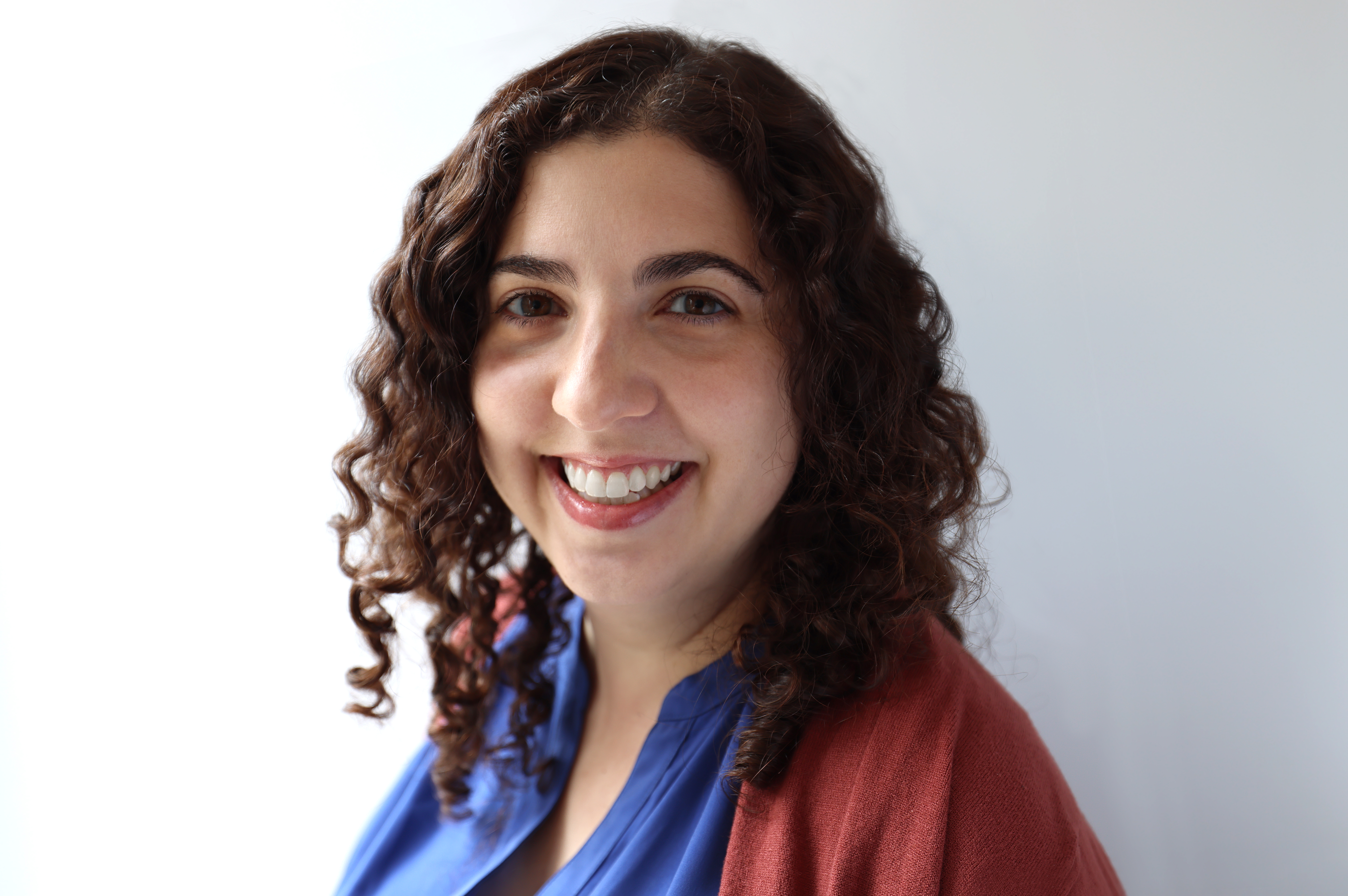
Cindy Gerson is a Senior Lead Product Manager, Enterprise Informatics at Schrodinger where she leads the LiveDesign for Biologics development efforts. Previously, Cindy worked at Regeneron Pharmaceuticals in the field of monoclonal antibody-based therapeutics discovery, where she developed, optimized, and executed platforms for the isolation of target-specific antibodies. She completed her BS in Biomedical Engineering at Columbia University and her MS in Bioengineering at Georgia Tech.
Avinash Gill, PhD, Senior Scientific Manager, Antibody Engineering, Genentech Inc.

Dr. Gill received his Ph.D. in Biochemistry and Structural Biology from Dartmouth College and completed his post-doctoral research at the Thayer School of Engineering at Dartmouth. In his previous roles, he worked at ImmunoGen, Bio-Architecture Lab, and Sutro Biopharma. His research interests include protein purification, biochemical assay development, protein engineering, affinity analysis, automated process development, and bioinformatics. Currently, he is Senior Scientific Manager in the Antibody Engineering department at Genentech, where he oversees efforts in automated high-throughput protein production, design, implementation, and maintenance of automated workflows for antibody discovery and engineering, as well as software and automated workflow development for efficient process management. His research group focuses on developing and implementing automated high-throughput technologies for production and characterization of naturally derived and engineered antibodies, antibody fragments, as well as other novel therapeutic formats.
Jacob Glanville, Founder, CEO & President, Centivax

Jacob Glanville is a serial entrepreneur, and computational immuno-engineer. He is the Founder and CEO of Centivax, and was previously the Co-Founder and CEO of Distributed Bio, acquired for $104M in 2020 by Charles River Laboratories. He has developed multiple seminal methods in the fields of high-throughput antibody repertoire sequencing (PNAS 2009), repertoire decoding algorithms (Nature 2017), single-cell TCR receptor & phenotype sequencing (Nature Biotech, 2014), deconstructing genetic variation in the adaptive immune system (Nature Communications 2015, Nature Reports 2016, PNAS 2011, TI 2017), and computationally guided antibody library engineering (JMB 2011, JMB 2013, COSB 2015). He is the inventor of Centivax Universal Vaccine IP, the Centivax bnAb IP portfolio, the CRL SuperHuman discovery library technology, the CRL Tumbler technology, the Twist TAO technology, the Twist GPCR libraries, the Isogenica VHH technology, and the AbCheck AbAccel technology He has been awarded a Gates Foundation Grand Challenge “Ending the Pandemic Threat,” a National Institute of Health Principle Investigator for an NIH SBIR, a recipient of the 2021 Medical Technology Enterprise Consortium “Prototype of the Year Award” for “Technology Development with Outstanding Progress and High Military Need,” Stanford University Scientific Advisory Committee member for the Sean Parker Center for Allergy and Asthma Research, a Scientific Advisory Board member for the University of San Francisco's Biotechnology program, an affiliate professor of University of San Carlos, a repeat Gates Foundation/Stanford University Computational and Systems Immunology Grant Recipient while a PhD Candidate with Mark Davis at Stanford, a Recipient of Pfizer Achievement award 2010 while Principal Scientist at Pfizer, and has been a course-founding instructor and guest lecturer for multiple graduate-level applied computational and systems immunology courses at Stanford and USF.
Jochem Gokemeijer, PhD, Senior Director, Molecular Discovery Technologies, Bristol-Myers Squibb

Jochem has been at Bristol-Myers Squibb for 14 years in different roles of responsibility focused on biologics drug development. For the last 8 years he has been focused on building a group for pre-clinical immunogenicity risk assessment and mitigation. He received his training at the University of Groningen and the Dana Farber Cancer Institute.
Joel Goldstein, PhD, Executive Director R&D, Celldex Therapeutics
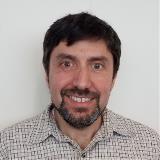
Joel Goldstein received his PhD in molecular biology from the University of Medicine and Dentistry of New Jersey (UMDNJ) in 1991. He then did his postdoctoral work at Bristol-Myers Squibb (BMS) on antibody fusion proteins prior to joining Medarex in 1994. His role at Medarex was initially to develop bispecific antibodies and fusion proteins, which then evolved into developing antibody production platforms for manufacture. Joel moved back to BMS in 2009 where he continued to lead a team developing manufacturing cell lines for the company’s biologics programs. He then joined Celldex Therapeutics in 2014 to help manage R&D efforts, including establishing antibody engineering and bispecific antibody design strategies for the company’s pipeline.
Steffen H.J. Goletz, PhD, Full Professor, Deputy Head, Vice Director, Biotechnology & Biomedicine, Danish Technical University

PhD, Professor, Head of RG Biotherapeutic Glycoengineering & Immunology, DTU Bioengineering, Technical University of Denmark. Focus on novel bi- and multispecific antibody and cell-based therapeutics in immunooncology and infectious diseases. After early career in academic research, e.g. MDC in Berlin and MRC in Cambridge, SG founded, lead and matured Biotech companies successfully as CEO and CSO over 17 years before joining DTU as professor, Deputy Head of the Department and Head of Innovation & Entrepreneurship. Extensive experience in Strategic & Corporate Development, Investor Financing & Licensing, R&D, patenting and GMP manufacturing, incl. Early Research & Discovery, Preclinical Development, Process Development, Toxicology of Biopharmaceuticals, and Clinical Development and from FIM to larger PhIIb Studies. Heading R&D of biotherapeutic antibodies and proteins, complex antibody engineering, phage display, cellular and molecular glycoengineering, mammalian production cell system engineering, USP and DSP production process development. Heading GMP-production, preclinical and clinical development.
Neal Goodwin, PhD, CSO, Immuto Scientific

Neal Goodwin is our Chief Scientific Officer responsible for Immuto translational drug discovery programs. With over 20 years of experience in drug discovery and development, Neal has contributed to successful IPOs, multiple technology deals, and award-winning research projects. Neal’s core competencies include advanced translational platforms, drug discovery and development, and gene delivery technologies. Neal is a founder of Jaya Biosciences, developing gene therapies for neurodegenerative diseases, including Alzheimer’s disease. Neal is the past CSO for Teknova (NASDAQ: TKNO), where he implemented gene-delivery technology platforms. Before Teknova, Neal was Vice President of Corporate Research Development for Champions Oncology (NASDAQ: CSBR), developing a personalized and translational oncology pharmacology platform. Before Champions, Neal served as the Director of Research and Development and Program Director of JAX Cancer Services, where he established an oncology translational tumor biology program in collaboration with over 20 clinical trial centers. Neal is a co-founder and former CSO of ProNAi Therapeutics (Sierra Oncology; NASDAQ: SRRA; acquired by GSK). Neal received a Ph.D. in Microbiology from The University of Montana and served an NIH postdoctoral fellowship in functional genomics at The Jackson Laboratory with John Schimenti (now at Cornell). https://www.linkedin.com/in/neal-goodwin-phd-mba-0612909/
Quentin Gouil, PhD, Senior Research Officer, Department of Medical Biology, University of Melbourne

Dr. Gouil is an NHMRC Emerging Leadership Fellow at the Walter and Eliza Hall Institute in Melbourne, Australia. His research focuses on unravelling the complexities of epigenetic regulation in health and disease, using cutting-edge genomic and computational methods in a variety of species. Topics include genomic imprinting, X inactivation, and the epigenetic causes of human disease.
Sridhar Govindarajan, CIO & Co-Founder, ATUM
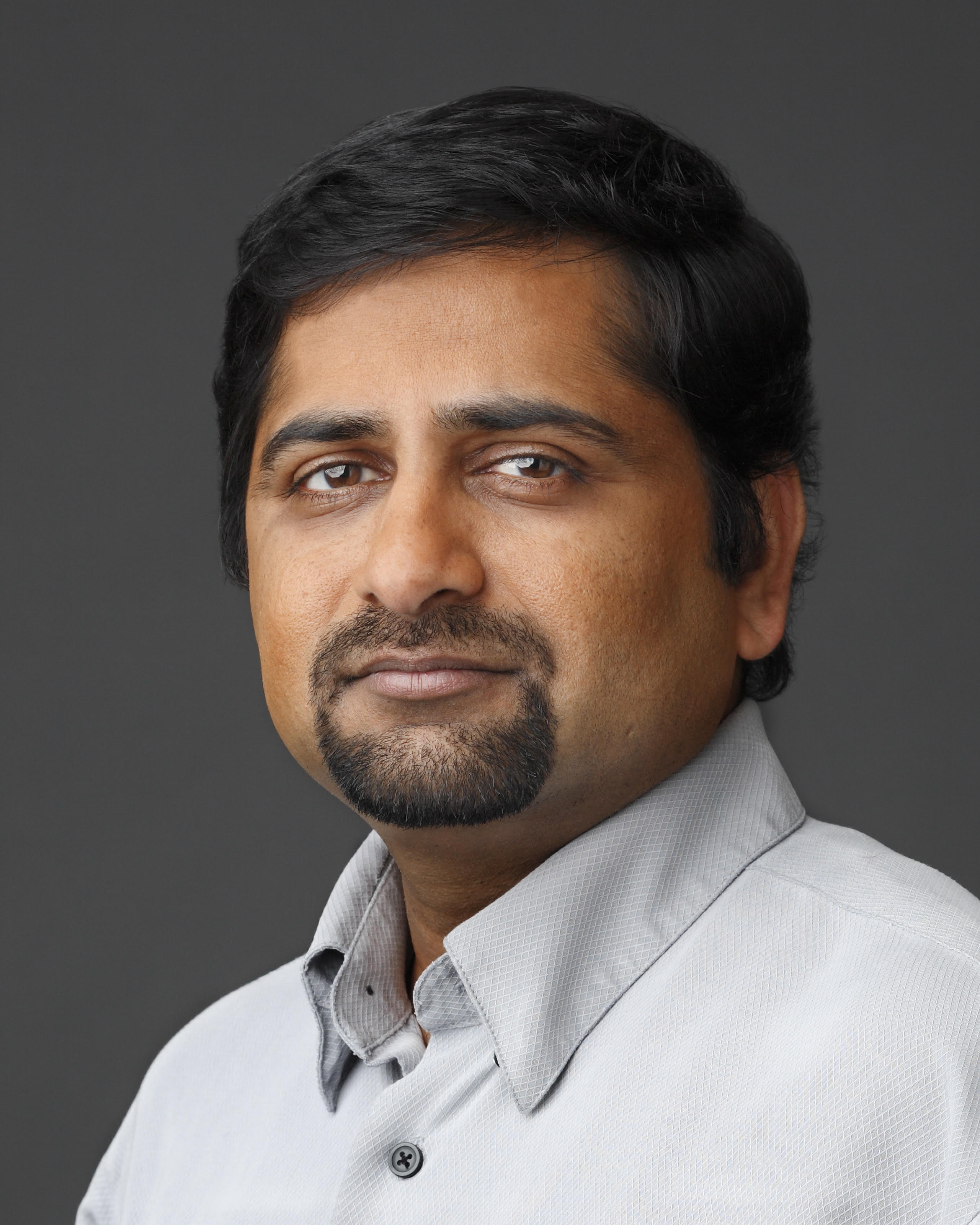
As ATUM’s co-founder & CIO, Dr. Sridhar Govindarajan leads the company's automation, machine learning and protein engineering efforts. He has over 25 years of scientific computing experience. Before ATUM, he led computational research in optimizing directed evolution technologies at Maxygen and was a Systems Architect at EraGen Biosciences. Dr. Govindarajan has an undergraduate degree from the Indian Institute of Technology and a PhD in Computational Chemistry/Biophysics from the University of Michigan.
Jaya Goyal, PhD, Executive Vice President, Research and Preclinical Development, PepGen

Jaya serves as the Executive Vice President of Research and Preclinical Development at PepGen. Jaya holds nearly 30 years of experience in biotech R&D including extensive experience in rare disease research. Previously, she served as Senior Vice President, Preclinical and Clinical Development Sciences at Wave Life Sciences where she led preclinical pharmacology, toxicology, bioanalytical, DMPK, clinical pharmacology, and biomarker functions to support the preclinical and clinical development of nucleic acid-based therapeutics for fatal neurological diseases, including moving multiple candidates successfully from preclinical to clinical development. Previously, she worked at Biogen in roles of increasing responsibility, including Senior Director, Value Based Medicine, where she directed patient stratification and personalized medicine approaches for people with multiple sclerosis (MS). She trained as a postdoctoral fellow at New England Medical Center and Rush Presbyterian St. Luke’s Medical Center after completing her PhD in Biochemistry at Central Drug Research Institute in India.
Peyton Greenside, PhD, Co-Founder & CSO, BigHat Biosciences

Peyton Greenside is the co-founder and CSO of BigHat Biosciences, an early-stage Bay Area startup developing an AI-first experimental platform to radically reduce the difficulty of designing antibodies and other therapeutic proteins. Before BigHat, Peyton was an inaugural Schmidt Science Fellow, a computational biologist at the Broad Institute, a scientific founder of Valis, and holds a PhD from Stanford University, an MPhil in Computational Biology from Cambridge University, and a BA in Applied Math from Harvard.
Amanda Grimm, Sr. Segment Marketing Manager, GenScript USA Inc
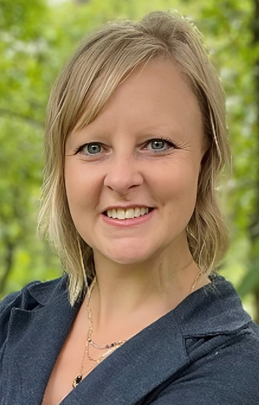
Amanda is the Senior Marketing Manager for GenScript's antibody drug discovery portfolio. Her previous work experience includes immunopathology research, immunoassay development, manufacturing, and licensure, and product management of automation technology and diagnostics. Amanda currently oversees portfolio education, marketing campaign management, and provides sales and distribution support. Amanda has two Bachelor of Science degrees, in Microbiology and Biochemistry, and a Professional Science Masters (PSM) from Washington State University.
Garrett G. Gross, PhD, Senior Scientist, Protein Engineering & Drug Discovery, Sutro Biopharma Inc.

Dr. Gross earned his B.S. in Biochemistry and Molecular Biology from UC Davis and his Ph.D. in Neuroscience from UCLA. As a postdoctoral fellow at USC, he was mentored by Prof. Richard W. Roberts, an inventor of the in vitro directed evolution technology mRNA display. In the Roberts lab, Dr. Gross generated monobodies based on the 10th domain of human Fibronectin, linear and cyclic peptides, and antibody fragments as conditional protein degraders, intracellular imaging reagents, and potential therapeutics to a range of large molecule targets. On completion of his postdoc, he joined the structural biology and antibody engineering departments at Genentech, where he was involved in the development of chaperones to structurally enable pipeline programs and the discovery of antibody therapeutics. In 2022, Dr. Gross joined the protein engineering department at Sutro Biopharma, where he leads a team engaged in the discovery and optimization of antibodies for drug pipelines.
Beatriz Guglieri-Lopez, PharmD, PhD, Director, Clinical Pharmacology and Pharmacometrics, PumasAI

Over the last 7 years, Beatriz has focused on the application of pharmacometrics to dosage optimization and to support drug development, from first-in-human dose estimations to MIDD drug applications. She has extensive experience with NONMEM, R, and other software packages. Beatriz holds a Doctorate in Pharmacometrics from the University of Valencia, Spain, and a specialist degree in Clinical Pharmacy from Doctor Peset University Hospital of Valencia, Spain. Her post-doctoral fellowship was at the University of Maryland Center for Translational Medicine.
Nicholas Guido, PhD, Technical Staff, MIT Lincoln Laboratory

Dr. Nicholas J. Guido is technical staff in the Biological and Chemical Technologies group at MIT Lincoln Laboratory. The focus of his work is on synthetic biology, including DNA synthesis, genetic networks and pathways, and the application of engineering principals to biological systems in general. His recent work focuses on risk analysis of new biotechnologies and assessing the value of biomanufacturing to meet national security needs. Dr. Guido has a BSE degree in Bioengineering from the University of Pennsylvania. He received his PhD in Bioinformatics from Boston University where he conducted research into the modeling and physical construction of synthetic genetic networks in bacteria. In his postdoctoral work in the Genetics Department at Harvard Medical School, Dr. Guido studied modeling of the metabolism of bacteria, leveraging this information to carry out genome engineering, thus increasing the production of high value products. Prior to joining the Laboratory in 2017, Dr. Guido was a senior scientist with Gen9, a start-up DNA synthesis company based in Cambridge, MA. In this capacity he optimized the DNA synthesis process for production of difficult material and created a process for the synthesis of highly variant DNA libraries.
Michele Gunsior, PhD, Senior Director, Astria Therapeutics

Dr. Gunsior is Senior Director and Head of Translational Sciences at Astria Therapeutics, responsible for delivering translational medicine and bioanalytical objectives to support all stages of a therapeutic drug program. Prior to joining Astria, Dr. Gunsior was in the TS/TM group at Viela Bio (acquired by Horizon Therapeutics) overseeing clinical and nonclinical bioanalytical work, managing toxicology studies, and incorporating TM objectives into clinical studies. She joined Viela Bio from AstraZeneca/MedImmune, first beginning her career in the pharmaceutical/biotech industry at Covance Laboratories (now Labcorp). Dr. Gunsior served as the first Chair of the Women in Pharmaceutical Sciences Community within AAPS, is currently leading the ADA Clinical Relevance sub-team, and is a member of the extended Biomarker and Precision Medicine Community Leadership Team within AAPS.
Abhinav Gupta, PhD, Senior Machine Learning Scientist, Next-Generation Biologics Design, Sanofi

Abhinav Gupta joined Sanofi last year in August as a Senior Machine Learning Scientist, Next Generation Biologics Design. Abhinav received his PhD in Mechanical Engineering and Computation from MIT where he developed state-of-the-art algorithms and methodologies for uncertainty quantification, Bayesian learning, and deep learning for dynamical systems. At Sanofi, Abhinav is working on developing ML/AI solutions to facilitate in silico Ab/Nb engineering and design, as well as supporting pipeline projects by application of advanced ML/AI methods.
Matias Gutierrez-Gonzalez, PhD, Research Fellow, The Ragon Institute of MGH, MIT, and Harvard

Dr. Matias Gutierrez is a Postdoctoral Researcher in the lab of Dr. Brandon DeKosky at the University of Kansas. Dr. Gutierrez’s graduate research studied the development and characterization of biopharmaceuticals, with a focus on monoclonal antibodies. Currently, Dr. Gutierrez works to develop new tools for bioinformatic analysis of single-cell antibody repertoire data, and to establish new techniques for high-throughput B cell sequencing.
Michael Gutknecht, PhD, Principal Scientist II, Novartis Pharma AG

Michael is a trained immunologist specialized in immunogenicity profiling with over 6 years of expertise in immunogenicity risk assessment of biologics. He joined Novartis in 2017, applying his expertise to improve various immunogenicity profiling assays. As part of the cross-functional Immunogenicity Hub, Michaels team supports biotherapeutic projects by addressing mechanistic questions and providing Immunogenicity profiling utilizing an ever expanding in silico and in vitro assay toolbox.
Benjamin J. Hackel, PhD, Professor, Chemical Engineering & Materials Science, University of Minnesota

Ben Hackel is a Professor of Chemical Engineering and Materials Science at the University of Minnesota. He earned degrees in chemical engineering from the University of Wisconsin (B.S., advised by Eric Shusta) and MIT (PhD, advised by Dane Wittrup) and performed postdoctoral research in the radiology department at Stanford University (Sam Gambhir). Since its inception, the Hackel lab has applied protein engineering technologies to develop physiological molecular targeting agents for molecular diagnostics and targeted therapy, with a focus on oncology and infectious disease.
Jessica Hartmann, PhD, Biochemist, Federal Institute for Vaccines & Biomedicines, Paul Ehrlich Institut

Dr. Jessica Hartmann is the deputy head of the research group Molecular Biotechnology and Gene Therapy at the Paul-Ehrlich-Institute (PEI), Langen, Germany, working on the development and improvement of cell type selective gene transfer vectors (lentiviral vectors, AAV, LNP) for various applications including cancer immunotherapy and neuroscience. In addition, Dr. Hartmann is involved in the regulatory approval of clinical trial and marketing authorization applications as well as scientific advice meetings for advanced therapy medicinal products (ATMPs) at the PEI. She studied and obtained a PhD in biochemistry at the Johann Wolfgang Goethe University, Frankfurt, Germany and completed her PhD thesis in the field of NK cell biology at the Georg-Speyer-Haus, Frankfurt, Germany.
S. Saif Hasan, PhD, Assistant Professor, Biochemistry & Molecular Biology, Center for Biomolecular Therapeutics, University of Maryland

S. Saif Hasan, PhD, is a structural biologist with over a decade of experience in membrane protein research. Currently, he is an Assistant Professor at the Department of Biochemistry and Molecular Biology and a Group Leader at the Center for Biomolecular Therapeutics, at the University of Maryland School of Medicine. He uses cryo-electron microscopy and X-ray crystallography to elucidate how medically important membrane proteins such as the genetic vaccine-encoded spike protein of SARS-CoV-2 are exported to the cell surface. He has published in journals such as Nature Communications, PNAS, Structure, and JBC, and his research is supported by federal and private funding.
Nasser Hashemi, PhD, Senior Scientist, Discovery Biologics, Merck

Nasser Hashemi is a machine learning engineer at Merck's Discovery Biologics Group. He specializes in applying AI/ML models in drug discovery, with a focus on antibody discovery and protein design. He holds a Ph.D. in Systems Engineering from Boston University, where his research focused on utilizing machine learning and deep learning for protein-protein interaction challenges, such as improving protein docking and MHC-peptide binding prediction.
Umer Hassan, PhD, Assistant Professor, Electrical & Computer Engineering, Rutgers University

Umer Hassan is an Assistant Professor in the Department of Electrical and Computer Engineering and Core Faculty Global Health Institute at Rutgers University. Before joining Rutgers, he worked as a Research Scientist in the Department of Bioengineering at University of Illinois Urbana-Champaign (UIUC) with a Research Affiliate appointment at Carle Foundation Hospital, Urbana. Dr. Hassan’s research efforts have been focused on developing bioengineering solutions for global-health applications including point-of-care (PoC) biosensors development for disease diagnosis. Dr. Hassan has received Brandt Early Career Investigator Award in Precision Medicine (2017), BMES Career Development Award (2017), Baxter Young Investigator Award (2016, 17), Emerging Engineer Award (2015), Cozad New Venture Competition Award (2014), NSF I-Corps Fellowship (2014) and Our Common Future Fellowship (2010). In 2014, Umer cofounded a startup, Prenosis, Inc. that is working on commercializing his developed biosensors.
Raffit Hassan, M.D. Chief, Thoracic and GI Malignancies Branch, Center for Cancer Research, NCI, NIH

Dr. Raffit Hassan is a medical oncologist and senior investigator at the National Cancer Institute, Bethesda, USA. Dr. Hassan has played a pivotal role in validating the tumor differentiation antigen mesothelin as a target for cancer therapy and development of mesothelin targeted immunotherapy. His current research focus is on developing mesothelin directed adoptive cellular therapies to treat patients with treatment refractory solid tumors including mesothelioma. The Hassan lab also studies the genetics of mesothelioma and is leading a prospective trial of early cancer detection in patients and their family members with germline mutations in the BAP1 cancer pre-disposition gene. Dr. Hassan is a recipient of the ASCO Career Development Award, the Wagner Award from the International Mesothelioma Interest Group and the Pioneer Award from the Mesothelioma Foundation.
Sascha Haubner, MD, Senior Research Scientist, Memorial Sloan Kettering Cancer Center

Sascha Haubner is a physician-scientist specializing in chimeric antigen receptor (CAR) therapies for acute myeloid leukemia (AML) and other malignancies. He trained clinically in hematology/oncology and conducted research on AML immunotherapy in the lab of Marion Subklewe at LMU Munich, Germany. In 2017, he joined Memorial Sloan Kettering Cancer Center (MSKCC) as a post-doctoral researcher in the Michel Sadelain Lab, where he has focused on engineering novel combinatorial CAR designs to overcome challenges related to target antigen expression in tumor and normal cells. He developed ADCLEC.syn1, a cooperative CAR T cell therapy which will be tested in an upcoming clinical trial at MSKCC (Haubner et al. Cancer Cell 2023, NCT05748197). His ongoing research is focused on multiplexed CAR engineering strategies for safe and efficient multi-antigen targeting.
Jana Hersch, PhD, Head of Scientific Engagement, Genedata
As Head of Corporate Scientific Engagement, Jana focuses on building and implementing data strategies into the biopharma R&D value chain. She held positions in academia and industry on leveraging experimentation data in life sciences. Jana has a Ph.D. in Cell Biology from MIT and a postdoc from Whitehead Institute, where she used molecular biology and NGS technology to elucidate the molecular basis of germ cell entry into meiosis and mechanism of regeneration.
Mitchell Ho, PhD, Senior Investigator & Deputy Chief, Laboratory of Molecular Biology; Director, Antibody Engineering Program, National Cancer Institute (NCI), National Institutes of Health
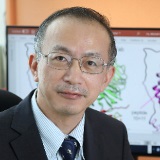
Dr. Ho is a Senior Investigator, the Deputy Chief of the Laboratory of Molecular Biology, the Head of the Antibody Therapy Section, and the Director of the Antibody Engineering Program at the National Cancer Institute (NCI), NIH. Dr. Ho received his PhD from the University of Illinois at Urbana-Champaign. He completed his postdoctoral fellowship in Dr. Ira Pastan's lab at the NIH. Dr. Ho is the founding Editor-in-Chief of Antibody Therapeutics (Oxford University Press) and serves on the Boards of Directors for the Antibody Society, the Chinese Antibody Society, and the Foundation for Advanced Education in the Sciences (FAES). Dr. Ho has garnered multiple accolades, including the Asian & Pacific Islander American Organization (APAO) Scientific Achievement Award, the Dr. Francisco S. Sy Award for Mentorship Excellence at HHS, the NIH Deputy Director for Intramural Research (DDIR) Innovation Award, and the NCI Director's Innovation Award. In 2023, he was honored with induction into the American Institute for Medical and Biological Engineering (AIMBE) College of Fellows, recognizing his outstanding contributions to the development of glypicans as cancer therapeutic targets and antibody engineering methodologies for cancer therapy.
Bjorn Hock, PhD, CDO, Tubulis GmbH

After obtaining his PhD in biochemistry at the Johann Wolfgang Goethe University in Frankfurt (Germany) Bjorn started a professional career at Merck KGaA where he held various positions in the field of Biotherapeutics discovery and development including “Global head, Protein engineering and Antibody technologies” and “Global head, ADC and targeted therapeutics”. In 2017, Bjorn joined Ferring Pharmaceuticals in St-Prex as VP, Biologics discovery and development. In this role, Bjorn implemented an infrastructure for Antibody and development. In addition, he serves as a member of the advisory board of Tubulis GmbH.
Rene Hoet, PhD, Professor, Chief Innovation Officer, FairJourney Biologics
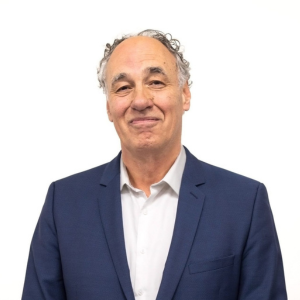
From April 2022, Prof. Rene Hoet is Chief Innovation Officer at FJB with the focus on implementation of new innovative antibody discovery and optimization technologies.
He obtained his PhD at the Un. Nijmegen, Netherlands on autoantibodies and performed his post-doctoral studies at the Un. Cambridge & MRC, UK.
Rene Hoet is also Professor at the Un. Maastricht, Netherlands. He contributed to over 40 scientific papers and is inventor on 20 patent.
Benjamin Hoffstrom, PhD, Assistant Adjunct Professor, Medicine, UCLA
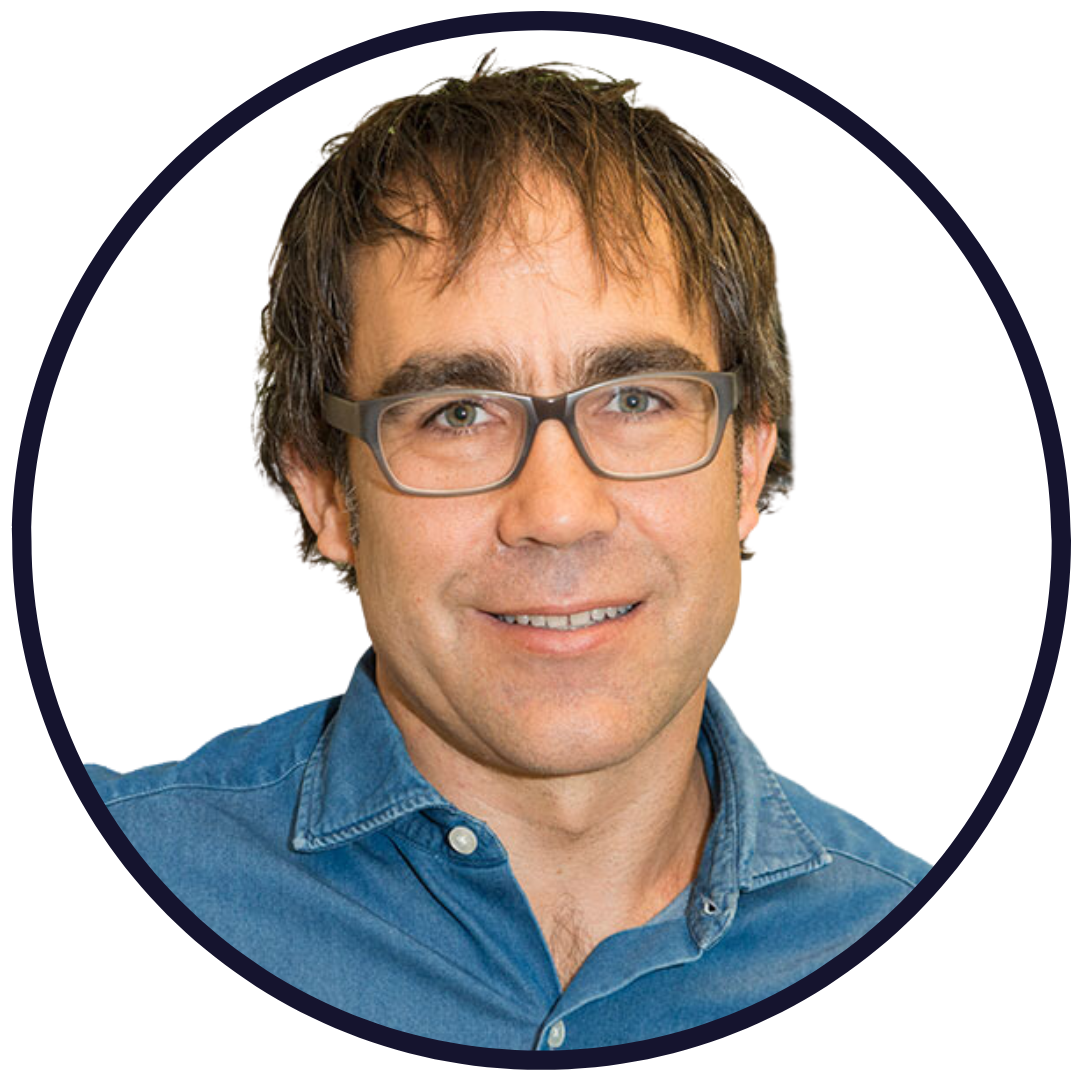
Dr. Ben Hoffstrom is an accomplished scientist with over 20 years of combined experience in academia and industry. He was the director of Antibody Technology at Fred Hutch for over 10 years, during which time he worked closely with academic and industrial clients on over 200 antibody discovery campaigns. In 2021, he was recruited by Dr. Dennis Slamon to join the Department of Medicine faculty at UCLA where he oversees antibody discovery for UCLA's Translational Oncology Research Laboratory (TORL).
Isidro Hotzel, PhD, Distinguished Scientist, Antibody Engineering, Genentech

Isidro Hotzel received his Ph.D. from Washington State University and joined Genentech in 2005. He is currently a Distinguished Scientist in the Department of Antibody Engineering. His research has covered novel technologies for therapeutic antibody discovery and optimization, with a focus on single-cell and repertoire deep sequencing technologies for antibody discovery and engineering.
Chloe Hsu, PhD, Co-Founder & CEO, Escalante Bio

Chloe has been building at the intersection of AI/ML and protein design since 2019. Together with Meta AI, she led a large-scale effort to generate the largest dataset of predicted protein structures at the time, resulting in a widely used open source model for structure-based protein design. Her earlier work also highlighted the importance of high-quality experimental data for improving protein fitness. She coordinated many protein engineering research collaborations across immunology, genome engineering, and synthetic biology during her PhD at UC Berkeley (co-advised by Jennifer Listgarten and Moritz Hardt). Prior to that, she developed some of the earliest deep learning language models for medical records at Google Brain.
Changyun (Eric) Hu, PhD, CSO & Co-Founder, Adept Therapeutics Inc.

Changyun (Eric) Hu is the CSO of Adept Therapeutics Inc, responsible for the strategic direction, vision and growth of the pipeline focusing on developing antibody-mediated immunotherapies for cancer patients. Changyun's effort has contributed to several patents and multiple IND filings and is known for his expertise in antibody drug discovery against multi-transmembrane targets such as GPCRs. He discovered an anti-CCR8 antagonist antibody that was licensed to Gilead Science Inc for clinical development. And he was one of the first few that discovered the regulatory role of B cells in autoimmune setting. He has established a track record in the scientific community with 20+ peer-reviewed highly-cited publications and presentations at national and international conferences. Changyun holds a PHD and is a seasoned drug hunter with extensive experience from target identification and validation, antibody discovery and optimization, to IND filing.
Possu Huang, PhD, Assistant Professor, Bioengineering, Stanford University

Dr. Possu Huang received his PhD from Caltech with the first demonstration of a computationally designed novel protein-protein interface. He subsequently conducted postdoctoral research at the University of Washington before starting his group at Stanford. His research focuses on advancing the understanding of proteins for the engineering of novel therapeutics and other protein-based nanotechnology. He has contributed to a large number of de novo designed proteins, most notably to the unlocking of the design principles behind the TIM barrel fold. His group uses computational modeling, structural biology and experimental library optimization to continue the expansion of protein-based molecular platforms, as well as creating new design tools with modern neural network architectures.
Michael Hudecek, MD, Professor, Cellular Immunotherapy of Malignant Diseases, University of Wuerzburg
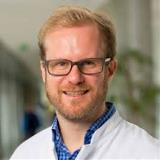
Univ. Prof. Dr. med. Michael Hudecek performed medical training at the University of Leipzig, Germany, where he also commenced his specialist training in hematology and oncology. In 2007, Michael joined the Fred Hutchinson Cancer Research Center in Seattle as a post-doctoral research fellow, where he trained in the laboratory of Prof. Stanley R. Riddell and worked on identifying and validating novel tumor antigens in hematologic malignancies, the design and functional optimization of chimeric antigen receptor (CAR) constructs, as well as defining optimal cellular compositions of CAR T-cell products. In 2012, Michael was recruited to the Universitatsklinikum Wurzburg, Germany, where he established a translational research program on CAR T-cell immunotherapy. At present, this program comprises physicians, scientists, doctoral students, master students and technicians in a multidisciplinary, international team that performs cutting-edge research with focus on novel transformative CAR technologies, and first-in-man clinical application of novel CAR-T products. Michael is an extraordinary member of the Bavarian Academy of Sciences, and recipient of the 2017 Artur Pappenheim Award of the German Society for Hematology and Medical Oncology.
Joanne Hulme, PhD, CSO, Radiant Biotherapeutics

Dr. Joanne Hulme currently serves as Chief Scientific Officer of Radiant Biotherapeutics, an innovative antibody platform company developing multi-valent and multi-specific biotherapeutics with broad transformative applications. Prior to Radiant Biotherapeutics, she was VP, Head of Research for Northern Biologics, where she developed first-in-class antibody therapeutics in cancer and fibrotic diseases. Prior to Northern, Dr. Hulme previously worked at Amgen, where her research resulted in multiple preclinical programs in autoimmune diseases and cancer. Dr. Hulme earned her Ph.D. in Pharmacology from the University of Leeds.
Nageatte Ibrahim, MD, Former, Vice President, Oncology & Global Clinical Development, MSD

Until recently, Nageatte Ibrahim was Vice President of Clinical Research at Merck and overseeing the Melanoma, Innovative Strategies, and GI Tumor teams in her capacity as Therapeutic Area Section Head as well as holds a leadership role in the Merck and Astra-Zeneca Alliance. Nageatte has held roles of increasing responsibility over the years at Merck and has a deep interest in advancing effective therapeutics for cancer patients and understanding biologic drivers for enriching responses. Her work and leadership in the clinical development program lead to the expansion of indications, notably, the initial full approval of Keytruda in advanced melanoma worldwide, the first approval for Keytruda in the adjuvant setting for resected stage III melanoma, moving in an earlier disease setting resected stage IIB and IIC melanoma, advanced Merkel Cell Carcinoma and a tumor-agnostic approval for patients with high tumor mutational burden (TMB-H) cancers, are a few of her accomplishments. In addition, Nageatte also leads the cross-functional integration team for the clinical development of Merck’s anti-CTLA-4 antibody, quavonlimab, and the anti-LAG3 antibody, favezelimab. Prior to joining Merck, Nageatte was a clinical director at GSK, where she participated in the full approval filings for dabrafenib and trametinib in metastatic melanoma. Nageatte did her hematology/oncology training at Tufts Medical Center in Boston with research work focused on melanoma and mutational drivers, was a clinical research fellow at Massachusetts General Hospital and then an attending physician at the Dana-Farber Cancer Institute in the Melanoma Center and Brigham and Women’s Hospital, with an appointment of Instructor of Medicine at Harvard Medical School. Nageatte is passionate about teaching and mentoring, and in particular, mentoring women in medicine and pharma. Outside of her dedicated career to clinical research, Nageatte enjoys traveling to new places and immersing herself in the local culture and cuisine, taking photos, spending time with family and friends, and gardening.
Justin Ishida, Scientist, Translational Sciences, Clinical Immunology and Gene Therapy, BioMarin Pharmaceutical Inc

Justin Ishida is a Scientist from BioMarin Pharmaceutical who has worked on AAV gene therapy research in the Vector Biology group from 2016-2022 pursuing strategies of vector production, characterization and optimization, and now in the Clinical Immunology group focused on understanding and mitigating immunogenicity risk of AAV gene therapy candidates moving into the clinic. Prior to BioMarin he worked at Lawrence Berkeley National Laboratory for 8 years with a collaborative team of scientists focused on researching the mechanics of DNA repair through structural biology and biochemical methodologies. Brilliantly insightful and collaborative mentors have been instrumental to his development as a Scientist, beginning during his undergraduate studies of Microbial Biology at UC Berkeley, then LBNL and now industry.
Jun Ishihara, PhD, Lecturer, Bioengineering, Imperial College London

Dr. Jun Ishihara works in the field of protein engineering, with research foci in cancer immunotherapy, autoimmunity, and regenerative medicine. Dr. Ishihara received his PhD in stem cell biology from the University of Tokyo. He then conducted postdoctoral training in the laboratory of Jeffrey Hubbell first at the Ecole Polytechnique Fe´de´rale de Lausanne (EPFL) in Switzerland from 2014 to 2016, and then at the University of Chicago from 2016 to 2020, when the laboratory relocated to the Pritzker School of Molecular Engineering. Dr. Ishihara has developed novel technologies in the field of immuno-engineering in order to improve current therapies and discover new drugs. He has developed novel approaches to cancer immunotherapy that achieve localised immune activation by targeting the tumour microenvironment. These methods make cancer immunotherapy safe and effective. Dr. Ishihara has also engineered treatments for autoimmune diseases such as rheumatoid arthritis and multiple sclerosis. In the field of regenerative medicine, he has developed novel approaches to efficiently deliver growth factors to the wound site to promote wound healing. Dr. Ishihara has co-authored 25 scientific papers and 16 patents, with publications in Nature Biomedical Engineering, Science Translational Medicine, Science Advances, Blood and Nature Communications. He is also a co-founder of Arrow Immune Inc., focusing on clinical translation of cancer immunotherapy techniques, HeioThera Inc., focusing on clinical translation of anti-inflammatory therapeutics, and ScienceLounge LLC., which runs a science bar in Tokyo for scientific outreach activities.
Andrew Isidoridy, PhD, Immunology Sales Specialist, ProImmune
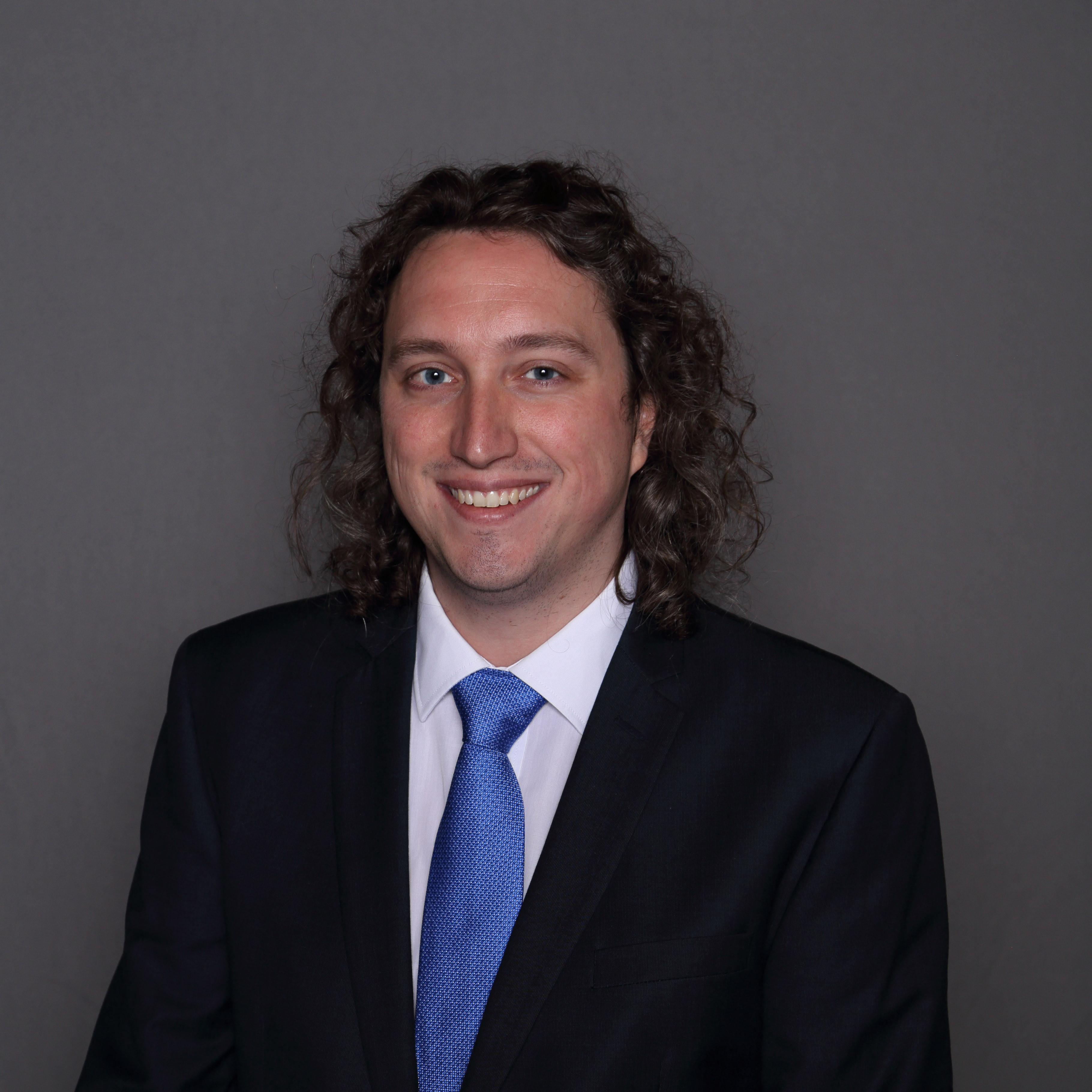
Andrew earned his PhD in molecular biology from the University at Albany under the direction of Professor Robert Osuna, identifying and characterizing post translational modifications of the transcription factor DksA in E. coli. He joined ProImmune in 2019 after completing his doctorate and currently works on providing innovative solutions for clients that deeply improve our understanding of both desired and unwanted immune responses.
Saeed Izadi, PhD, Scientist, Early-Stage Pharmaceutical Development, Genentech, Inc.

Saeed Izadi is a scientist in the Pharmaceutical Development department at Genentech. His current research is focused on developing/applying computational strategies and tools for predicting liabilities and biophysical properties in protein drugs. He uses a variety of computational techniques ranging from physics-based approaches (e.g. Molecular Dynamics, Quantum Mechanics) to statistics-based methods and Machine Learning. He interacts closely with method development groups to evaluate new tools and bring the best techniques to use in a variety of projects. He received his Ph.D. in Biomedical Engineering from Virginia Tech. He has a M.Sc. in Aerospace Engineering and a B.Sc. in Mechanical Engineering.
Verity Jackson, PhD, Principal Scientist, Maxion Therapeutics Ltd.

Verity has a background combining membrane protein structural biology, protein engineering, and cell biology of complex membrane proteins. She is a Principal Scientist at Maxion Therapeutics and is the project leader for Maxion's Lead Discovery programme.
Darshana Jani, PhD, Senior Director, Preclinical and Clinical Bioanalytical Sciences, Clinical Biomarkers, Moderna

Darshana Jani is Head of Global Bioanalytical Sciences at ModernaTx. Prior to that, she served as a Director at Agenus and Scientific Associate Director at Pfizer, Cambridge, MA, USA, where her role was to serve as scientific and technical lead for both CROs and internal teams for development, validation, and application of bioanalytical and biomarker assays to comply with scientific and regulatory requirements. She has over 25 years of experience in supporting preclinical to clinical studies holding positions with Sanofi, MedImmune, Biogen, and Pfizer. She has risen from the ranks, at the outset developing and applying bioanalytical methods, while assuming numerous responsibilities germane to regulatory compliance of the validation and application of group procedure. She has also guided bioanalytical lab groups held responsible for overseeing any and all phases of drug recovery and development; a task which incorporated product characterization, potency determination, immunogenicity testing, as well as surrogate biomarker assay development, validation, and sample testing. Lastly, she has published several recommendation white papers with industry, academic, and regulatory peers in the area of biomarkers, as well as immunogenicity.
Timothy Patrick Jenkins, PhD, Assistant Professor & Head, Data Science, DTU Bioengineering

Timothy Jenkins is an Assistant Professor and Head of Data Science at DTU Bioengineering. After completing his BSc at James Cook University in Australia, he conducted his PhD at the University of Cambridge, exploring next-generation sequencing approaches and the impact of parasites on the human gut microbiome. He subsequently joined DTU as an HC Orsted Postdoctoral Fellow and joined Professor Andreas Laustsen-Kiel’s efforts in developing next-generation antivenom therapeutics. Shortly after, he took on the position of Assistant Professor and started a junior research group, the Digital Biotechnology Lab. Here, he and his team focus on leveraging data science, machine learning, and high-throughout in vitro approaches to develop new approaches for target identification and therapeutic discovery with a particular focus on neglected diseases, such as snakebite envenoming. Tim is also the head of Data Science at DTU Bioengineering and was recently selected for the inaugural cohort of the young academy for technical sciences.
Philip R. Johnson, MD, CEO, Interius Biotherapeutics

Prior to assuming his current role at Interius, Phil was the founding CSO, President, and Interim CEO of Limelight Bio from 2016 - 2020. For the three preceding decades, he led large research enterprises at two of the world’s premier academic pediatric hospitals while receiving multiple national honors including election to the American Pediatric Society and being named a Fellow of the American Association for the Advancement of Science and a Fellow of the American Academy of Microbiology.
David Johnson, PhD, Founder and CEO, GigaMune

Dr. Johnson is an inventor, entrepreneur, and expert in genomics, with a track record of bringing new medical technologies to the clinic and the market. Dr. Johnson is Founder and CEO of GigaMune, which is developing novel technology for in vivo targeted gene delivery of T cell receptors (TCRs) and chimeric antigen receptors (CARs) to treat serious diseases, such as cancer and autoimmune diseases. Our vision is to bring gene therapy into mainstream medicine through in vivo delivery of any gene to any cell in any tissue location. Our initial goal is to challenge conventional ex vivo cell therapy manufacturing by reducing costs and improving outcomes. Previously, Dr. Johnson brought GigaGen's massively diverse recombinant polyclonal antibody drugs from concept to clinic. Dr. Johnson led negotiation and sale of the company to Grifols for a company valuation of $142.9 million (with potential for further product-related earnout) in March 2021. Also, Dr. Johnson was among the founding members and COO of Natera. Prior to Natera, he was the ENCODE Project Director at the Stanford Human Genome Center. Dr. Johnson holds a BS in Biology from Duke University, a PhD in Genetics from Stanford University, and an MBA from the Haas School of Business at the University of California, Berkeley.
Kyle Jones, Scientist III, Manufacturing & Analytical Development, Shattuck Labs Inc.

Kyle Jones is a Scientist in the Analytical Development group at Shattuck Labs where they work to bring novel, dual function fusion proteins to the clinic. He joined Shattuck in 2021 and is the analytical lead for several molecules in discovery and pre-clinical development. Kyle works to develop the analytical platform used to characterize molecules on their journey to cGMP biomanufacturing. Kyle earned his master's degree from North Carolina State University in Microbial Biotechnology.
Tongzhong Ju, MD, PhD, Principal Investigator, FDA CDER

Dr. Tongzhong Ju received his Ph.D. in Biochemistry from Fudan University Shanghai Medical School and an M.D. from Qingdao Medical College, China. After post-doctoral training, he worked as an Assistant Professor of Research in the Department of Biochemistry and Molecular Biology at the University of Oklahoma Health Sciences Center. Thereafter, Dr. Ju was an Assistant Professor and Associate Professor in the Department of Biochemistry at Emory University School of Medicine, where he developed an independent research program in glycobiology. His major contribution to the field includes purification and cloning of Core 1 ß3Galactosyltransferase (C1GalT1), identification of its specific molecular chaperone Cosmc (C1GalT1C1), understanding of O-glycosylation regulation and its implication in human diseases. Dr. Ju joined FDA in January of 2017, where his lab focuses on the OBP glycobiology research program on development of novel technologies for characterization/analysis of glycans and investigating glycosylation as a critical quality attribute for glycoprotein drugs.
Alicia Kaestli, PhD, Senior Associate, Flagship Pioneering

Alicia joined Flagship Pioneering in 2021 and works on venture creation at the intersection of machine learning and biology. In her role, she collaborates with entrepreneurial scientists to explore, establish, and scale new first-in-class biotechnology platform companies. Before joining Flagship, Alicia was a Senior Data Scientist at Amgen. She led teams building machine learning models to improve patient outcomes using a wide variety of datasets, such as clinical trial results and electronic medical records. While at Amgen, Alicia worked with Kari Stefansson at deCODE Genetics in Iceland to develop algorithms that stratify patient risk using multiomic datasets. Alicia was part of the Amgen Ventures Operating Team, where she co-led investments and partnerships that deepened Amgen’s drug discovery and biomarker capabilities. Before Amgen, Alicia worked as part of the Novartis Strategic Venture Capital team to evaluate data-rich biotech startups. Alicia earned her PhD and M.Sc. at ETH Zurich in Biotechnology as an Excellence Scholar. During graduate school, she collaborated closely with clinicians to design personalized microfluidics-based diagnostic devices for drug repurposing studies on subtypes of acute lymphoblastic leukemia and developed software to measure cardiac arrhythmia on high-density microelectrode arrays. She holds a B.Sc. in Biological Engineering from MIT.
Lisa Kalfhues, PhD, Scientific Project Manager, Glycotype GmbH

Lisa Kalfhues is a scientific project manager at the Berlin-located biotech company Glycotope. She is responsible for advancing the ongoing early drug discovery projects for therapeutic antibody candidates. During her academic education, she could acquire a strong background in molecular biology and physiology. She did her PhD in preclinical research focusing on molecular mechanisms in cardiovascular pathologies at the University of Dusseldorf, Germany and the University of Virginia, USA.
Vishal Kamat, PhD, Senior Director, Protein Sciences, Ampersand Biomedicines

Vishal (Vish) Kamat is an innovative and collaborative leader with 17 years of experience in the field of biotherapeutics and biophysical characterization of antibodies and proteins. He has supported the discovery and development of antibodies for 150+ targets which yielded 20 clinical drug candidates and 3 market-approved drugs - DUPIXENT, LIBTAYO, and EVKEEZA. He also has extensive experience in high throughput screening of antibodies using diverse platforms such as SPR, BLI, KinExA, Gyrolab, MSD and Luminex. His scientific excellence is evident by multiple peer-reviewed publications in high impact journals, patent approvals and IND reports. After a 12-year career at Regeneron Pharmaceuticals where he held positions of increasing responsibility from postdoctoral candidate to Sr. Staff Scientist, he worked as a Director of Antibody Characterization at Twist Biopharma and is currently working as a Senior Director of Protein Sciences at Ampersand Biomedicine. Vishal holds a PhD in Biomedical Engineering from Drexel University and BS in Electronics Engineering from University of Mumbai.
Alexandros Karyolaimos, PhD, Researcher, Department of Biochemistry & Biophysics, Stockholm University

Alexandros is a researcher working at the department of Biochemistry and Biophysics, Stockholm University. Since his Ph.D. and through-out his post-doc, Alexandros has focused on answering fundamental questions regarding protein quality control in the cell envelope of E. coli and how to use this information to enhance recombinant protein production. Part of his work is directed to identifying and solving the bottlenecks hampering protein production in E. coli and has resulted in the development of an easy-to-use and accessible platform to customize E. coli for protein production. Currently, the stage is being set to commercialize the platform.
Zvi Kelman, PhD, Director, Biomolecular Labeling Laboratory (BL2), National Institute of Standards and Technology (NIST) and the Institute for Bioscience and Biotechnology Research (IBBR)

Zvi Kelman is the Director of the Biomolecular Labeling Laboratory (BL2) at the National Institute of Standards and Technology (NIST) and the Institute for Bioscience and Biotechnology Research (IBBR). He earned a B.Sc. in Agriculture from the Hebrew University of Jerusalem and a M.Sc. in Cell Biology from the Weizmann Institute of Science. After receiving a Ph.D. in Molecular Biology from Cornell University School of Medicine, he was a Helen Hay Whitney Foundation Post-Doctoral Fellow in the laboratories of Thomas Kelly (Johns Hopkins University) and Jerard Hurwitz (Memorial Sloan-Kettering Cancer Center). He was a Life Technologies Professor at the University of Maryland Biotechnology Institute, and a Professor in the Department of Cell Biology and Molecular Genetics at the University of Maryland, College Park. In 2011 he moved to NIST.
Saad Kenderian, PhD, Assistant Professor, Medicine and Oncology, Mayo Clinic College of Medicine
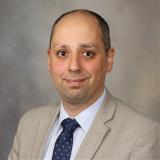
Dr. Kenderian is a consultant in hematology at the Mayo Clinic Rochester, with joint appointments in the Department of Immunology and Department of Molecular Medicine. He holds the academic rank of Assistant Professor of Medicine, Oncology, and Immunology in Mayo Clinic College of Medicine. As a physician-scientist, he directs a federally funded translational laboratory program focused on T cell biology, cellular engineering, and chimeric antigen receptor T (CART) cell therapy. In this context, he collaborates with multiple pharmaceutical and biotech companies. Since 2019, three clinical trials have been translated from his laboratory, two of them are multi-center trials. He has authored more than 90 manuscripts and book chapters. He is an inventor on multiple patent applications and is the Principal Investigator on 5 active clinical trials.
Pranav M. Khade, PhD, Postdoctoral Fellow, Prescient Design, Genentech

Pranav M. Khade is working as a Postdoctoral Fellow at Prescient Design, a Genentech accelerator. Pranav has a PhD in Computational Biology from Iowa State University, where he investigated the role of protein packing in protein dynamics using methods he developed. Pranav uses his protein structure and dynamics expertise to develop machine-learning models with meaningful biological priors to predict antibody and other therapeutic protein properties, including developability.
Jahan S. Khalili, PhD, Vice President, Immuno-Oncology, SystImmune Inc.

Jahan is a Vice President of Immuno-Oncology at SystImmune in Redmond, Washington. He received his PhD in Immunology from UT-MD Anderson Cancer Center. At MD Anderson, he studied small molecule and IO agent activity in the tumor microenvironment's cellular network in addition to contributing to the understanding of several therapeutic approaches in oncology. In his role at SystImmune, Jahan contributes to discovery, development, and the translational understanding of an oncology pipeline of antibody-based therapeutics including bispecifics, immune cell engagers, and antibody-drug conjugates.
Zahid Khan, MS, Biopharmaceuticals Investigator, R&D Analytical Development, GSK

Zahid Khan is a Scientific Investigator working in Analytical R&D at GSK, located in the greater Philadelphia area. With nine years of experience in supporting the analytical development of pharmaceuticals, Zahid has been involved in the higher-order structure characterization of biopharmaceuticals, forced degradation studies to evaluate structure-function relationships, and support comparability for monoclonal antibodies and other therapeutic proteins. He holds a master’s degree in pharmaceutical analysis from Campbell University, NC, and a bachelor’s degree in pharmacy from India.
Betty YS Kim, MD, PhD, Professor, Physician Scientist, Department of Neurosurgery, UT - MD Anderson Cancer Center

Dr. Kim is a Professor of Neurosurgery at The University of Texas MD Anderson Cancer Center. After completing her medical degree from McMaster University, she completed her PhD in biomaterials and biomedical engineering and clinical residency in neurosurgery from the University of Toronto, and clinical fellowships in skull-base surgery from MD Anderson Cancer Center. In 2012, she was named Fellow of The Royal College of Physicians of Canada. Dr. Kim’s clinical practice focuses on the management of primary and secondary central nervous system tumors. As a physician-scientist, she uses a multidisciplinary approach to develop novel and effective therapies that boost the functions of innate immune system to eliminate diseases such as cancer. Applying state-of-the-art tools in material engineering, optical imaging, and protein engineering, Dr. Kim’s lab is studying how materials can be designed to facilitate the recognition and clearance of diseased cells by the body’s immune system as well as novel drug delivery platforms. Dr. Kim’s research has been funded by multiple R01 grants from the National Institutes of Health (NIH) and the Department of Defense. Her studies have been published in Nature, Nature Nanotechnology, Nature Biomedical Engineering, Nature Communications, and the New England Journal of Medicine, among others. Dr. Kim is an elected fellow of the American Institute for Medical and Biological Engineering (AIMBE) and the American Society for Clinical Investigation (ASCI).
Kei Kishimoto, PhD, Consultant, Former CSO, Selecta Biosciences, Inc.

Dr. Kishimoto is the former Chief Scientific Officer of Selecta Biosciences, a biotechnology company developing tolerogenic ImmTOR technology to mitigate unwanted immune responses. Prior to joining Selecta, Dr. Kishimoto was Vice President of Research at Momenta Pharmaceuticals where he led multidisciplinary teams in inflammation, oncology, and cardiovascular disease. Previously he was Senior Director of Inflammation Research at Millennium Pharmaceuticals, where he provided the scientific leadership for four programs in clinical development, and an Associate Director of Immunology at Boehringer Ingelheim. Dr. Kishimoto received his doctoral degree in Immunology from Harvard University and his post-doctoral training at Stanford University. He is currently an independent consultant.
Stefan Kittler, PhD, Postdoc Researcher, Institute of Chemical Environmental & Biological, TU Wien

Stefan Kittler attained his bachelor's and master's degree at TU Wien in Technical Chemistry, focussing on biotechnology and bioanalytics between 2014 to 2019. Subsequently, I successfully earned my PhD within the Integrated Bioprocess Development Group (IBD Group) at TU Wien, focussing on exploring diverse bioprocess modes with Escherichia coli. Following the completion of his doctoral studies in November 2022, he continued his work as a postdoctoral researcher within the research group of Professor Oliver Spadiut. Currently he is focusing on process development and optimization involving various microbial hosts, as well as the conjugation and PEGylation of recombinant proteins to increase functionality and stability.
Christian Klein, PhD, Head, Oncology Programs and Department Head, Cancer Immunotherapy Discovery, Roche Innovation Center Zurich, Roche Pharma Research & Early Development, pRED
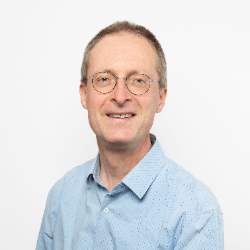
Christian Klein, Distinguished Scientist, is Head of Oncology Programs and Department Head Cancer Immunotherapy Discovery 3 at the Roche Innovation Center Zurich (Roche Pharma Research & Early Development, pRED). Since 06/2019 he also acts as Site Head of RICZ. He specialized in the discovery, engineering, validation and preclinical development of therapeutic (bispecific) antibodies for cancer immunotherapy. During his 18-year tenure at Roche he has made major contributions to the preclinical development and approvals of GAZYVA(RO) (obinutuzumab, GA101), and to the preclinical development of 19 bispecific antibodies, immunocytokines and antibody fusion proteins entering clinical trials. He led research teams developing Roche’s novel bispecific antibody technologies, e.g., the CrossMAb technology and the immunocytokine and T cell bispecific antibody platforms. He obtained his diploma in biochemistry from University Tubingen and his doctorate in biochemistry from Technical University Munich. In 2017 he completed his habilitation in Biochemistry at the Ludwig-Maximilians University (LMU) in Munich, and since then is an external lecturer there.
Michael Klichinsky, PharmD, PhD, Co-Founder & Vice President, Discovery, Carisma Therapeutics
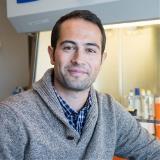
Michael Klichinsky obtained his Ph.D. while training with Carl June and Saar Gill at the Center for Cellular Immunotherapies at the University of Pennsylvania. While at Penn, Michael invented CAR macrophages and co-founded Carisma Therapeutics with Saar Gill. Currently, Michael is the Vice President of Discovery at Carisma Therapeutics, a biotech company developing engineered macrophage immunotherapies.
Sebastian Klobuch, Medical Oncologist, Netherlands Cancer Institute

Sebastian Klobuch is a Hematologist and Oncologist by training. Already during his thesis he was working on the use of T cell receptors for adoptive T cell therapy. Sebastian is currently working as a Medical Oncologist at the Netherlands Cancer Institute to develop adoptive cellular therapies for patients with solid tumors.
Serm Kulvatunyou, PhD, Computer Engineer, Process Engineering, National Institute of Standards and Technology (NIST)

Dr. Kulvatunyou works across industry sectors to advance the state-of-arts for standard-based data and systems integration. He recently started working with the biopharmaceutical industry to develop its manufacturing ontology standard within the NIIMBL Big Data program. Dr. Kulvatunyou co-founded the Industrial Ontology Foundries (IOF). He also leads working groups in the OAGi consortium to advance the data exchange standard development and implementation practices. He has served as an advisory board member in several international research projects.
Klaudia Kuranda, PhD, Head of Immunology, Spark Therapeutics, Inc.

Klaudia Kuranda is the Head of Immunology at Spark Therapeutics, part of the Roche Group, an industry leader in gene therapy in Philadelphia, Pennsylvania. Klaudia leads efforts focused on the AAV immunogenicity risk assessment for programs spanning Liver, CNS, and Ocular therapeutic areas, develops strategies to modulate vector immunogenicity using preclinical models and designs novel gene therapy approaches for immune-related disease. Klaudia has been building the immunology capabilities at Spark from the ground up since March 2018. Before joining Spark, Klaudia worked in AAV Gene Therapy Laboratory led by Federico Mingozzi in Paris, France, where she studied immune responses to investigational gene therapy products. In that time, Klaudia has worked closely with gene therapy companies to determine tailored strategies for immunomonitoring in AAV clinical trials. Klaudia Kuranda holds an engineer’s degree in Biotechnology from the Warsaw University of Life Sciences (SGGW) in Poland and a Ph.D. in Microbiology from the National Institute of Applied Sciences (INSA) in France. She is also an active co-leader of ARDAT consortium of 34 international partners from academia, industry, and small/medium enterprises with the aim to advance our knowledge in the field of viral gene/cell therapy and accelerate the development of new treatments for rare diseases.
Vinodh B. Kurella, PhD, Biotherapeutic Computational Modeler, Takeda Pharmaceuticals, Inc.

Vinodh Kurella is a Senior Scientist (Biologics computational modeler) in Biotherapeutic Engineering Group (BE) within Global Biologics at Takeda (Cambridge, USA). Experienced in structure-based antibody/protein design and optimization. Previously had range experiences at various biotech companies in different modalities such as gene therapy, biologics, and CAR T designs. Post-doctoral training at Harvard Medical School/Dana Farber in Dr. Wayne Marasco laboratory in antibody engineering and graduate training from Louisiana State University (LSU-HSC) in the field of protein X-ray crystallography in David Worthylake laboratory.
Samuel Lai, PhD, Professor, Pharmacoengineering & Molecular Pharmaceutics, University of North Carolina at Chapel Hill

Research in the Lai Lab is at the interface of mucus, immunology, nanotechnology, biomaterials, biophysics, bioengineering, and modeling, with active work in five primary areas: (1) antibody engineering for mucosal applications; (2) elucidating adaptive immune response (i.e. induction of antibodies) against nanomaterials; (3) engineering of bispecific antibodies for immunomodulation of the tumor microenvironment; (4) targeted editing of immune cells; and (5) phage engineering for gene therapy of the microbiome. Lai’s previous research focused on nanoparticle-based delivery of bioactive molecules to mucosal tissues. He helped pioneer the development of mucus-penetrating particle technology, a breakthrough that formed the basis of Kala Pharmaceuticals, launched in 2009. Kala completed its IPO in 2017, and has two FDA-approved drugs based on the technology. His prior inventions have also been licensed by Graybug Vision, which completed its IPO in 2020 and is in late stage clinical development. Since moving to UNC, he has established a rigorous research program at the interface of engineering, immunology, biophysics, and biomaterials. His lab has spun out a number of startups. His pioneering work on muco-trapping antibodies led to the formation of Mucommune, LLC, a startup focused on harnessing antibody-mucin interactions for female reproductive health, and Inhalon Biopharma, a clinical stage company focused on treating acute respiratory infections. He has received numerous prestigious awards for his research, including the NSF CAREER Award and the Packard Fellowship in Science and Engineering.
John M. Lambert, PhD, Consultant

Dr. Lambert graduated from Christ’s College, University of Cambridge (England, UK), with a degree in Natural Sciences in 1972. He then went on to earn a Ph.D. in Biochemistry (1976) from the University of Cambridge, working on enzyme structures under the supervision of Professor Richard N. Perham. Dr Lambert’s postdoctoral training was at the University of California, Davis, working on ribosome structure in the laboratory of Dr Robert R. Traut (1976-1980), and at the University of Glasgow, Scotland working on the arom multienzyme complex in the laboratory of Dr John R. Coggins (1980-1982). In 1982, Dr. Lambert joined the Dana-Farber Cancer Institute, Harvard Medical School, working on the ImmunoGen-funded programs to develop antibody-drug conjugates (ADCs) and immunotoxins as anti-cancer therapeutics. Dr. Lambert joined ImmunoGen in 1987 when the company established independent research laboratories in Cambridge, Massachusetts. After working in a variety of roles at the company, Dr. Lambert served as Chief Scientific Officer from 2008 until 2015. In 2016, he became a Distinguished Research Fellow at the company until his retirement at the end of 2017. He served on the Executive Committee of the company as Executive Vice President, Research, from 2008 until 2016, followed by a year (2017) on the Executive Committee in an Emeritus capacity. During Dr Lambert’s tenure in leadership roles at ImmunoGen, the company invented the ADC technology that resulted in the Genentech/Roche drug, Kadcyla® (approved in 2013 for treating HER2+ breast cancer), as well as numerous other ADCs taken into clinical development. One of these is ImmunoGen’s promising drug candidate, mirvetuximab soravtansine, an ADC currently in a phase 3 trial for the treatment of platinum-resistant ovarian cancer. Dr Lambert is the author/co-author of over 120 peer-reviewed scientific publications. In 2016, Dr Lambert was elected as a Fellow of the American Institute for Medical and Biological Engineering (AIMBE). In 2018, he was appointed as an Honorary Professor of Queen’s University, Belfast, Northern Ireland, UK.
David Lansky, PhD, President, Precision Bioassay, Inc.

David has been practicing statistics on bioassays (and other non-clinical applications in Pharma) for 35 years. This includes Searle/Monsanto/Pharmacia (10 years) and as the owner of Precision Bioassay, Inc. (since 2002). Most of his bioassay experience involves helping teams improve and validate cell-based bioassays. His experience includes some early (late 1990’s) success as part of a team that used lab automation for a series of cell-based bioassays. He has been and is still an active participant in the work to revise the USP bioassay chapters. His education includes a year of Electrical and Computer Engineering (University of Michigan), a BS in Botany (San Francisco State), an MS in Entomology (Cornell) and finally both an MS and Ph.D. in Biometry (both Cornell).
Sojeong Lee, Ph.D, Lead Scientist, Associate Director of Cell Line Development, Cell Line Development, Samsung Biologics
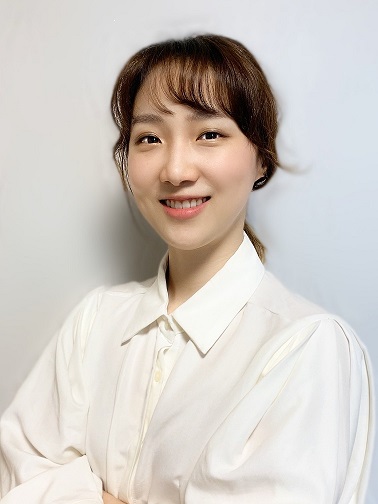
Sojeong Lee is the lead scientist of the Cell Line Development group at Samsung Biologics. With a Ph.D. in mammalian cell line engineering and 10+ years of biologics process development experience, she specializes in cell line development and upstream process manufacturing. Since joining Samsung Biologics in 2020, she has led her group in successfully developing over 70 projects, including mAbs and complex biologics. Her expertise also extends to toxicological material manufacturing and technology transfer.
Lori Lennon, Founder & CEO, Thinkubator Media

Lori Lennon is the founder and CEO of Thinkubator Media, an organization focused on elevating the profiles of women in science. Thinkubator Media is dedicated to having the diverse voices of women heard inside and outside of their STEMM fields. Lori and her team work with women in academia and industry to raise their profiles through education, training, and community to ultimately help them gain the notoriety needed for funding, support, and advancing their research. This curated approach was developed by listening to the needs expressed by women across many STEMM disciplines. Prior to starting her own company, Lori served as the Director of Communications for the College of Science at Northeastern University. Her experience as a communicator has afforded her the opportunity to work with leading researchers who are tackling some of the biggest and most important issues of our time, such as climate change, renewable energy, and drug discovery. Lori’s work spanned across many communication disciplines while at Northeastern, including strategic planning, messaging, public relations, editorial writing, digital marketing and communications, content development, marketing and communications for recruitment, and email marketing strategies and implementation. At Northeastern, Lori was a member of several communications groups, a member of the College of Science Diversity and Inclusion Committee, and an advisor for the student-run magazine, NU SCI. Prior to her work in science communications, Lori spent several years working in television news, first at New England Cable News, then at WBZ-TV Boston. At a time when news websites were uncharted territory for news organizations, Lori joined a team that helped revolutionize the way users consume news-breaking stories, producing exclusive content, and developing interactive opportunities to boost a reader’s engagement. During her tenure at WBZ-TV, the website earned the Edward R. Murrow Award for Best Broadcast Affiliated website for a large market in 2005 and 2007, and the Associated Press Award for Best TV/Media website in Massachusetts and Rhode Island in 2006, 2007, and 2008. Lori has helped cover elections, Super Bowls, major local news events, and our beloved Boston Marathon. Lori currently lives with her 12-year-old daughter in Sharon, Massachusetts, where they spend a lot of time walking arm-in-arm, eating fun foods, and contemplating the complexities of life.
Scott A. Lesley, PhD, CSO, R&D, InduPro Inc.

Scott Lesley is InduPro's Chief Scientific Officer leading all platform and drug discovery functions at the Company. Prior to joining InduPro, Scott was Vice President of Discovery Biologics at Merck and was responsible for a broad preclinical pipeline of molecules across all therapeutic areas within Merck. This included diverse modalities such as multifunctional antibodies and engineered proteins, ADCs, oncolytic viruses and cell therapies. Prior to his role at Merck, Scott was at Novartis. There, he established research and technology platforms in biotherapeutics, protein engineering, protein structure and function, and high-throughput technologies. In his role as the Executive Director of Biotherapeutics and Biotechnology he oversaw scientists and engineers responsible for biotherapeutics discovery and optimization, structural biology, HTS, functional genomics, automation and engineering. Scott also maintained a faculty appointment at The Scripps Research Institute from 2005-2016 and led an independent research lab as Co-PI of the Joint Center for Structural Genomics (JCSG) studying protein structure and function with an emphasis on host/microbe interactions. The JCSG was responsible for over 1600 novel protein structures. He has over 200 publications to date and has contributed to novel therapeutic targets, therapeutic modalities, small molecule and biotherapeutic clinical candidates and registered drugs, as well as developing platform technologies in HTS and other automation for drug discovery.
Bowen Li, PhD, Assistant Professor, Pharmaceutical Sciences, University of Toronto

Dr. Bowen Li is a tenure-stream Assistant Professor in the Leslie Dan Faculty of Pharmacy at the University of Toronto and is a nominee for Canada Research Chair in RNA Vaccines and Therapeutics. He earned his PhD in Bioengineering from the University of Washington, Seattle, and completed a Postdoc Fellowship in the Professors Daniel Anderson and Bob Langer labs at MIT. He has published nearly 40 peer-reviewed papers on Nat. Biotech., Nat. Med., Nat. Comm., Sci. Adv., Adv. Mater., Angew. Chem. Int. Ed., ACS Nano, Nano Lett. etc., which have been cited over 1900 times with H-index 25. Since starting his independent lab in 2022, he has received the Gairdner Early Career Investigator Award, the J. P. Bickell Foundation Medical Research Award, the Connaught New Researcher Award, and the UofT New Initiative and Innovation Award.
Yinyin Li, PhD, Principal Scientist, Biochemical & Cellular Pharmacology, Genentech Inc

My name is Yinyin Li, principal scientist from Genentech, department of Biochemical and Cellular Pharmacology. I gained my PhD from Texas A&M University and pursued my postdoc training at Stanford University, specializing in immunology and biology. Currently, my work focus on the large molecule drug discovery and immunogenicity risk assessment for biotherapeutics.
Hengtai Liew, Senior Protein Scientist, GenScript
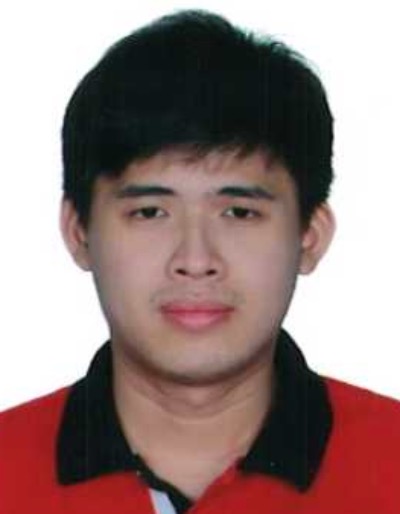
Liew Heng Tai is a Senior Scientist from GenScript with a passion for advancing antibody production knowledge and procedures that meet industrial standards. He specializes in tackling challenging projects by leveraging his expertise to overcome obstacles in the production of mAb, bsAb, and other difficult-to-express proteins. Apart from providing technical solutions to the production teams, he also provides guidance with strong troubleshooting skills on difficult antibody projects.
Maria Antonietta Lillo, PhD, Scientist, Los Alamos National Lab

Antonietta M. (Mietta) Lillo received her PhD in biochemist at Brown University, was a post-doc at The Scripps Research Institute, and is currently a scientist at the Los Alamos National Laboratory. She is an expert in display technologies, and selection of biological ligands (peptides, antibodies, polymers) from phage and yeast display libraries. Highlights of Mietta’s work include selection of: peptides and/or antibodies capable of distinguishing metastatic from non-metastatic cancer cells and amino acid-bound from unbound periplasmic binding protein (PBP); polymers capable of elicitation of stem cell differentiation; and antibodies recognizing DNA modifications. Mietta has contributed to advancing the field of antibody-based diagnostics and display technology, by developing antibody-phage complexes for high sensitivity one-step immunoassays, establishing methods for efficient selection of antibody pairs, and enabling a multidisciplinary capability for development of radioimmunotherapeutics. Mietta has recently developed anti-Y. pestis and anti-SARS CoV 2 antibody cocktails with diagnostic and therapeutic potential.
David R. Liu, PhD, Richard Merkin Professor and Director, Merkin Institute of Transformative Technologies in Healthcare; Core Institute Member and Vice-Chair of the Faculty, Broad Institute; Director, Chemical Biology and Therapeutic Sciences Program; Investigator, Howard Hughes Medical Institute; Thomas Dudley Cabot Professor of the Natural Sciences and Professor of Chemistry and Chemical Biology, Harvard University

David R. Liu is the Richard Merkin Professor and director of the Merkin Institute of Transformative Technologies in Healthcare, vice-chair of the faculty at the Broad Institute of MIT and Harvard, the Thomas Dudley Cabot Professor of the Natural Sciences at Harvard University, and a Howard Hughes Medical Institute (HHMI) investigator. Liu’s research integrates chemistry and evolution to illuminate biology and enable next-generation therapeutics. His major research interests include the engineering, evolution, and in vivo delivery of genome editing proteins such as base editors to study and treat genetic diseases; the evolution of proteins with novel therapeutic potential using phage-assisted continuous evolution (PACE); and the discovery of bioactive synthetic small molecules and synthetic polymers using DNA-templated organic synthesis and DNA-encoded libraries. Base editing-the first general method to perform precision gene editing without double-stranded breaks, and a Science 2017 Breakthrough of the Year finalist-as well as prime editing, PACE, and DNA-templated synthesis are four examples of technologies pioneered in his laboratory. These technologies are used by thousands of laboratories around the world and have enabled the study and potential treatment of many genetic diseases.
Dan (Cassie) Liu, Principal Statistician, Bristol Myers Squibb

Cassie Liu is a principal statistician in Biologics Development Department at Bristol Myers Squibb. Over the 7+ years with BMS, she has provided statistical supports in various CMC projects, including stability analysis and specification assessment for IND/BLA filings, statistical and ML modeling, risk assessment, bioassay analysis, design of experiment, analytical method performance monitoring, dataflow integration, and automation, etc. She received a master’s degree in statistics from University of Connecticut and bachelor's degree in statistics from Nankai University in China. Prior to joining BMS, she was a statistician in a health-related research lab at Yale University.
Shu-Hui Liu, PhD, CSO, Multitude Therapeutics

20 years of biotech/pharmaceutical industry experience focusing on developing biologics-based oncology drug development. Prior to joining Multitude Therapeutics she was the director of the Tumor Biology group at Pfizer. She has brought multiple discovery programs to the clinic and is the author/coauthor of over 30 publications and numerous patents.
Pallavi Lonkar, PhD, Vice President, Bioanalytical, Biomarkers, and DMPK, PepGen

Pallavi Lonkar is currently VP of Bioanalytical, Biomarkers, and DMPK at Pepgen. She has more than 15 years of experience in Bioanalytical, DMPK, and translational research to support nonclinical and clinical activities across a range of therapeutic areas and modalities which includes small molecules, oligo therapeutics, and oligo conjugates. Prior to joining PepGen, she worked at multiple biotechs including Korro Bio, Wave life sciences, Catabasis, and Alnylam Pharmaceuticals. Pallavi has co-authored more than 15 peer-reviewed publications and reviews and has given numerous invited seminars at scientific meetings.
Robert J. Lutz, PhD, CSO, Iksuda Therapeutics

Bob has been an independent consultant in the biotech/pharma industry since 2015 and has worked with multiple clients providing strategic, tactical and operational input for their research and development efforts. Prior to initiating his consulting practice, Bob held various R&D roles over a 23 year span at ImmunoGen, Inc. In his most recent position at ImmunoGen, Bob was Vice President of Translational Research and Development with responsibility for all early stage antibody drug conjugate (ADC) development programs from lead identification through phase 2. He also served as ImmunoGen’s research lead on Genentech’s FDA-approved trastuzumab emtansine (T-DM1) program. Before the ADC research position, Bob was part of ImmunoGen’s Apoptosis Technology Inc subsidiary where he led the research collaboration leading to the discovery of the BH3 domain of the BCl-2 family of death regulatory proteins. Before ImmunoGen, Bob was a research and postdoctoral fellow at the Eleanor Roosevelt Institute in Colorado. He earned his doctoral degree in Biochemistry at Brandeis University.
Matthew W. Lux, Research Biologist, BioSciences, Edgewood Chemical Biological Center
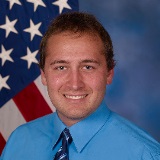
Matthew Lux, PhD has served as Research Biologist for the U.S. Army Combat Capabilities Development Command Chemical and Biological Center (DEVCOM CBC) since 2013. He has degrees in computational biology and electrical engineering from Virginia Tech. In his current role, Dr. Lux serves as Principle Investigator for a range of synthetic biology projects, mostly related to cell-free systems. Specific emphasis is placed on the use of cell-free systems for sensing applications, especially in resource-poor environments. Efforts are focused on deployment of cell-free systems into paper and other substrates, rapid sensor development for emerging threats, and reliability and reproducibility issues with such systems. Other research areas include DNA as an information molecule and phage engineering, such as barcoding of microbes, DNA as a chemical taggant for item verification, and phage host-target engineering.
Leyuan Ma, PhD, Assistant Professor, Pathology & Lab Medicine, University of Pennsylvania

Dr. Ma obtained his PhD degree in biomedical sciences from Dr. Michael Green’s lab at the University of Massachusetts Medical School in 2016. Following graduation, Dr. Ma continued his postdoctoral fellowship in Immunotherapy and Immune Engineering at the Massachusetts Institute of Technology and Howard Hughes Medical Institute under the guidance of Dr. Darrell Irvine. During his fellowship, Dr. Ma developed a synthetic booster vaccine to enhance the Chimeric Antigen Receptor T cell therapy for solid tumors, and he was supported by an American Cancer Society postdoctoral fellowship from 2019-2021. In 2022, Dr. Ma was appointed as an assistant professor in the Department of Pathology and Laboratory Medicine at the University of Pennsylvania. Dr. Ma is also a member of the Raymond G. Perelman Center for Cellular and Molecular Therapeutics (CCMT) at the Children's Hospital of Philadelphia. Dr. Ma was awarded the NIAID New Innovators Award (DP2), W.W. Smith Charitable Trust award, Melanoma Research Alliance Young Investigator Award, Ivy Foundation Translational Adult Glioma Award, and Sontag Distinguished Scientist Award.
Robert Mabry, PhD, CSO, Orna Therapeutics

Robert Mabry is currently the CSO at Orna Therapeutics. Previously, he served as Global Head of Biologics at Takeda Pharmaceuticals where he led the discovery and optimization of biologic/cell therapy candidates across four therapeutic areas and provided strategic support in overseeing their scientific operations. Prior to Takeda, Dr. Mabry served as Vice President, Protein Sciences for Cogen Therapeutics, now Repertoire Immune Medicines. During his time as head of department, he was responsible for protein engineering, antibody technology, protein production and analytics. Dr. Mabry has also held positions at Jounce Therapeutics, Adimab, ZymoGenetics, and ImClone Systems. He received his Ph.D. in Biochemistry from the University of Texas at Austin and a B.A. in Biology and Biochemistry from Baylor University.
Ajit Magadum, PhD, Associate Scientist, Lewis Katz School of Medicine, Temple University

Dr. Ajit Magadum, Ph.D., is a Distinguished Research Fellow at Department of Cardiovascular Sciences at Temple University in Philadelphia, USA. He received his Ph.D. from the Max Planck Institute for Heart and Lung Research, Germany. During his postdoctoral tenure at Mount Sinai in New York, Ajit delved into the innovative realm of modified mRNA (modRNA) as a potent gene therapy tool for combating cardiovascular and metabolic diseases (CVMD). He made significant strides in designing modRNA delivery systems tailored for the cardiovascular system, employing various carriers, to ensure robust and enduring modRNA expression within cardiac tissues. Ajit's groundbreaking work unveiled a treasure trove of novel genes (6 targets), delivered as modRNA to the heart, inducing cardiomyocyte proliferation and cardiac regeneration, inhibiting cardiac hypertrophy and fibrosis offering promising avenues for treating CVMD and fibrotic conditions. Ajit is celebrated for pioneering the development of cell-specific mRNA delivery platforms known as SMARTs (Specific Modified mRNA Translation System) in the context of CVD in 2016. This innovation allowed for the precise targeting of modRNA expression exclusively in cardiomyocytes or non-cardiomyocytes within the heart, opening up new horizons for cell-specific mRNA therapeutics in the realm of CVMD. He has published over 20 papers, along with the successful filing of 3 patents, which have been licensed and sublicensed to leading biotechnology companies. He won the Outstanding Research Innovation Award from Mount Sinai Hospital, New York, in 2017 for his contributions to mRNA therapeutics development for CVMD. Ajit received the esteemed ISHR-NAS Young Investigator Award (YICA, runner-up) in 2022 and the prestigious Melvin L. Marcus Early Career Investigator Award from the American Heart Association (AHA) in 2022. At present, Ajit's research endeavors continue to revolve around leveraging modRNA and cell-specific modRNA as innovative therapeutic modalities to target CVMD.
Vinit B Mahajan, MD, PhD, Professor, Ophthalmology, Vice Chair, Research, Stanford University

Dr. Mahajan is a professor and vitreoretinal surgeon in the Department of Ophthalmology at Stanford University. He is the Vice Chair for Research and directs the Molecular Surgery Program and the NIH-funded Omics Laboratory that uses high-throughput methods in proteomics, genomics, and phenomics to identify molecules involved in eye disease. The lab uses liquid biopsies to identify protein biomarkers to better understand inflammation and immune mechanisms in the eye. His team also created the TEMPO precision-health tool that integrates human proteomics with single-cell gene expression to identify molecular pathways active in living humans. As a gene- and molecular-therapy surgeon, Mahajan and his multidisciplinary team helps translate laboratory studies into human clinical trials at Stanford and through the founding and support of biomedical start-ups.
Jean-Sebastien Maltais, PhD, Research Officer, Human Health Therapeutics, National Research Council Canada

After completing my PhD in Pharmacology in which I developed new biotherapeutics to reduce complications in diabetic patients, I started a post-doc with Dr Yves Durocher to generate a new inducible expression system for the large-scale production of difficult-to-express recombinant proteins. I am currently a research officer and project leader at National Research Council of Canada where I am leading both external projects with clients and internal projects aiming to develop a new founder cell line to generate clonal cell lines by recombinase-mediated cassette exchange.
Maksim Mamonkin, PhD, Associate Professor, Center for Cell and Gene Therapy, Baylor College of Medicine
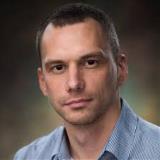
Dr. Mamonkin is a faculty member in the Center for Cell and Gene Therapy at Baylor College of Medicine interested in engineering cell therapies against malignant and pathogenic T-cells. He has developed CD5 CAR T-cells for treatment-resistant T-ALL and peripheral T-cells lymphoma, which is currently evaluated in a first-in-man clinical study at Baylor. Dr. Mamonkin and his team have developed CD7- and CLL-1-specific CAR T-cells for the therapy of T-cell malignancies and AML and optimized them for clinical translation in ongoing Phase I trials on which he serves as a non-clinical PI. His laboratory is also creating cell therapies against pathogenic T-cells in the context of alloimmunity, including engineering off-the-shelf T-cells to resist host cellular immune rejection and reverse graft-versus-host disease following allogeneic stem cell transplant.
Paolo Marcatili, PhD, Director, Antibody Design, Novo Nordisk
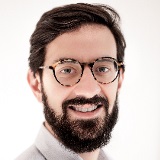
Paolo Marcatili is an associate professor at the Technical University of Denmark, where he leads the "AI for immunological molecules" group. He has developed many state-of-the-art tools for characterising the structure and function of molecules of immunological relevance, in particular antibodies and T cell receptors, by applying deep learning tools to integrate sequence and structural data.
Nicholas Marston, MD, MPH, Preventive Cardiologist and Assistant Professor, Brigham and Women's Hospital and Harvard Medical School

Dr. Nicholas Marston, MD, MPH is an associate physician in the Cardiovascular Division at Brigham and Women's Hospital, an assistant professor of medicine at Harvard Medical School, an investigator and clinical trialist at the TIMI Study Group, and NIH-funded researcher in genomic medicine. His research interests include novel lipid-lowering therapeutics, the genetics of cardiovascular disease, and translating genomic discovery into clinical practice. He has had leadership roles including principal investigator and national lead investigator in numerous lipid-lowering clinical trials testing genetically validated targets such as PCSK9, ANGPTL3, and APOC3. Clinically, Dr. Marston attends on the inpatient cardiology service and in the Cardiovascular Genetics Center and Preventive Cardiology clinic, where he cares for patients with familial hypercholesterolemia, premature coronary artery disease, and inherited cardiomyopathies and arrhythmias.
Shyam Masrani, Principal, Medicxi

Shyam is a Principal at Medicxi. Prior to joining Medicxi, Shyam founded two early-stage biotechnology companies (Shyden Biotechnology and Cleavr Therapeutics). He led Medicxi's investment in Merus and currently serves on the boards of a number of portfolio companies, including T-Cypher Bio, My-T Bio, and CosMyc Therapeutics. Shyam obtained a BSc in Biochemistry and a Master's in Translational Medicine from Imperial College London.
Marcela V. Maus, MD, PhD, Associate Professor, Medicine; Director, Cellular Immunotherapy, Massachusetts General Hospital

Marcela Maus, M.D., PhD, is currently an Associate Professor at Harvard Medical School, the Paula O’Keefe Chair in Oncology and Director of Cellular Immunotherapy at Massachusetts General Hospital (MGH) Cancer Center, and an Attending Physician in the Hematopoietic Cell Transplant and Cell Therapy division of Oncology at MGH. She is an Associate Member of the Broad Institute of Harvard and MIT, and an Associate Member of the Ragon Institute of MGH, MIT, and Harvard. Dr. Maus is internationally known for her work as a translational physician-scientist in the field of immunology, particularly as it relates to T cell immunotherapies and cellular therapies in the treatment of cancer. Her laboratory focuses on the biology of human T cell activation, costimulation, and memory, and on the application of human T cell therapies to human disease, including forward and reverse translation of engineered T cell therapies in early-phase clinical trials. She has authored over 100 papers indexed in Pubmed and holds multiple NIH R01 grants and several Investigational New Drug Applications (IND’s). Dr. Maus completed undergraduate studies at Massachusetts Institute of Technology (MIT) and holds graduate degrees (M.D., PhD) from University of Pennsylvania. Dr. Maus trained in internal medicine at University of Pennsylvania and in hematology and medical oncology at Memorial Sloan Kettering Cancer Center. She also serves on several scientific and clinical advisory boards for the biotechnology industry as well as external academic medical centers.
Jennifer A. Maynard, PhD, Henry Beckman Professor, McKetta Department of Chemical Engineering, Cockrell School of Engineering, University of Texas Austin

Professor Maynard received her undergraduate degree in Human Biology from Stanford University, followed by a PhD in Chemical Engineering from the University of Texas at Austin, and post-doctoral studies at Stanford University. She returned to the UT Austin as a faculty member in the Department of Chemical Engineering in 2007. Her research group aims to develop advanced antibody therapeutics to treat infectious diseases, using a combination of biological and engineering principles. Her group has developed antibodies to prevent and treat pertussis and shown that these are highly protective in adolescent and neonatal baboon models of disease. Newer work is focused on strategies to re-direct T cells to eliminate virally-infected cells.
Michael J. McGuire, PhD, Scientific Director, Shenandoah Valley Labs, SRI International

Michael J. McGuire, PhD, works in the Biosciences Division of SRI International. He is the Director of Macromolecular Biosciences at SRI's Shenandoah Valley Laboratories located outside Harrisonburg, Virginia. Mike has been with SRI International for 9.5 years. His work focuses on the discovery, optimization, and preclinical evaluation of peptide ligands that are internalized by specific cell types. Mike works with collaborators to deliver novel biotherapeutics (nucleic acids and proteins) that alter expression or activity of intracellular targets. Prior to joining SRI, he worked at UT Southwestern Medical School in Dallas, TX. He earned his PhD in Basic Medical Sciences (Biochemistry) at the University of South Alabama College of Medicine in Mobile, AL.
Joshua Meier, PhD, Independent Consultant; Former Chief AI Officer, Absci

Joshua Meier is the former Chief AI Officer at Absci, where he spearheaded the company's transformation into AI Drug Discovery and built robust departments of AI scientists and engineers. Under Joshua’s leadership, Absci pioneered groundbreaking generative AI models for the creation of novel protein therapeutics, closed deals with leading biopharmaceutical companies and published work on antibody design, antibody optimization, and codon optimization. Prior to Absci, Joshua was a senior researcher at Facebook AI Research, where he co-founded and led the platform for protein language modeling. At Facebook, Joshua was principal developer of the ESM-1b and ESM-1v models, which are widely utilized across the biopharmaceutical industry. In his earlier roles, Joshua developed language models & reinforcement learning at OpenAI, managed a virtual reality product at Google, and built MIT's CRISPR-ML design platform. Joshua completed his undergraduate and graduate work in computer science & chemistry at Harvard.
Stefano Menegatti, PhD, Associate Professor, Chemical & Biomolecular Engineering, North Carolina State University

Prof. Menegatti has earned his Ph.D. in Chemical Engineering at NC State University in 2013, with a project on affinity purification of protein therapeutics using peptide affinity ligands (advisor: Dr. Ruben Carbonell). After 2 years as a postdoctoral fellow working on drug delivery technology in the group directed by Dr. Samir Mitragotri at UCSB (now Harvard University), Dr. Menegatti rejoined the Department Chemical Engineering at NC State University as an assistant professor in 2015. Dr. Menegatti has made key contributions in bioseparations: he has introduced the new paradigm of “affinity flow-through chromatography” for continuous purification of therapeutic antibodies; he has invented and patented single-use adsorbents for plasma fractionation, and purification of CRISPR-Cas nucleases and other therapeutic proteins; he has developed novel, rapid at-line assays to support continuous bioprocessing; and designed novel biomaterials for drug delivery and tissue engineering. This intense research activity has translated into numerous impactful publications, patents, and invited lectures in universities and industries. Prof. Menegatti is highly recognized by the academic and the industrial communities alike, and has established a broad network of collaborations with distinguished scholars across three continents (US, Europe, and Australia). He also leads joint research projects with and consults for global companies including Merck & co., Genentech, Merck KGaa, CSL Behring, Millipore Sigma, KBI Biopharma, Johnson and Johnson, and Eastman Chemical Company. He was the key contributor to the $27M AIM-Bio research instituted funded in 2019 by the Novo Foundation (https://news.ncsu.edu/2019/08/future-of-biomanufacturing/). Dr. Menegatti has also established himself as a successful entrepreneur, pursuing the translation of his technology to broaden the access of patients of advanced biological therapies. His IP portfolio has been licensed to private companies - such as LigaTrap, for which he serves as main scientific advisor - and is now being converted into commercial products. Prof. Menegatti is actively engaged in a number of outreach activities in North Carolina: he co-chairs the Triangle Soft Matter Symposium, and collaborates with the NC Biotech Center, the NC Center of Innovation Network, and the UNC Institute for Convergent Science.
Curtis W. Meuse, PhD, Research Chemist, Macromolecular Structure & Function Group, NIST

I am currently at the Institute for Biochemistry and Biotechnology Research, a joint effort between the National Institute of Standards and Technology (NIST) and the University of Maryland. My work is focused on characterizing protein biopharmaceuticals, reconstituted membrane proteins, and protein standards. To accomplish these characterizations, I develop optical spectroscopy methods for the biologically active states of proteins/peptides to allow measurement of structural changes and to describe physical/chemical processes that contribute to biological inactivation of proteins such as macromolecular association/dissociation and aggregation. Further projects include determinations of protein structural stability and protein binding interactions using hydrogen deuterium exchange and the separation of structural and functional intermediates of complex protein mechanisms using 2D correlation techniques.
Brian Meyer, PhD, Principal Scientist, Merck

Brian K. Meyer is a Principal Scientist in Analytical Research and Development, Merck Research Laboratories. His current role is in developing cell-based assays. Brian has worked at Merck & Co., Inc., for 23 years and has held various positions during this time. He earned his PhD in Biochemistry, Microbiology, and Molecular Biology from the Pennsylvania State University and his B.S.E. in Biomedical Engineering from Tulane University.
Nicholas Michelarakis, PhD, Postdoctoral Research Fellow, Boehringer Ingelheim Pharmaceuticals

Nick studied as a biochemist before doing an MRes in Computational Biology. He holds a DPhil in Computer Aided, Structure Based, Drug Design, using molecular modelling and molecular dynamic simulations from the University of Oxford. He also worked as Post-Doc in the Heidelberg Institute of Theoretical Studies, on a variety of topics, from computational structural biology to computational material science. He joined Boehringer Ingelheim in late 2023 where he currently works on the field of digital formulation development and machine learning.
Carter A. Mitchell, PhD, CSO, Purification & Expression, Kemp Proteins, LLC

Dr. Carter Mitchell is the CSO for Kemp Proteins, leading a team of 40+ researchers in the rapid development of novel proteins in an ISO13485- and AAALAC-accredited lab. Dr. Mitchell is a protein chemist and structural biologist with 20 years of direct experience isolating and characterizing difficult proteins from a variety of recombinant and natural sources. Over more than 20 years, he has been exposed to a wide range of structural and biochemical techniques, and developed interests in understanding the development and manufacture of modern biotechnology products. He earned a PhD in Structural Biology where he enzymatically and structurally characterized multidomain proteins involved in metabolite biosynthesis. He developed and led a drug discovery pipeline with a team of scientists that isolated and characterized bioactive small-molecules and peptides from mammalian microbiomes. At the National Cancer Institute, Dr. Mitchell focused on the isolation of bioactive proteins from marine aqueous extracts, which required creative purification strategies earning the Director’s Innovation Award. Prior to joining Kemp Proteins, he was the CTO and Director of Structural Biology at a Biotech start-up where he built, developed, and implemented a protein expression and purification laboratory and managed the protein production and purification team. At Kemp Proteins, Dr. Mitchell acts as the Principal Investigator for numerous programs while striving to improve the technical understanding and capabilities of the group.
Susovan Mohapatra, PhD, Director, DMPK, Stoke Therapeutics

Susovan Mohapatra is currently a Director in the Translational DMPK and Clinical Pharmacology department at Stoke Therapeutics. His group is responsible for the development and implementation of bioanalytical and DMPK strategies to support development of oligonucleotide therapeutics targeting CNS diseases. Prior to joining Stoke, Susovan was an Associate Director at Wave Life Sciences in the Bioanalytical and Biomarker team where he supported preclinical and clinical development of stereopure oligonucleotides targeting neurodegenerative diseases. Susovan received his Ph.D. in Pharmacology and Toxicology from Virginia Commonwealth University and continued his training in Bioanalytical chemistry at Massachusetts Institute of Technology as a postdoctoral fellow in the Bioengineering Department. He has over 10 years of experience in supporting preclinical and clinical development of nucleic acid therapeutics and has 11 publications in peer-reviewed journals.
Fabian Mohr, PhD, Chief Scientific Officer, IBA Lifesciences

Fabian Mohr received his Master’s degree in Biology from the Technical Univ. of Munich. During his PhD thesis he worked on the isolation of minimally manipulated regulatory T cells for adoptive T cell therapy. In 2019, he joined IBA Lifesciences and has played a key role in driving product and technology innovation as Vice President R&D. In his new role as CSO, Fabian Mohr is responsible for the company's scientific strategy.
Deborah Moore-Lai, PhD, VP, Protein Development Platform, Abcam

Deborah joined Abcam in 2019 to lead the Proteins Initiative, which included building out laboratory space and recruiting a team of scientists with skills in protein expression, purification, and assay development. Prior to Abcam, she spent 16 years working in both the reagent and therapeutic spaces. For many years she led Antibody Production at Cell Signaling Technology. From there she joined Merck Research Laboratories, where she led the team responsible for antigen & antibody generation within Biologics Discovery.
Kamalika Mukherjee, PhD, Principal Scientist, Bioanalytical Strategy, Regeneron Pharmaceuticals Inc

Kamalika Mukherjee is a Principal Scientist in the Bioanalytical Strategy Group at Regeneron Pharmaceuticals Inc. where she serves as the Principal Investigator supporting the bioanalysis of PK, ADA, and biomarker samples for clinical studies in oncology. Kamalika received her PhD in Pharmaceutical Sciences from University of Kentucky, Lexington followed by post-doctoral fellowships focusing on Pharmacology in varied therapeutic areas. Before joining Regeneron, Kamalika worked as a Scientist in Pharmaceutical Sciences at St. Jude Children’s Research Hospital.
Erik V Munsell, PhD, Associate Principal Scientist, Discovery Pharmaceutical Sciences, Merck Research Labs

Erik Munsell is an Associate Principal Scientist in Discovery Pharmaceutical Sciences at the Merck Research Laboratories Boston site. His current role focuses on physiochemical property profiling in preclinical drug product development across a wide range of modalities. These efforts help drive candidate selection for clinical development and better understand drug product CMC developability risks. Prior to joining Merck, Erik received his PhD from the University of Delaware in Chemical Engineering and his B.S. from Rensselaer Polytechnic University in Chemical Engineering. His thesis work at UD focused on elucidating interactions between gene delivery nanocarriers and biological environments to guide nanocarrier design improve nucleic acid delivery at the site of action.
Yumi Nagase, MS, Lead Researcher, Biopharma Solutions Group, Research Institute for Bioscience Products & Fine Chemicals, Ajinomoto Co., Inc.
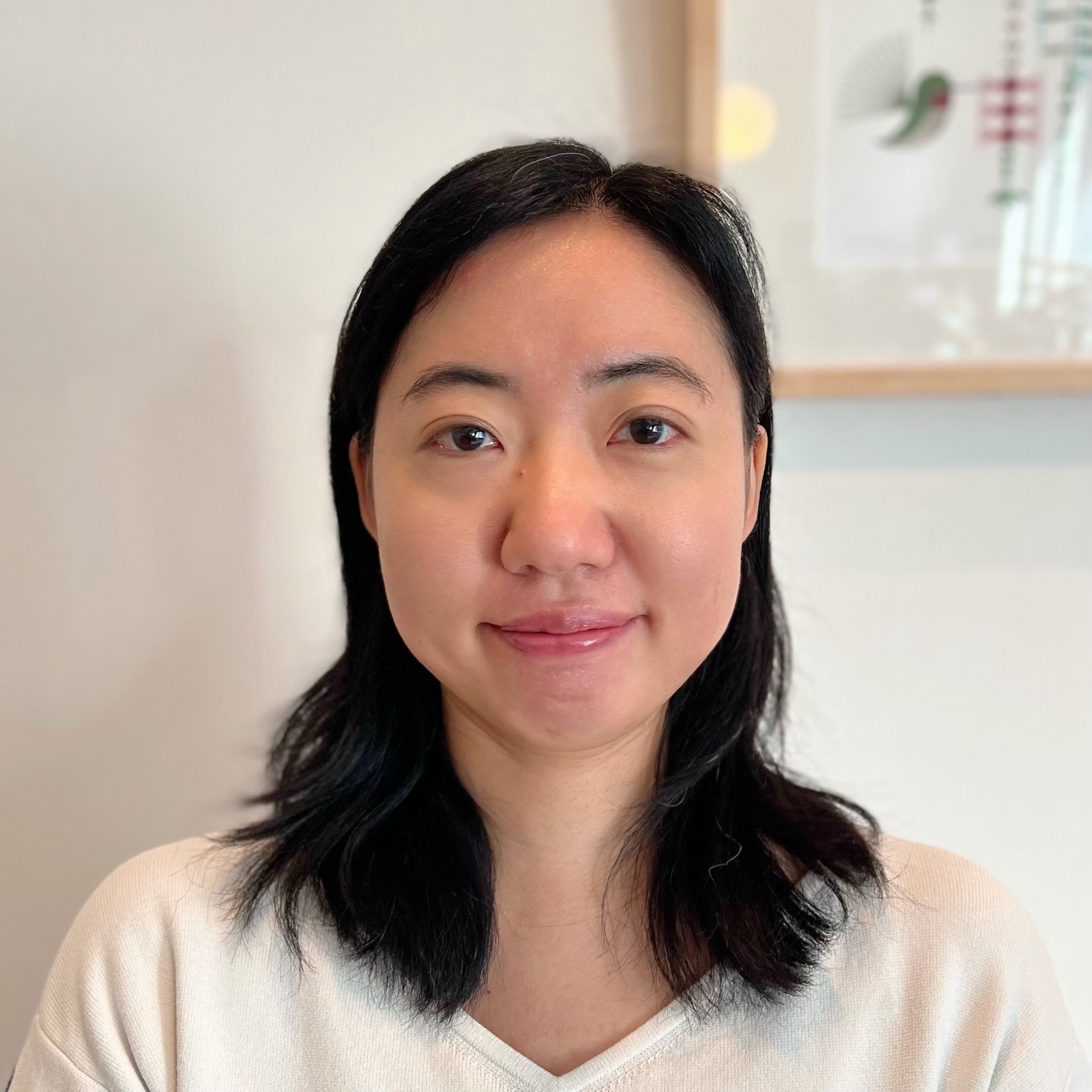
Yumi Nagase earned her master’s degree from the University of Tokyo in chemical biology, focusing on cell-free protein expression systems. Since joining Ajinomoto in 2012, she has been involved in strain development of Corynex®, protein expression technology using gram-positive bacteria. She has served as a project leader, developing highly productive strains currently used for cGMP production of biopharmaceuticals. Her ongoing research is focused on the incorporation of non-canonical amino acids.
Rouba Najjar, Head of MKT and BD, Product Divisions, GenScript USA Inc
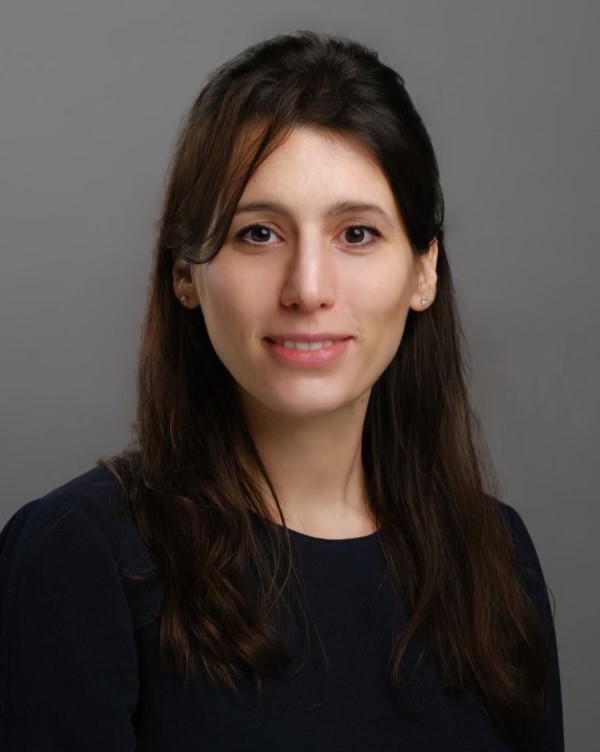
Rouba Najjar is the Head of Marketing and BD at GenScript Biotech Product Divisions. With over a decade of experience, she specializes in delivering automated solutions that streamline research and development processes. With a strong passion for automating processes to enhance research outcomes, her team excels in creating innovative, dependable, and high-quality reagents and instruments that cater to a diverse range of life science research and development domains.
Prashant Nambiar, DVM, PhD, MBA, Senior Vice President, R&D, Strand Therapeutics

Prashant Nambiar is Senior Vice President of R&D at Strand Therapeutics where he is leading Discovery, Nonclinical, Translational, and Data Science. Prior to Strand, Prashant was Vice President at 2seventybio and bluebird bio leading the preclinical and translational group developing cell and gene therapies for oncology and rare disease indications. Prashant started his career in academia at MIT followed by 18+ years in biotech and pharma including Genzyme, Pfizer, bluebird bio and 2seventybio. He has worked on various modalities such as small molecules, biologics, AAV, cell and gene editing therapies at various stages of development including discovery, target selection, preclinical development, and beyond. His expertise is in Translational Biology, Pathology, and Toxicology with a focus on bringing transformative therapies from bench to the clinic and beyond. He is passionate about leveraging data in drug R&D and had built a data operations team at Pfizer to execute on that strategy. Prashant’s PhD is in cancer biology, specifically understanding the molecular pathogenesis of precancerous lesions in the colon. He has board certifications in Toxicology and Veterinary Pathology. He also has an MBA from Sloan School of Business, MIT.
Hirsh Nanda, PhD, Director, Analytical Sciences, Janssen

Hirsh Nanda is the Director of Analytical Sciences at The Janssen Pharmaceutical Companies of Johnson & Johnson. Hirsh joined Janssen in 2015 and currently he is leading an analytical sciences group supporting research and development of biologic therapeutics, including cell line engineering and development. His team performs in-depth mass-spec and biophysical characterization across modalities and next-generation therapies. State-of-the-art robotics, along with high-throughput mass-spec data acquisition and analysis, is used to automate and streamline our processes. Prior to joining Janssen, Hirsh was Senior Scientist at NIST, working on the adsorption and aggregation of mAbs at surfaces relevant to pharmaceutical processing.
Horacio G. Nastri, PhD, Vice President, Protein Science and Technology, Incyte Corporation

Dr. Nastri is currently the VP of Protein Science and Technology at Incyte Corp. His group is responsible for end-to-end discovery and engineering of monoclonal and bispecific antibodies for oncology applications. His group uses both immunization, as well as display approaches for the generation of lead molecules, which are further optimized by a combination of in vitro and in silico approaches. Dr. Nastri started his career in the antibody field at Dyax Corp., where he developed and co-invented key technologies utilized to build the Dyax Fab libraries. He then headed the Antibody Technologies group at EMD Serono, where he implemented new approaches for selecting antibodies by single cell B-cloning and phage display. He became an Inventor of Avelumab, a clinical-approved anti PD-L1 antibody. He joined Pfizer CTI as a Biotherapeutic Site Head in NY, where he collaborated with local academic leaders to enable and advance novel therapeutic programs. During his career, Dr. Nastri became an inventor of multiple antibody therapeutic molecules and antibody discovery enable technologies, while participating in a number of projects resulting in IND applications.
Damien Nevoltris, PhD, Senior Team Leader Antibody Engineering, AC Immune SA

Damien Nevoltris heads the Antibody Engineering team at AC Immune, Lausanne, Switzerland, where his team focuses on antibody discovery, selective antibody delivery using Adeno-Associated Viruses (AAV), protein stability improvement, and next-generation therapeutics. During his PhD at the Cancer Research Center of Marseille, France, he explored camelid single domain antibodies as sources of agonists, antagonists, and allosteric modulators. Before joining AC Immune in April, 2019, he performed his postdoctoral at the Garvan Institute of Medical Research in Sydney, Australia, where he worked on enhancing the stability and expression of human antibodies.
Rosa Hong Ha Nguyen, MD, PhD, Physician & Scientist, Pediatric Oncology, National Institute of Heath, National Cancer Institute

I am a board-certified pediatric oncologist and completed my pediatric residency at the University of Maryland and my subspecialty training at St. Jude Children’s Research Hospital. I earned my PhD in Biomedical Sciences from the University of Tennessee Health Science Center. Before starting my own research group in the Pediatric Oncology Branch at the National Cancer Institute, I trained as a postdoctoral fellow at the National Heart, Lung, and Blood Institute and the National Cancer Institute. My work has been funded by the Department of Defense, American Society of Clinical Oncology, St. Baldrick’s Foundation, Children’s Cancer Foundation, and Solving Kids’ Cancer Foundation.
Shakiba Nikfarjam, PhD, Postdoc, Lawrence Livermore National Lab

I am a post-doctoral researcher stationed at the Lawrence Livermore National Laboratory, where my expertise lies in the biophysical characterization of proteins. My primary toolset involves single-molecule fluorescent spectroscopy, which I employ to delve into the intricate behaviors of proteins at the molecular level. Presently, my research focus centers on two key areas: cell-free production and binding studies of monoclonal antibodies. I am actively investigating these aspects across both bacterial and mammalian expression systems, aiming to unravel the mechanisms governing antibody production and interaction. Through my work, I strive to advance our understanding of protein dynamics and contribute to the development of novel therapeutic strategies.
Ahuva Nissim, PhD, Professor, Antibody and Therapeutic Engineering, William Harvey Research Institute, Queen Mary University of London

Graduated in Molecular Immunology in 1992 from the Weizmann Institute of Science in Israel and was trained as a postdoctoral fellow at the MRC Centre for Protein Engineering in Cambridge until 1995. During this period she developed phage display semi-synthetic human antibody library, the so call ‘Nissim’ library which has been used worldwide. In November 2000 was appointed at Queen Mary University. My studies are interdisciplinary and involve translational research at the William Harvey Research Institute and with intensive worldwide collaborations. My studies have been mostly focused on the mechanisms that lead to the formation of disease tissue-specific pathogenic post-translationally modified proteins and the exploitation of identified pathogenic proteins to develop platform technologies for novel disease - and tissue-specific, diagnosis and targeted treatment.
Jason Noon, Associate Director of Biology, Nona Biosciences
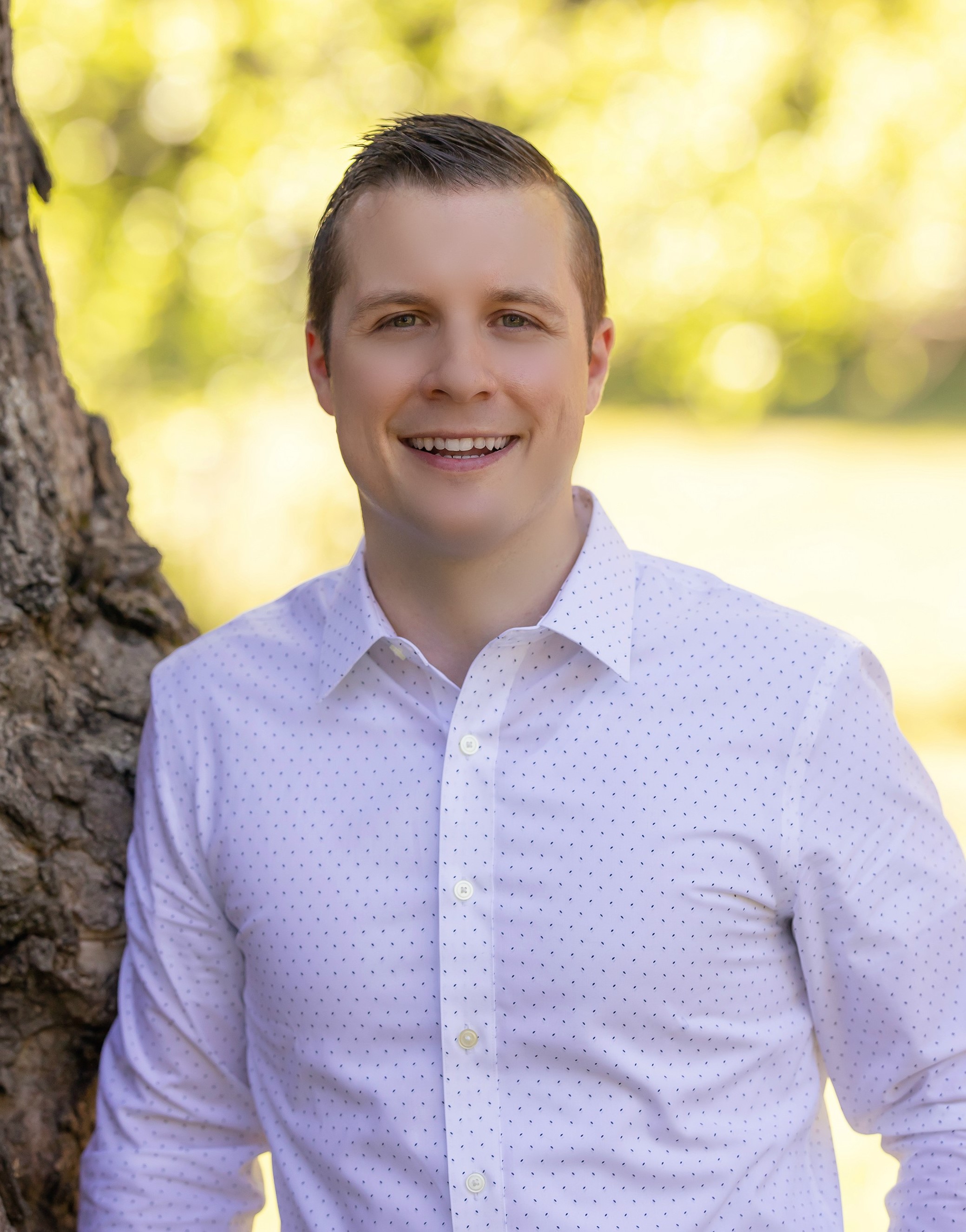
Dr. Jason Noon is an Associate Director of Biology at Nona Biosciences and leads a research team at the US site in Natick, Massachusetts that focuses on HCAb technology innovation, antibody discovery, and bioassay services. Before joining the company almost five years ago, Dr. Noon received his PhD from Iowa State University studying innate immunity of host-pathogen interactions. He then completed two postdoctoral fellowships at the University of Massachusetts Medical School and Boston University School of Medicine focusing on mechanisms of both innate and adaptive immunity.
Tatiana Novobrantseva, PhD, Co-Founder & CSO, Verseau Therapeutics

Dr. Tatiana Novobrantseva is Co-Founder and CSO of Verseau Therapeutics. She previously served as Head of Research and Development. Before co-founding Verseau, she consulted for multiple companies on immunological aspects of drug development across different stages and therapeutic modalities in a variety of autoimmune, cancer and rare disease indications. At her prior position as Director of Tumor Immunology at Jounce Therapeutics, Tatiana defined research plans for several programs at the company’s inception, as well as led a portfolio of programs on (re)activating the immune system against cancer. Previously, Tatiana served as Associate Director at Alnylam Pharmaceuticals and Scientist II at Biogen. Tatiana’s scientific accomplishments include discovering the critical role for B cells in liver fibrosis, developing mechanistic insights for multiple therapeutic programs, pushing the envelope on siRNA delivery and championing a dendritic cell cancer vaccine clinical program. Tatiana is an inventor on more than 22 patents and an author on more than 37 peer-reviewed manuscripts. Tatiana completed her PhD with Dr. Klaus Rajewsky at the University of Cologne in Germany, focusing on B cell development and function. She holds a diploma of engineer-physicist and an MS in molecular biology from Moscow Institute of Physics and Technology.
William Nyberg, PhD, Postdoc Research Fellow, Hematology and Oncology, University of California San Francisco

PhD at the Karolinska Institute, Stockholm, Sweden. Joined Justin Eyquem's research lab at UCSF in 2019 as a postdoc to work on evolving AAV variants for T cells to improve T cell engineering, ex vivo and in vivo, work for which I was awarded the ASGCT Excellence In Research award in 2023. Will be joining the Karolinska Institute in 2024 as an Assistant Professor with the focus on developing in vivo-based T cell therapies using evolved AAVs.
Adam Nylen, Senior Scientist, Merck & Co Inc

Adam is a Senior Scientist at Merck who specializes in establishing optimized and developable production platforms and protein design in mammalian and microbial cell cultures for de novo therapeutic proteins, focusing on glycosylation. Prior to this, Adam worked for GlycoFi which was a biotechnology company focusing on glycan engineering in Pichia pastoris. Adam received his bachelor’s in biology from Castleton University in 2002 and has over 20 years of industry experience.
Donald M. O'Rourke, Professor, Neurosurgery, University of Pennsylvania

Donald M. O’Rourke, MD, is the inaugural holder of the John Templeton, Jr., MD Endowed Chair in Neurosurgery, and is Professor (with tenure) in the Department of Neurosurgery at the Perelman School of Medicine, University of Pennsylvania. Dr. O’Rourke is the Director of the Glioblastoma Translational Center of Excellence (TCE) in the Abramson Cancer Center. His Dr. laboratory studies EGFR targeted therapies and immunotherapies for brain cancer, including the application of Chimeric Antigen Receptor T Cell (CART) immunotherapy to glioblastoma. Dr. O’Rourke has led the Penn group in three first-in-human clinical trials using CAR T cells for treatment of newly diagnosed and recurrent glioblastoma, with the first bivalent CAR T trial approach for glioblastoma now accruing patients. Dr. O’Rourke has several patents related to EGFR targeted inhibition and CAR T cell therapy in human cancers and has been active in licensing laboratory technologies for commercial development of new therapies.
Pierce J. Ogden, PhD, Co-Founder & CSO, Manifold Biotechnologies Inc.

Pierce Ogden is the Co-Founder and CSO of Manifold Bio and inventor of Manifold’s core technology. Pierce obtained a PhD in George Church’s lab at Harvard, where he developed novel methods of protein library design and assays leveraging multiplex DNA synthesis, sequencing, and machine learning. His work has been published in Science, Nature Biotech, and he is an inventor on several patents related to high-throughput protein engineering.
Jane K. Osbourn, PhD, CSO, Alchemab Therapeutics Ltd.

Jane is Chief Scientific Officer at Alchemab Therapeutics, which focusses on identifying self-protective antibodies as therapies for neurodegeneration and oncology. She was an early employee of Cambridge Antibody Technology, which became MedImmune, the biologics arm of AstraZeneca, where she contributed to the development of phage display technology, authored many key publications and patents, and contributed to the discovery and development of eight marketed drugs. She is passionate about the development of the biotechnology sector and served as Chair of the UK BioIndustry Association from 2015-2019. She is also the Chair of Mogrify, a Cambridge-based cell-therapy company, a Director of Cambridge Enterprise, and of Babraham Research Campus. In 2019 she was awarded an OBE for services to drug discovery, development and biotechnology, and the Scrip Lifetime Achievement Award for contribution to the pharma industry.
Hamideh Parhiz, PharmD, PhD, Research Assistant Professor, Infectious Diseases, University of Pennsylvania

Hamideh Parhiz, PharmD, Ph.D. is a Research Assistant Professor in the Perelman School of Medicine at the University of Pennsylvania where she leads the targeted LNP delivery program. Her expertise is developing novel nucleic acid delivery systems including a new generation of targeted LNP-mRNA therapeutics for a variety of non-vaccine applications such as blood gene disorders, cancer, fibrosis, and acute inflammatory conditions. Hamideh’s work has resulted in the publication of more than 40 papers including two papers in Science magazine and several patents. Her work in designing an efficient targeted LNP-mRNA platform is now the basis for industrial product developments as well as academic programs.
Jeehae Park, PhD, Principal Scientist, Early Development, Intellia Therapeutics, Inc.

Jeehae Park is a Principal Scientist in the Early Development Group at Intellia Therapeutics. Her interest is in preclinical/clinical bioassay development of CRISPR based gene therapies (LNP, sgRNA, Cas9 mRNA, viral vectors and engineered cells). Her prior work experience includes analytical development of AAV-based gene therapies at Sanofi. Jeehae is a biophysics Ph.D. from University of Illinois at Urbana-Champaign and obtained postdoctoral training in the Systems Biology department of Harvard Medical School.
Belinda Pastrana, CSO /CTO and Founder, Protein Dynamic Solutions
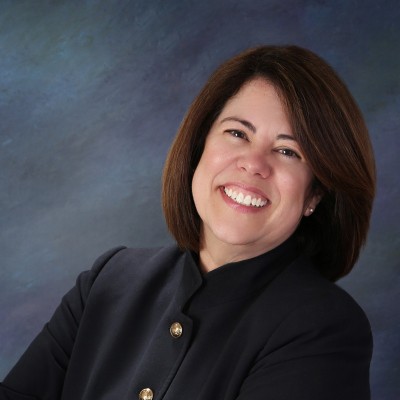
Dr. Pastrana has 30 years’ experience developing cutting-edge solutions for protein purification and characterization, with 20 years focused in the field of pharmaceutical bioprocessing. Her M.S. & Ph.D. were completed at Rutgers University and her post-doctoral training was in Pharmacology and Molecular Biology at the Mayo Clinic and Foundation. She is the founder & CSO/CTO of Protein Dynamic Solutions, a patented innovator & tenured faculty member at the University of Puerto Rico, Mayaguez Campus.
Sofie Pattijn, Founder & CTO, ImmunXperts, a Q2 Solutions Company

Sofie Pattijn, CTO and founder of ImmunXperts, has over 20 years of experience in the field of immunogenicity assessment (vaccines and biotherapeutics) and in vitro assay development with a focus on functional assays for immunogenicity, immune oncology, and cell and gene therapy products. She has extensive hands-on lab experience and has managed and coached several in vitro teams over the last decade. From 2008 until 2013, she was Head of the in vitro Immunogenicity group at AlgoNomics (Ghent, Belgium) and Lonza Applied Protein Services (Cambridge, UK). Prior to that, she worked at Innogenetics in Belgium for over 15 years.
Noel T. Pauli, PhD, Group Leader, Antibody Engineering, Adimab LLC

Noel Pauli is a Group Leader of Antibody Engineering at Adimab LLC. He joined Adimab in 2015. His research focuses on the generation of antibodies against integral membrane proteins and other difficult targets using immunization, single B cell cloning, and immune library development in both murine and camelid systems. He received his PhD training from the University of Chicago under Patrick Wilson studying the human B cell response to Staphylococcus aureus infection at the resolution of monoclonal antibodies.
Peter Pavlik, PhD, Senior Director, Protein Engineering, Aptevo Therapeutics

Peter Pavlik is Senior Director of Protein Engineering at Aptevo Therapeutics. He has been working on bispecific antibody development at Aptevo for the last 8 years, focusing on discovery of new binding domains, their engineering into bispecific molecules, optimization of developability, and engineering of manufacturing cell lines. Before joining Aptevo, Peter worked for 8 years at MedImmune/AstraZeneca on antibody discovery and protein engineering and for 10 years at Los Alamos National Labs developing antibody discovery technologies at a genome scale. Peter obtained an M.Sc. in Biochemistry from Comenius University in Slovakia and a PhD in Biochemistry from the University of Vienna in Austria.
Lauri Peil, PhD, Key Account and Technology Officer, Icosagen Group
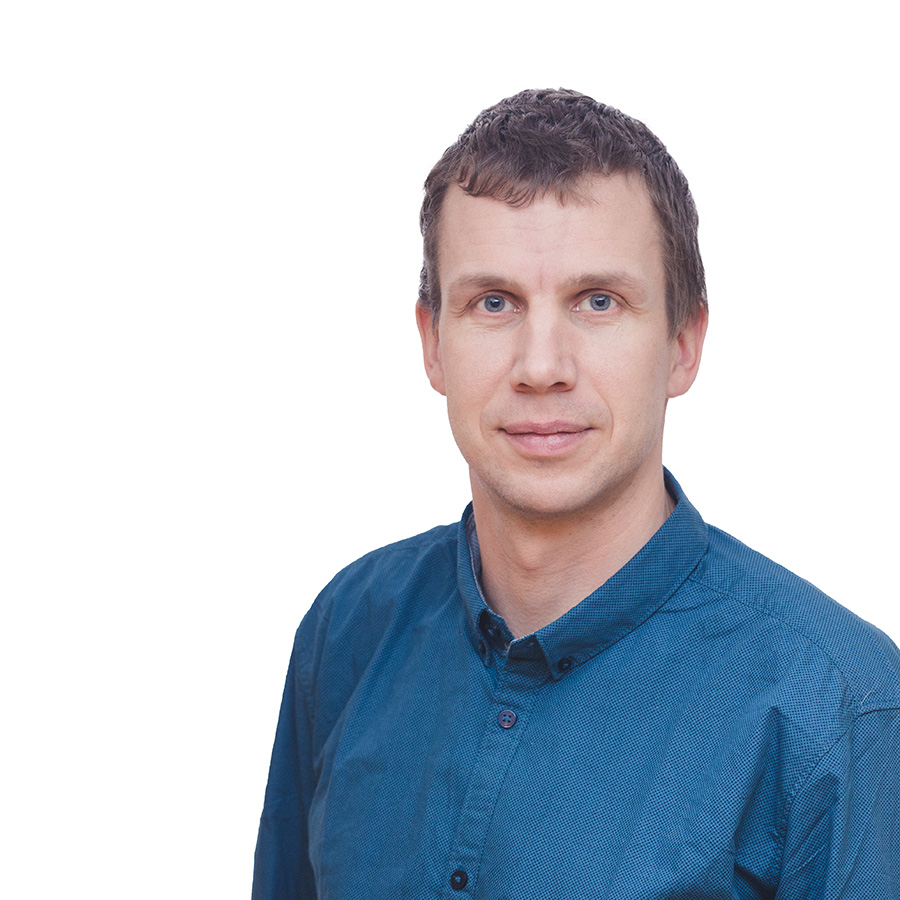
Lauri is a trained molecular biologist, who turned into the interesting path of proteomics and machines that go ‘ping’ (read - MS) during the later years of his PhD studies. After post-doc years in Edinburgh and then a few more back home in Tartu, Lauri left academia for private sphere, joining the merry team of an Estonian biotech company Icosagen, world-renowned for its expertise in recombinant protein production and antibody discovery.
Robert Pejchal, PhD, Director, Antibody Engineering, Adimab LLC

I received my PhD from University of Michigan Ann Arbor in protein crystallography. I then did a postdoc at The Scripps Research Institute where I studied broadly neutralizing HIV-1 antibodies, solved crystal structures of such antibodies bound to viral envelope glycoproteins and peptide antigens. After taking a scientist position at Adimab LLC, my focus on antibody engineering blossomed into a bispecific antibody discovery and optimization and cell selection approaches for membrane protein targets. Currently, as VP of Antibody Engineering, my work on bispecifics and membrane protein targets continues alongside platform optimization, antibody format research and development, and developability.
Bradley L. Pentelute, PhD, Professor, Chemistry, Massachusetts Institute of Technology

Bradley L. Pentelute, Professor of Chemistry. He is also an Associate Member, Broad Institute of Harvard and MIT, an Extramural Member of the MIT Koch Cancer Institute, and Member, Center for Environmental Health Sciences MIT. He received his undergraduate degree in Psychology and Chemistry from the University of Southern California, and his M.S and Ph.D. in Organic Chemistry from the University of Chicago with Prof. Steve Kent. He was a postdoctoral fellow in the laboratory of Dr. R. John Collier at Harvard Medical School, Microbiology. His research program lies at the intersection of chemistry and biology and develops bioconjugation strategies, cytosolic delivery platforms, and rapid flow synthesis technologies to optimize the production, achieve site-specific modification, enhance stability, and modulate function of a variety of bioactive agents. His laboratory successfully modified proteins via cysteine-containing “pi-clamps” made up of a short sequence of amino acids, and delivered large biomolecules, such as various proteins and drugs, into cells via the anthrax delivery vehicle. Pentelute has also made several key contributions to automated synthesis technologies in flow. These advances includes the invention of the world's fastest polypeptide synthesizer.
Edith A. Perez, MD, CMO, Bolt Biotherapeutics, Inc.

Edith A. Perez, MD, is an internationally recognized translational researcher and cancer specialist. She serves as Chief Medical Officer of Bolt Biotherapeutics, Professor of Medicine at Mayo Clinic, and Director of the Mayo Clinic Breast Cancer Translational Genomics Program. Dr. Perez is known for her strategic vision in designing innovative clinical trials and her passion for patient care. As a leader, she has the capacity to harness individual talent in a way that amplifies the impact of her team. Her demonstrated record of academic leadership is complemented by her experience leading biopharmaceutical teams. Dr. Perez’s management experience extends as well to focused philanthropic endeavors.
Tony Pham, Scientist, Biologics Engineering & Developability, AstraZeneca

At AstraZeneca’s Department of Biologics Engineering (Gaithersburg, MD), Tony Pham works on establishing new high-throughput experimental methods for developability assessment to support early-stage lead identification. With a background in biochemistry, computational biology, and data analytics he also works on implementing new in silico methods to predict developability properties of antibodies. Specific interests include developability of novel formats such as VHHs, ensemble-based structural analysis, and molecular dynamics. He studied biotechnology, earning his master’s degree at Boston University.
Sheila Phicil, Equity Architect, Director of Innovation, Health Equity Accelerator, Boston Medical Center (BMC)

Sheila Phicil is a dynamic trailblazer and currently holds the role of Director of Innovation at Boston Medical Center’s (BMC) Health Equity Accelerator. In this capacity, she spearheads transformative initiatives that propel the cause of racial health equity forward, while also tackling the intricate web of social determinants of health. With a remarkable track record spanning 15 years in healthcare, Sheila has expertly navigated policy, strategy, and operations within diverse clinical, research, and teaching environments. Her journey has encompassed esteemed institutions including Brigham and Women’s Hospital, Dana Farber Cancer Institute, and the Veterans Health Administration. Notably, Sheila's dedication and prowess have earned her the prestigious BMC Leadership Impact Award in 2020 for her stewardship in fostering diversity, inclusion, and health equity. Additionally, her commitment to excellence led to her selection as one of merely 24 high-potential healthcare leaders for the Massachusetts Health Leadership College fellowship program in 2022. Sheila has a robust educational background, holding dual Master’s degrees in Public Health and Financial Economics, accompanied by the respected title of Certified Project Management Professional (PMP). Beyond her formal accomplishments, Sheila's perspectives are deeply rooted in her lived experiences as a first-generation Haitian American woman. Her distinctive ability to weave compelling narratives adds a poignant layer to her advocacy on intricate matters, illuminating the essence of multifaceted issues. With an unwavering belief in the power of system design to shape outcomes, Sheila is resolutely committed to reimagining care systems that cater to and uplift vulnerable and marginalized populations. Through her remarkable journey, she continues to redefine possibilities, one impactful story and initiative at a time.
Ulrike Philippar, PhD, Senior Director & Head, Oncology & Discovery Hematological Malignancies, Johnson & Johnson Innovative Medicine

PhD in Cellular Biology at the University of Tuebingen, Germany; Postdoctoral Fellow at MIT Cancer Center, Cambridge, USA; 6 years in Oncology R&D at Merck & Co., Boston, USA; since 9.5 years at Janssen Oncology R&D, Beerse, Belgium; current position: Senior Director Oncology, Global Head of Discovery Hematological Malignancies.
Thomas Pillow, PhD, Senior Scientist, Genentech, Inc.

Thomas Pillow received his Ph.D. from Stanford University in organic chemistry under the direction of Professor Paul Wender. Upon graduation he moved to Genentechin 2009 where he is currently a principal scientist in the discovery chemistry department, leading Genentech’s effort on antibody-drug conjugates.
Renuka Pillutla, PhD, Senior Vice President, Head, Development Sciences, Spark Therapeutics Inc

Renuka Pillutla is Senior Vice President and Head of Development Sciences, Technical Development and Analytical Development & QC at Spark Therapeutics, a subsidiary of Roche. In her current role she plays a key leadership role at Spark by providing strategic and scientific leadership to the development of gene therapies. She is responsible to ensure preclinical and clinical strategies for biodistribution, PK/PD, safety, pharmacology, translational, biomarker, bioanalytical, companion diagnostics, technical and analytical development are established and implemented in an efficient and integrated fashion. Her responsibilities in development of investigational gene therapy drug candidates span from early discovery through major milestones such as IND, FIH and all phases of clinical development through to regulatory filing. Prior to Spark, Renuka spent 11 years at Bristol Myers Squibb in various leadership roles in translational medicine, bioanalytical sciences, nonclinical and clinical development. During the course of her career Renuka has worked in drug discovery (Discovery Research), and various areas of Drug Development such as CMC analytical, bioanalytical, translational, preclinical & clinical. The diversity of her experience provides her with a well-rounded knowledge of all aspects of drug development.
Thomas Pohl, PhD, Director, Analytical Characterization, Novartis Pharma AG

Thomas Pohl, PhD, joined Novartis in 2015 and currently holds the position of Director Analytical Development within the Technical Research and Development unit Biologics. He is representing as Site Head Analytical Development the analytical line functions at the TRD Biologics site in Basel, Switzerland, and is leading a team responsible for the physico-chemical characterization of biopharmaceuticals from early- to late-stage development. Before joining Novartis, he had been working for a start-up company in Munich, Germany, leading a team responsible for the various aspects of the technical development of biopharmaceutical drug candidates. Besides his affiliation with Novartis, he is co-leading a team of experts under the umbrella of the EFPIA Manufacturing Quality Expert Group promoting the use of MAM for release and stability testing under GMP.
Daniel J. Powell Jr., PhD, Professor, Pathology & Laboratory Medicine, University of Pennsylvania

Dr. Powell is a tumor immunologist with more than 20 years of experience in basic and translational tumor immunology. Dr. Powell was recruited from the National Cancer Institute to the University of Pennsylvania to develop a cutting-edge immunobiology and therapy program for gynecologic cancers, where he serves as Scientific Director of Immunotherapy for the Division of Gynecologic Oncology. His research program focuses on fundamental studies of the immunobiology of human cancer and the development of innovative immunotherapeutic strategies including cancer vaccination, immunomodulation, and adoptive immunotherapy using tumor-infiltrating lymphocytes (TILs) and T cells engineered to express tumor antigen-specific TCRs and chimeric antigen receptors (CARs). His seminal studies of T cell phenotype and function in patients responding to adoptive cell therapy, which demonstrated that T cell persistence and differentiation status are major contributing factors to successful adoptive therapy, is now a widely-accepted concept in the field. Studies from the Powell lab have also illustrated the validity of biomarkers for naturally-occurring tumor-specific T cells in human cancer; defined a role for the CD27 costimulatory molecule in human T cell memory formation; and resulted in the development of universal immune receptors for multivalent T cell therapy. He serves on various academic, foundation and industry scientific advisory boards, and provides expert opinion in cancer immunotherapy as a member for the NCI’s Cancer Immunopathology and Immunotherapy (CII) Study Section.
Anusha Prakash, Associate Scientist, AbbVie

I got my masters in biomedical engineering from the University of Cincinnati. After which I joined Abbvie as an associate scientist in the functional assay development team. My work focuses on designing and optimizing assays using automation to make them high throughput. I am currently working on flow cytometric assays and ELISA.
Kamal D. Puri, PhD, CSO, OncoResponse, Inc.

Kamal D. Puri has more than 25 years of research and development experience in immunology and oncology. Among his accomplishments was development of Zydelig, a first-in-class PI3K delta inhibitor for the treatment of hematological malignancies. Dr. Puri joined OncoResponse from Celgene where he led a preclinical research group to discover new molecular entities for the immunology pipeline as well as identified and supported new indications for existing portfolio molecules. Prior to Celgene he was Associate Director of Research at Gilead, where he contributed to the approval of Zydelig a first-in-class PI3K delta inhibitor for the treatment of hematological malignancies. Dr. Puri also led internal teams and managed external collaborations to deliver a best-in-class PI3K delta inhibitor and advanced it into clinical development and directed research efforts on multiple discovery projects in inflammation. Prior to Gilead, which acquired Calistoga Pharma, Dr. Puri was Head of Research at Calistoga and was responsible for a wide range of activities including preclinical research and portfolio strategy and biomarker discovery with success in advancing three drug candidates into clinical development for multiple indications. Earlier in his career, Dr. Puri also led drug discovery efforts at ICOS Corporation and CytoTherapeutics.
Nele Quast, DPhil Candidate, Oxford Protein Informatics Group

As a PhD student in the Oxford Protein Informatics Group (OPIG) Nele Quast develops and trains deep learning models for immune protein structures, supervised by Dr Matthew Raybould and Prof Charlotte Deane. Nele is interested in architectures that retain equivariance, merge sequence and structure information and can be injected with conditions or constraints. Specifically, her current research investigates T-cell receptor structures and their interface with peptide MHC antigen. As a researcher in OPIG she develops and uses the OPIG software suite, particularly ImmuneBuilder (Abanades et. al.) and various databases such as the Structural Antibody, Structural TCR and Observed Antibody Space databases. Previously Nele obtained a Masters degree in bioengineering at Imperial College London and worked in industry as a machine learning software developer.
John Quinn, PhD, Distinguished Scientist, Biophysical Group, Biochemical and Cellular Pharmacology, Genentech

John Quinn is currently a distinguished scientist specializing in biophysics within Biochemical and Cellular Pharmacology at Genentech supporting SMDD pipeline projects. He is particularly interested in the practical exploitation of kinetics for applications that are of value in preclinical SMDD. He received a PhD in Applied Immunology and Biochemistry from Dublin City University (DCU) and after a postdoc position developing biosensors at DCU, he joined Texas Instruments, Dallas, TX, working on the development of SPR devices. This technology was later licensed to Nomadics, Inc., and he joined them to head the development and commercialization of the SensiQ Pioneer as CSO. His interests in drug discovery led him to take a principal scientist position at Takeda California leading a biophysical group where his group supports both LM and SM projects.
Qun Jiang, PhD, Staff Scientist, TGMB, CCR, NCI, NIH

Dr. Jiang received her PhD from the University of Science and Technology of China in 2008, where she studied the roles of the innate immune system in anti-tumor immunity and inflammatory liver injury. She was then a postdoc with Dr. Robert H. Wiltrout at NCI-Frederick, where she studied the inflammation-associated tumorigenesis and developed novel cancer immunotherapy strategies. In 2015, she joined Dr. Raffit Hassan’s group as a staff scientist in Thoracic and GI Malignancies branch at NCI. Her current research focuses on mesothelin-targeted immunotherapy for solid tumors treatments. She has won the NCI Director’s Innovation Award in 2020 and Mesothelioma Applied Research Foundation grant in 2021.
Laszlo G. Radvanyi, PhD, President & Scientific Director, Ontario Institute for Cancer Research
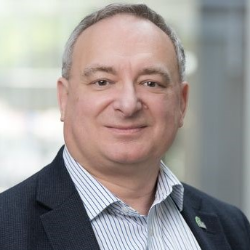
Dr. Laszlo Radvanyi is the President & Scientific Director of the Ontario Institute for Cancer Research (OICR; https://oicr.on.ca/), bringing over 30 years of oncology research background in academia and leadership experience in international pharma and biotech. He is also a Professor in the Immunology Department at the University of Toronto where he performs research on the role of genomic non-coding regions, including transposable retroelements and human endogenous retroviruses, on cancer immunoregulation as well as the early interaction of the immune system with tumor cells during the initial stages of cancer development to find targets for early intervention. Laszlo joined OICR from EMD Serono (Merck KGaA), where he was Senior Vice President Global Head of the Immuno-Oncology Translational Innovation Platform and Senior Scientific Advisor for Immunology and Immunotherapy. Prior to this, Laszlo was a Professor in the Department of Melanoma Medical Oncology at the University of Texas, MD Anderson Cancer Center in Houston for 10 years where he ran an integrated clinical and basic cancer immunotherapy research program focusing on adoptive cell therapy. He was founding CSO of Iovance Biotherapeutics, a pioneering company commercializing tumor-infiltrating lymphocyte (TIL) adoptive cell therapies for melanoma and other cancers. Laszlo sits on numerous grant review boards and biotech advisory boards and is a sought-after expert in cancer biology and immunotherapy and a thought leader in the field of oncology research strategy.
Jack A. Ragheb, MD, PhD, Senior Vice President, Translational Sciences and Medicine, NexImmune

Dr. Ragheb has been with Eli Lilly & Co. for about 3 years. He is based in Indianapolis where he serves as the Senior Medical Fellow for Immunology in Global Patient Safety and Co-Chair of the Immunogenicity/Immunosafety Working Group. He received his MD and PhD degrees from the Johns Hopkins University and is a Diplomate of the American Board of Allergy & Immunology. Formerly, he was a Senior Clinical Investigator at NIH where he conducted clinical and basic research on immune tolerance, and a Chief Medical Research Officer in the Office of Biological Products at the FDA where his research group established the BLT humanized mouse model there in an effort to predict the immunogenicity of biotherapeutics. He has published in the areas of immunogenicity, immune tolerance, CD28 and CD40L regulation, retrovirology, and gene therapy.
Brajesh K. Rai, PhD, Senior Director, Machine Learning Computational Sciences, Pfizer Inc.

Brajesh Rai leads the Machine Learning Computational Sciences Methods Development group at Pfizer. His team develops and delivers innovative computational solutions and machine learning models to advance drug discovery and development efforts in established (small molecules and antibodies) and emerging (mRNA and gene therapy) therapeutic modalities within Pfizer R&D. Prior to joining Pfizer in 2007, Brajesh held postdoc positions at Wyeth and Albert Einstein College of Medicine. He received his PhD in physics from Purdue University, where he developed theoretical and computational techniques and utilized high-energy synchrotron beamline facility at the Argonne National Laboratory to study dynamics of active sites in heme proteins.
Amber Raines, Senior Director Rapid Analytics, AFS, KBI Biopharma
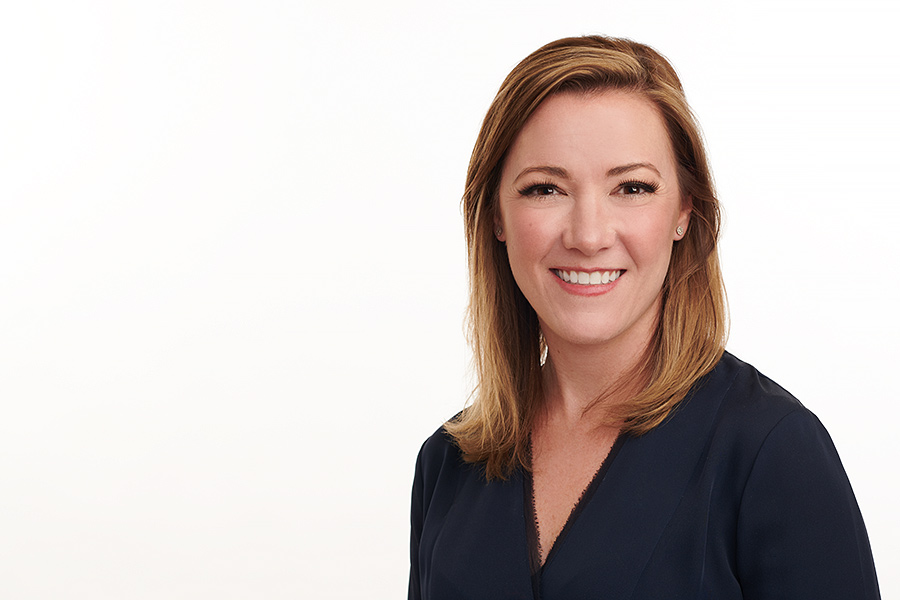
Amber is the Senior Director of the Rapid Analytics team at KBI which specializes in analytical methods for the characterization of pharmaceutical products. Amber joined KBI in 2015. She received her Ph.D. in Chemical Engineering within the Pharmaceutical Biotechnology Program at the University of Colorado at Boulder. Amber also holds a Masters in Science from the University of Colorado at Boulder plus a Bachelor’s of Science from the Colorado School of Mines.
G. Jonah Rainey, PhD, Senior Director, Protein Engineering, Eli Lilly and Company

Jonah Rainey holds a PhD in Biochemistry from Tufts University and completed postdoctoral training at the University of Wisconsin and the Salk Institute. He has engaged in discovery, research, and development of bispecific antibodies for more than 15 years. He is an inventor on several patents describing novel bispecific platforms and current clinical candidates that exploit these platforms as well as an author on almost 30 publications. Jonah contributed to research and early development leading to multiple clinical candidates from Phase I and through approved products and led many advanced preclinical programs in oncology, infectious disease, autoimmunity, and other therapeutic areas. Previous industry experience includes MacroGenics, MedImmune/AZ, Oriole Biotech, Gritstone Oncology, and Alivamab Discovery Services. Currently, Jonah is a Senior Director in Protein Science at Eli Lilly & Co.
Sarav Rajan, PhD, Director, Biologics Engineering, AstraZeneca R&D

Sarav Rajan, PhD, is an innovative leader within AstraZeneca’s Biologics Engineering department specializing in antibody discovery using innovative approaches. He has been with AZ/MedImmune for over 11 years and recognized by nine AZ awards for research, innovation and collaboration. Sarav’s team employs novel and multi-disciplinary approaches, combining Molecular Biology, Immunology, Microfluidics and automation, to continually push the boundaries of antibody discovery in every therapy area.
Palaniswami (Swami) Rathanaswami, PhD, CEO, PRSwami AbDev Inc.
-jpg_77a600a5-dcf5-4ace-9868-f234d69de115.tmb-.jpg?Status=Master&sfvrsn=59534a7e_6)
World’s leading expert Scientist in Antibody affinity and kinetic characterization, especially for measuring femto molar affinities of antibodies for soluble and on-cell targets. World expert in solution binding measurements and using KinExA technology. Extensive user of SPR and BLI technologies. Experienced SME as Functional Lead for human therapeutic antibody programs and drug product development. Dedicated career to advancing medical research to alleviate disease and make individuals lives better. Consultant for leading biotech organizations on high throughput screening, affinity measurements and antibody drug product development. Did extensive research, over 40 years in the fields of Endocrine Biochemistry, Molecular Endocrinology, Inflammation Immunology-Rheumatology, Human therapeutic antibody generation, engineering and characterization (including immunization, high throughput binding and functional screening and very high affinity kinetic measurements). A key member of a team of 5 Scientists who developed SLAM technology for human therapeutic antibody generation and spun to a Canadian Biotech company - Immgenics Inc., and later acquired by Amgen. First Scientist to generate human antibodies by Single Cell RT-PCR amplification of V genes from antibody producing single B Cells, molecular cloning and express as full antibody. Published over 40 articles in very high impact Scientific Journals and inventor of over 20 scientific patents. Worked for Amgen 25+ years and generated over 100 human therapeutic antibodies of which about 5 are already used as pharmaceutical drugs in market. Invited speaker in national and international conferences, Universities and Research institutes across the globe. Chaired sessions in international conferences and seminars. Dr. Palaniswami Rathanaswami graduated in MSc (Biochemistry, Faculty of Medicine) and a PhD (Biochemistry), University of Madras, India.
Rogier Reijmers, Principal Scientist, LUMICKS
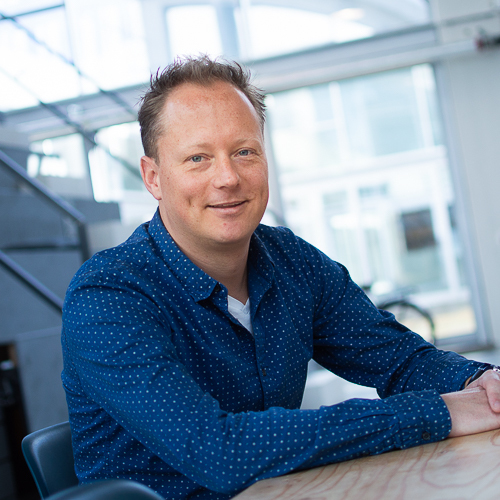
Dr. Reijmers is an expert in immuno-oncology and immunotherapy with over 20 years of experience. During his postdoctoral tenure, he conducted pivotal translation studies using mouse models, specifically focusing on CAR and TCR screening, setting the stage for innovative approaches in cancer treatment. Within LUMICKS, Dr. Reijmers spearheads the Cell Avidity services, showcasing his exceptional ability to interpret and communicate complex data generated by the high-throughput cell avidity platform.
Merika Reinau, Specialist, Global Research Technologies, Novo Nordisk

Marika Ejby Reinau is a Specialist at Novo Nordisk A/S in Research and Early Development. She received a PhD from the University of Aalborg in Denmark and has since 2006 worked within analysis development using liquid chromatography and capillary electrophoreses. She initially worked in GMP regulated environment and later in the Research and Early Development, so having learned to both develop methods with focus on detailed analysis of one API and methods that can be used for a large number of different molecules.
Nicole Renaud, PhD, Director, Global Co-Lead of Human Genetics and Targets, Discovery Science, Biomedical Research, Novartis

Nicole currently holds the position of Director and Co-Lead of Human Genetics and Targets within the Discovery Sciences department at Novartis' Biomedical Research division. Over her decade-long tenure with the company, she has experienced a notable career transformation, progressing from an individual contributor and computational biologist to co-leading a global data science team. Highlighting her commitment to cutting-edge research and innovation, she played key roles in initiatives focused on rapidly prototyping novel approaches to drugging and identifying targets through internal efforts and external partnering. Nicole's dedication to mentoring is a defining aspect of her professional identity. Recognizing the profound impact of mentorship on her personal and career development, she is passionate about fostering growth in others.
Karen Robbins, MD, Safety Physician and Clinical Lead, Immune Safety Knowledge Group, Patient Safety Oncology and Center of Excellence, AstraZeneca

Karen Robbins MD is a Senior Patient Safety Physician and clinical lead for the Immune Safety Knowledge Group at AstraZeneca. She is board certified in Allergy & Clinical Immunology and Pediatrics, and is actively involved in specialty-specific regional, national, and international professional societies. She has a keen interest drug hypersensivitiy questions through development, building cross-functional partnerships, and developing novel strategies to address these concerns.
Kerry Robert, Senior Vice President, Head of People & Culture, Entrada Therapeutics

Kerry Robert is the Head of People and Culture at Entrada Therapeutics, where she sets the strategy to attract and grow the best talent in the industry. She has over 15 years' experience in the field spanning multiple industries. She has been recognized for her progressive and human-centered approach to HR and is passionate about mentoring HR leaders of our future. Outside of work, she likes to run, explore her untapped artistic side, and listen to podcasts. Kerry holds an MS in Counseling Psychology from Northeastern University and a BS in Psychology from The George Washington University.
Nathan Robertson, PhD, Director, LabGenius
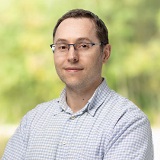
Nathan is currently a director/asset lead at LabGenius working towards AI-driven methods for optimization of T cell engagers in immuno-oncology. Prior to this recent role he was the Head of Protein Engineering at MiroBio working on the discovery of checkpoint agonist antibodies, following on from Group Leader of the Antibody Discovery team at OXGENE. Nathan had also spent 11 years as a Principal Scientist at Heptares Therapeutics working on the structural biology of GPCRs following a postdoc at the ICR and a PhD in Biophysics at Imperial College London.
Gabriel J. Rocklin, PhD, Assistant Professor, Pharmacology, Northwestern University

Gabriel Rocklin did his Ph.D. research at the University of California, San Francisco, supervised by Brian Shoichet and Ken Dill. As a postdoctoral fellow with David Baker at the University of Washington, he pioneered the use of large-scale protein design to understand protein biophysics. In 2019 he started his independent lab in the Department of Pharmacology and Center for Synthetic Biology at Northwestern University. There, his group develops high-throughput methods to understand protein biophysics and to design new protein therapeutics.
Luis Rodriguez, PhD, Bioproduction R&D Manager, R&D Bioproduction, FUJIFILM Irvine Scientific
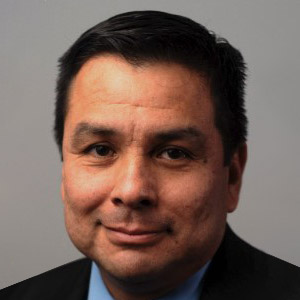
Luis Rodriguez, PhD, Bioproduction R&D Manager, FUJIFILM Irvine Scientific, heads the Life Science Bioprocessing team to lead the development of new media, advance process improvements, and provide technical support for the production of biotherapeutics. Dr. Rodriguez received his B.S. in Cell and Molecular Biology from California State University-Northridge and his PhD in Biochemistry, Molecular, and Cellular Biology from Cornell University.
Richard Rogers, PhD, Director, Product Sciences, Umoja Biopharma

Rich received his Ph.D. from the Johns Hopkins University in 2003. His research focused on SUMO modification of transcription factors. As a post doc, Rich joined the Institute for Systems Biology. At the ISB, Rich expanded his research on post translational modification by applying mass spectrometry to detect phosphorylation and other ubiquitin-like modifications in macrophages. In 2012, Rich joined the Analytical Sciences group at Amgen. At Amgen, Rich developed a mass spectrometry based multi-attribute method (MAM) for biotherapeutic characterization and release from QC. In 2015, Rich joined Just Biotherapeutics where he continued his work on MAM and started the MAM Consortium. In 2019, Rich joined BMS, in Seattle, where he applied the principles of MAM for cell-based therapies. Rich is currently at Umoja Biopharma, where he is leading the analytical strategy for two preclinical programs and a research team leveraging analytics, including mass spectrometry, to characterize the VivoVec platform.
Rizwan Romee, PhD, Associate Professor Medicine & Director, Haploidentical Donor Transplant Program, Dana-Farber Cancer Institute

Dr. Rizwan Romee is an associate professor at Dana Farber Cancer Institute, Harvard Medical School. His laboratory focuses on gene editing of NK cells to enhance their tumor targeting and also to overcome their inhibition in the immunosuppressive tumor microenvironment. He also leads DFCI's NK cell therapeutics initiative encompassing evaluating engineered NK cells in the clinic in combination with novel immunomodulatory agents.
Theodore Roth, MD, PhD, Resident, Clinical Pathology, Stanford University; Co-Founder, Arsenal Bio
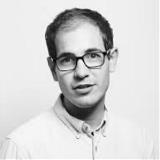
Dr. Theo Roth, MD, PhD was the founding CSO and is a scientific co-founder of Arsenal Biosciences. He completed his undergraduate and masters work at Stanford University and the NIH in biomedical informatics and systems biology. During his MD-PhD at UCSF, he developed non-viral genome targeting, a new efficient method for large scale genetic engineering of primary human immune cells without the need for complex viral vectors. He further developed robust methods of pooled knock-in screening, enabling rapid discovery of synthetic sequences to re-wire T cell genomes. This work has led to pre-clinical development of novel cell therapies for both autoimmune disease and solid tumors. He is currently his residency in clinical pathology at Stanford University.
Bonnie Rup, PhD, Biotechnology Consultant, Bonnie Rup Consulting

Bonita Rup is a biopharmaceutical development consultant, providing expert advice on bioanalysis, immunogenicity risk assessment, and related regulatory strategy aspects of biopharmaceutical development. Previously she was Research Fellow and lead for the Immunogenicity Discipline at Pfizer, Assistant Vice President of Protein Bioanalytics in Wyeth, and held various positions directing development and application of immuno-ligand binding assay technologies for PK, immunogenicity and protein impurity analysis, and other aspects of biopharmaceutical development. During her career, she has been involved in multiple regulatory filings during preclinical, clinical development and marketing approval of biopharmaceutical products. She has been a member of AAPS, EIP, European IMI ABIRISK consortium, and Biosafe; with these organizations, she has been a co-author for multiple publications related to monitoring immunogenicity and bioanalysis of therapeutic proteins. Bonnie received her B.S. from University of Massachusetts, Amherst, Ph.D. from University of Texas, Austin, and conducted postdoctoral research at Duke University and University of Rochester, NY.
Edwin A. Saada, PhD, Scientist, Infectious Diseases, Lawrence Livermore National Laboratories

Edwin Saada is a scientist within the Biosecurity group at Lawrence Livermore National Laboratory, spearheading initiatives to advance countermeasures against emerging infectious diseases. His primary focus lies in developing and optimizing high-throughput experimentation to bolster high-performance computing-powered models. Prior to pursuing a PhD in Microbiology, Immunology, and Molecular Genetics at UCLA, Edwin worked in biotech at a functional genomics startup. He conducted his postdoctoral research in the Systems Biology group at Sandia National Laboratories.
Volker Schellenberger, PhD, President & CEO, Amunix

Volker Schellenberger is President and CTO of Amunix Pharmaceuticals, which he co-founded in 2006. He initially served as Amunix’s Chief Scientific Officer and is the lead inventor of the company’s XTEN as well as XPAT platforms of protease-activated T cell engagers. Volker has over 25 years of industry experience in protein engineering and drug discovery. Prior to co-founding Amunix he served as head of Genencor’s protein engineering department. Volker received his PhD from Leipzig University (Germany) in 1986. He is author of over 40 scientific papers and inventor of more than 70 issued or pending patent applications. He is a recipient of the Karl Lohmann prize of the German Society of Biochemists. Amunix was acquired by Sanofi in 2022. Since then, Volker has been Head of Discovery for precision-activated biologics.
Mike Schmidt, PhD, Chief Scientific Officer, Alloy Therapeutics
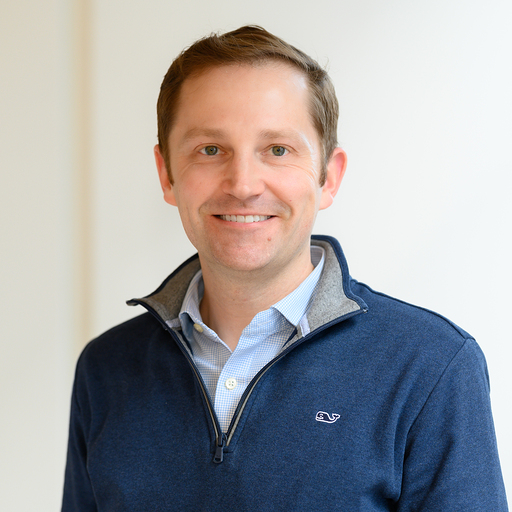
Mike Schmidt, PhD is an experienced biotherapeutic discovery and development expert managing technical innovation across Alloy’s platforms, services, and company formation. Previously, Mike was CSO at Ankyra Therapeutics, overseeing development of a differentiated cytokine therapy. Prior, Mike worked at Eleven Biotherapeutics and Compass Therapeutics and received his PhD from MIT, where focused on engineering of antibodies for improved targeting of solid tumors.
Desmond Schofield, PhD, Head of Business Development, EMEA, evitria AG
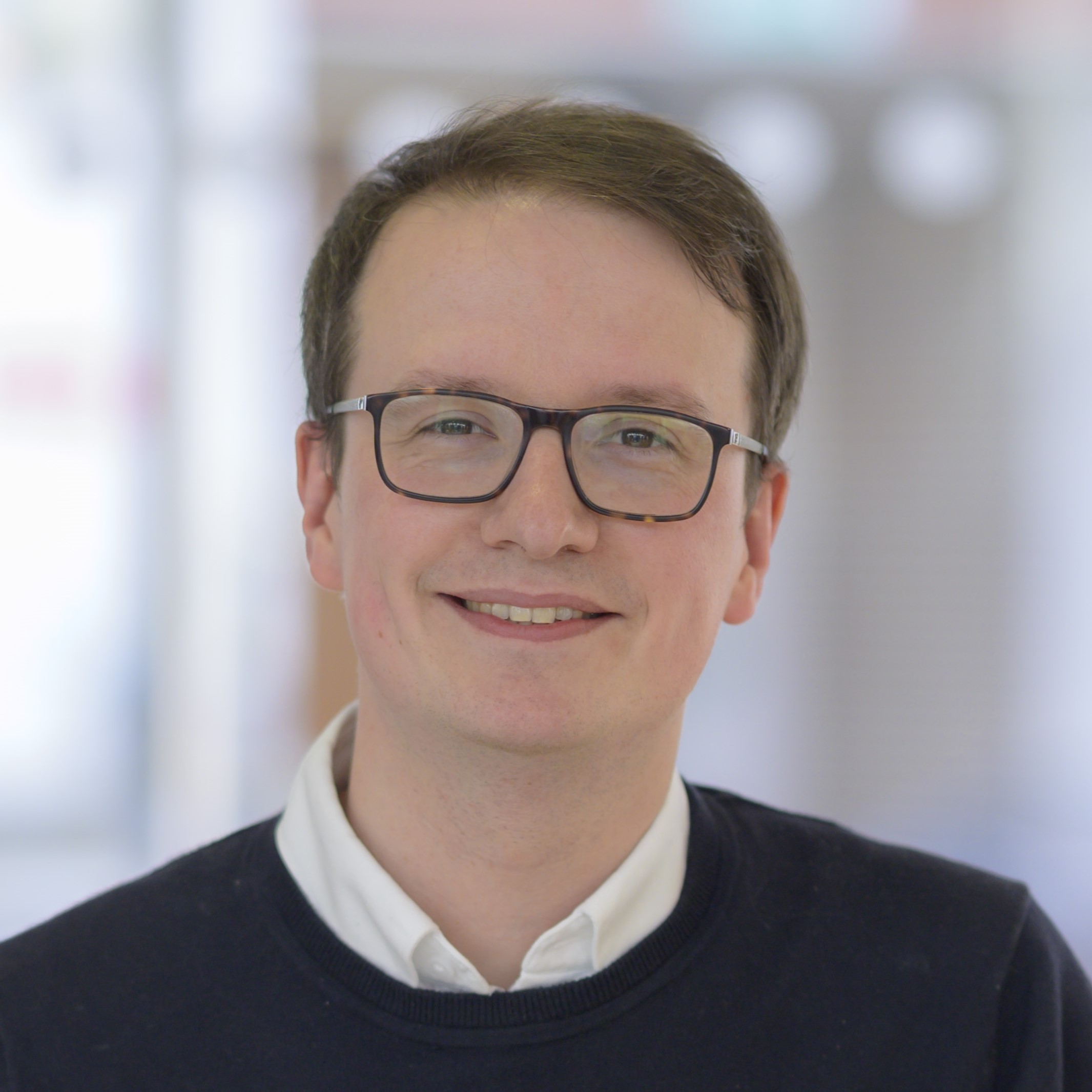
Desmond completed his doctorate in Biochemical Engineering at University College London, working in antibody fragment design, development and manufacturing, then moved into a wet-lab role focused on the scale up and production of proteins. Since joining evitria in 2020, he has supported hundreds of clients around the world with their antibody reformatting, engineering, and optimization projects.
Evan Scott, PhD, Kay Davis Professor, Biomedical Engineering & Microbiology-Immunology, Northwestern University, Founder & CEO, SNC Therapeutics, Inc.

Dr. Scott is the Kay Davis Professor of Biomedical Engineering at Northwestern University and the founder/CEO of SNC Therapeutics, Inc., an early stage AbbVie portfolio company. He has a BS and PhD in Biomedical Engineering respectively from Brown university and Washington University in St. Louis and completed his postdoctoral work at the EPFL in Switzerland. He received the NIH Director’s New Innovator, the National Science Foundation CAREER, and the Biomedical Engineering Society Mid-Career Awards, and is a fellow of the American Institute for Medical and Biological Engineering. His research focuses on the development of synthetic nonviral gene and drug delivery systems for applications in cancer immunotherapy, inflammation, and infectious disease.
Ekaterina Selivanovitch, PhD, Postdoctoral Researcher, Cornell Smith School of Chemical and Biomolecular Engineering, Cornell University

Ekaterina Selivanovitch received her BS in Chemistry from St. Francis College working on the synthesis of merocyanin dyes. She moved on to pursue an MS in Chemistry at St. John's University, under the guidance of Professor Philip Lukeman, exploring applications of DNA nanotechnology for viral sensing. This eventually led to Dr. Selivanovitch's pursuit of a PhD at Indiana University, where she worked with Professor Trevor Douglas on virus-like particle (VLP)-based nanotechnology. Her studies focused on the physical and chemical properties of porous biomaterials and the development of heterogenous biocatalyst. She is currently a postdoctoral research associate at Cornell University in the lab of Professor Susan Daniel, where she is developing cell-free methodologies for viral membrane proteins and studying lipid biophysics.
Srona Sengupta, MD, PhD, Resident Physician, Immunology, Johns Hopkins University

Srona Sengupta is an aspiring physician-scientist originally from the Chicago area. She is now essentially a Baltimorean after having pursued her undergraduate and MD/PhD training at Johns Hopkins. Her PhD focused on developing novel bispecific antibody engagers that could induce immune recognition and elimination of HIV-infected CD4+ T cells, where HIV-1 is known to persist and which is the primary barrier to a cure. She was drawn to this work initially due to her fascination with basic mechanisms of antigen processing, which became matched by the thrill in applying this knowledge to build applied immunologic tools. She is currently in her intern year of residency pursuing internal medicine, and will begin her research-track Dermatology residency starting from 2024, where she hopes to apply her background to understand tissue-resident immunology.
Jagesh V. Shah, Vice President, Gene Therapy Technologies, Sana Biotechnology

Jagesh V. Shah is the Vice President of Gene Therapy Technologies at Sana Biotechnology. He spent 15 years as a faculty member at Harvard Medical school melding together the disciplines of engineering, cell biology and systems biology towards new technologies and therapeutics for patients. At Sana Jagesh leads the research and early development of the Fusogen platform, a revolutionary technology to engineer targeted in vivo delivery of therapeutic biological payloads.
Rachel Liuqing Shi, PhD, Principal Scientist, Genentech, Inc.

Dr. Rachel Shi is currently a Principal Scientist in the Department of Biochemical and Cellular Pharmacology at Genentech Research & Early Development in South San Francisco, California. Rachel received her undergraduate degree from Tianjin University in China with a major in Pharmaceutical Science in 2011. Rachel then obtained her PhD in Analytical Chemistry with Prof. David Clemmer at Indiana University Bloomington and performed her postdoctoral research with Prof. Michael Gross at Washington University in St. Louis. Before joining Genentech in the summer of 2021, Rachel worked at Amgen and AbbVie where she provided analytical support for CQA assessment, extensive characterization, and comparability studies of therapeutic proteins. Rachel’s studies at Genentech focus on developing and applying mass spectrometry-based assays for bioanalytical and biotransformation studies in the large molecule drug portfolio.
Lei Shi, PhD, Senior Vice President, R&D, Biointron Biological
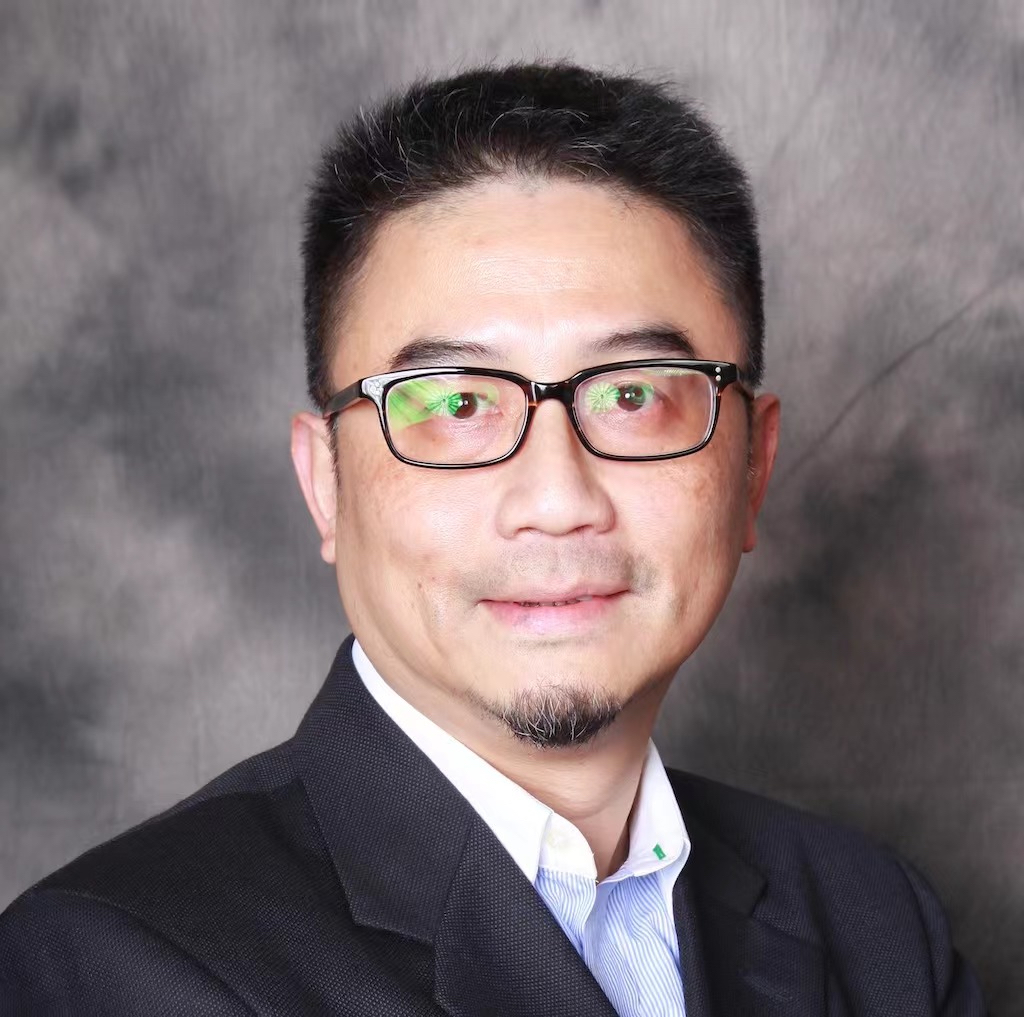
Lei Shi, PhD. is an SVP at Biointron. Prior to that, he worked for a series of biotech companies, including Virtuoso Therapeutics, Zai Lab, and Bird Rock. Lei had also worked at J&J in antibody discovery technology. He completed his Postdoc study at MGH and Harvard Medical School.
Jung-Eun (June) Shin, PhD, Machine Learning Scientist, Seismic Therapeutic

I am a machine learning scientist at Seismic Therapeutic, where we are developing immunology therapeutics through our platform combining machine learning, protein engineering, structural biology, and translational immunology. While leading one of our early-stage drug discovery programs, I apply deep learning models of protein sequence and structure for functional design of developable and non-immunogenic biologics. I received my doctorate in Debora Marks' lab at Harvard Medical School, where I developed and tested deep learning models for protein mutation effect prediction and protein design.
Jennifer M Shipman, Associate Principal Scientist, Protein & Structural Chemistry, Merck & Co Inc

Jennifer obtained her B.S in Biology from Juniata College and her M.S. in Biotechnology from Johns Hopkins University. Her experience in the pharmaceutical industry has been focused on molecular biology, protein expression biology, and protein biochemistry. Jennifer has been with Merck for the last 25 years and currently leads the protein expression group within the Protein and Structural Chemistry department, helping to support crystallography, cryo-EM, biologics, and pharmacology.
Leah Sibener, PhD, Co-Founder & Vice President, Therapeutic Discovery, 3T Biosciences, Inc.

Leah is a co-founder and Vice President of Therapeutic Discovery at 3T Biosciences. At 3T she leads the R&D operations and strategy, focusing on identifying new immunotherapy targets and engineering T cell receptor based therapeutics. Leah has co-authored work in high-impact journals such as Cell, Science, Nature Immunology, Immunity, Nature Genetics, and PNAS. She holds a bachelor’s degree in Biophysics from Johns Hopkins University, and a PhD in Immunology from Stanford University where she developed 3T’s target discovery platform in Chris Garcia’s research group. She was named one of Forbes’ 2018 30-under-30 in Healthcare. Prior to Stanford and 3T, Leah was a part of research teams at the Johns Hopkins Institute for Cellular Engineering in Jonathan Schneck’s Lab, as well as at Genentech in Early Discovery Immunology.
Dirk H. Siepe, PhD, Senior Research Scientist, Department of Experimental Radiation Oncology, The University of Texas MD Anderson Cancer Center

Dr. Siepe is currently a Senior Research Scientist at the MD Anderson Cancer Center in the Department of Experimental Radiation Oncology (ERO). He earned his PhD in Biochemistry from the Max-Planck-Institute of Biochemistry with Dr. Stefan Jentsch in the Department of Molecular Cell Biology. After completing his postdoctoral training at Genentech, Inc., he joined Dr. K.C. Garcia’s lab at Stanford University School of Medicine in the Department of Molecular and Cellular Physiology as a Research Scientist. His research focus lies in the deorphanization of the secreted and membrane proteome by employing proteo-genomic screening platforms and harnessing the power of protein engineering to delineate cellular signaling cascades in cancer. His research aims to expand the repertoire and accelerate the development of classical protein-based therapeutics by retasking naturally occurring proteins and re-engineering molecules to modulate cell signaling events and overcome pharmacological deficiencies of conventional drug discovery approaches.
Goncalo Silva, PhD, Senior Scientist, Biopharm Discovery, GSK

Senior Scientist in the Biopharm Discovery department at GSK (UK) for the past four years where I was responsible to help developing and embedding an automation platform to express and purify large panels of antibodies. Recent interest and development on programming and data analysis. PhD in Biochemistry on the topic of “Protein A Chromatography” taken in the University of Beira Interior (Covilha, Portugal) and in the Austrian Centre of Industrial Biotechnology (Vienna, Austria).
Eric Smith, PhD, Senior Director, Bispecifics, Regeneron Pharmaceuticals, Inc.
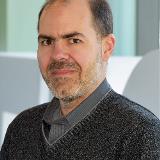
Dr. Eric Smith received his PhD in Microbiology and Immunology from Duke University in 1997. Following a postdoctoral fellowship at NYU he joined Regeneron in 2002 as a member of the Antibody and Trap Technologies group, where he worked on cytokine traps and related molecules. In 2008 he was a founding member of the Bispecific Antibodies team and is currently the Executive Director of Bispecifics at Regeneron.
Ernest Smith, Dr., Chief Scientific Officer / Senior VP Research, Vaccinex Inc.
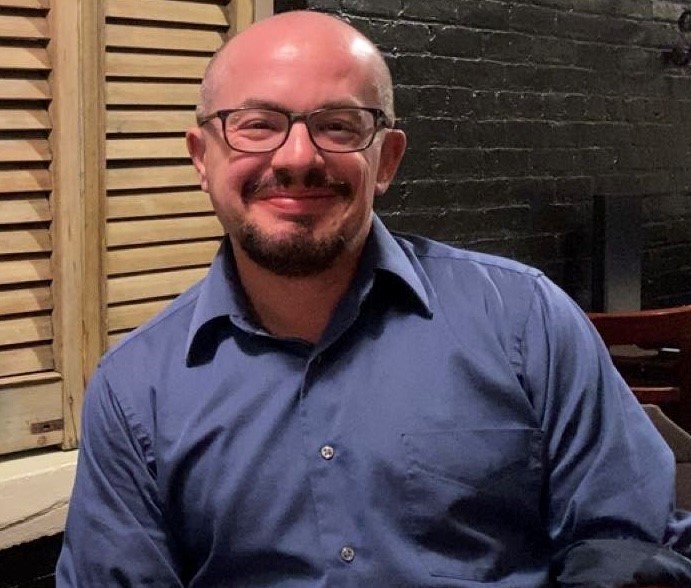
Ernest S. Smith, Ph.D. has served as Senior Vice President, Research and Chief Scientific Officer at Vaccinex since December 2008. Ernest previously served as our Vice President, Research and Chief Scientific Officer from April 2003 to December 2008 and our Research Director from June 2001 to April 2003. Prior to joining us, Dr. Smith was a research scientist at the University of Rochester. Dr. Smith received a B.A. in Biology from St. John Fisher College, and an M.S. and a Ph.D. in Immunology from the University of Rochester.
Zhiwei Song, PhD, Senior Principal Scientist, Bioprocessing Technology Institute, A*STAR

Dr. Song Zhiwei earned his Biochemistry PhD from the University of Michigan where he studied protein glycosylation in cancer cells and their interactions with plant lectins. He completed his post-doctoral research in MIT’s Biology Department, investigating the genetic control of apoptosis. Following that, he worked in Professor Daniel I.C. Wang’s lab at MIT’s Biotechnology Process Engineering Center (BPEC). In 2002, Dr. Song moved to Singapore. Currently, he is a Senior Principal Scientist at the Bioprocessing Technology Institute (BTI) of A*STAR, Singapore. His lab has been focused on developing novel expression vectors for antibody production, protein glycosylation, glycoengineering of CHO cells with different genome editing techniques, and production of antibodies with these glycosylation mutants for in vitro and in vivo characterizations.
Jamie B. Spangler, PhD, Associate Professor, Departments of Biomedical and Chemical & Biomolecular Engineering, Johns Hopkins University
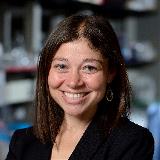
Dr. Jamie Spangler earned a Bachelor of Science degree in Biomedical Engineering at Johns Hopkins University and went on to complete a PhD in Biological Engineering at MIT under the supervision of Professor K. Dane Wittrup. She conducted postdoctoral training in Professor K. Christopher Garcia’s lab at Stanford University School of Medicine, and then launched her independent research group at Johns Hopkins University in July 2017, jointly between the departments of Biomedical Engineering and Chemical & Biomolecular Engineering. Dr. Spangler’s lab, located in the Translational Tissue Engineering Center at the School of Medicine, applies structural and mechanistic insights to re-engineer existing proteins and design new proteins that therapeutically modulate the immune response. In particular, her group is interested in engineering immune molecules such as antibodies, cytokines, and growth factors for targeted treatment of diseases such as cancer, infectious diseases, and autoimmune disorders. Dr. Spangler’s work has been recognized with honors including a National Defense Science and Engineering Graduate Fellowship, a Leukemia & Lymphoma Society Career Development Fellowship, a V Foundation Scholar award, and a Maryland Stem Cell Research Fund Discovery award.
Daniel Steiner, PhD, Vice President, Lead Generation, Molecular Partners AG

Daniel Steiner is Senior Vice President Research at Molecular Partners. In his previous role with Molecular Partners, Daniel built the department responsible for DARPin generation for all research pipeline projects, specifically establishing the DARPin platform for systemic PK-extension. While earning his PhD at the University of Zurich under Professor Andreas Pluckthun, Daniel established a novel in vitro selection system enabling the efficient selection of DARPins for complex antigens. In addition to his doctorate studies at University of Zurich, Daniel performed his undergraduate studies at the ETH Zurich and at the Imperial College London.
Matthias T. Stephan, MD, PhD, Professor, Translational Sciences and Therapeutics Division, Fred Hutchinson Cancer Center

Matthias Stephan is Professor in the Translational Sciences and Therapeutics Division at Fred Hutchinson Cancer Center in Seattle. After attending medical school in Germany, he trained with Dr. Michel Sadelain at Memorial Sloan-Kettering Cancer Center, where he pioneered auto-costimulation and trans-costimulation as molecular strategies to augment the function of CAR T cells in the microenvironment created by tumors. During his postdoctoral training at the Massachusetts Institute of Technology, Dr. Stephan developed a nanoparticle-based strategy to provide autocrine sources of adjuvant growth factor that support adoptively transferred, tumor antigen-specific T lymphocytes. Much of this work became the foundation for an immuno-oncology company (Torque Therapeutics, now Repertoire Immune Medicines). In 2017, the Stephan laboratory first published a nanoparticle-based method to genetically program antigen-recognizing capabilities into lymphocytes circulating in vivo,/i>, thus circumventing the time-consuming and elaborate ex vivo procedures that are used in clinics today. Based on this research, Fred Hutch spun out Tidal Therapeutics in 2019. In April 2021, Tidal was acquired by Sanofi. This now gives Dr. Stephan the opportunity to further develop his in situ reprogramming platform and rapidly apply it to ultimately help patients across a range of diseases.
Robert Stickel, PhD, Stanford

Bob Stickels is a Postdoctoral Fellow at Stanford University and the Gladstone Institutes in Ansuman Satpathy’s group where he is applying high-throughput experimental and computational efforts to enable new therapeutic modalities in the cell and gene therapy sector. For his PhD, Bob attended Harvard University and worked with Evan Macosko and Fei Chen at the Broad Institute at the intersection of high-throughput imaging, genomics tools, and laboratory automation. While at the Broad he was the co-inventor of the Slide-seq technology, allowing for unbiased gene expression measurements from tissue sections, leading to novel biological insights across many tissue settings and publications in Science, Nature, and Nature Biotechnology. Additionally Slide-seq was covered in the NIH Director’s Blog, and was named Nature Methods 2020 Method of the Year. As an undergraduate he received the Ronald McNair Scholarship from the National Science Foundation to study Biophysics at the University of Connecticut where he worked in the fields of structural biology and genomics. He then received an Amgen Scholarship to work in Rob Mitra’s group at Washington University St. Louis working on single-molecule protein sequencing technologies.
Lars Stockl, PhD, Managing Director, FyoniBio GmbH
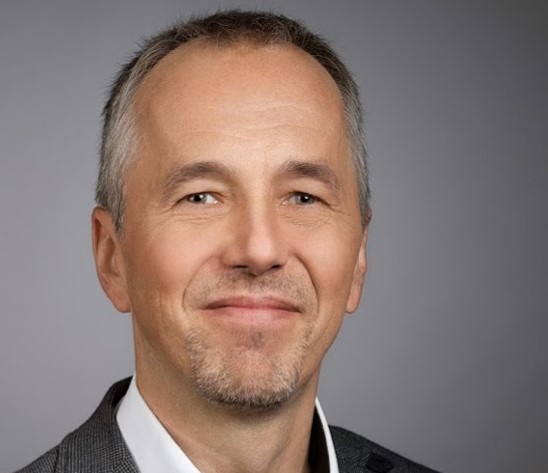
Lars Stockl is Managing Director at FyoniBio GmbH. He studied Chemistry at the Technical University of Munich, obtained his PhD at the Robert Koch-Institute /Berlin and gained experience in cell line engineering during his postdoc at the Charite / Berlin and the Breakthrough Breast Cancer Research / London. He was a leading scientist at Glycotope for 16 years before the spin out to FyoniBio was successfully performed on in February 2022.
Richard J. Suderman, PhD, Director R&D and Co-Founder, Nectagen, Inc.

Richard Suderman is the Director of Research and Development and co-founder of Nectagen, Inc. He is a co-inventor of the nanoCLAMP antibody mimetic platform and led the protein engineering campaign to develop a protease-, temperature- and alkali-resistant version of the nanoCLAMP scaffold. He also led the development of Nectagen’s product line of affinity capture reagents. He received his undergraduate in Chemical Engineering and his PhD in Biochemistry from Kansas State University and was a post-doctoral fellow at the University of Georgia before joining Nectagen.
Manhee Suh, PhD, CTO, Kactus

ManHee Suh, Ph.D. is the Chief Technology Officer for KACTUS. Dr. Suh is a protein biochemist with expertise in assay development and structural biology. At KACTUS, he has overseen the engineering and development of 2400+ recombinant protein products, including antigens for antibody drug discovery and cell and gene therapy reagents. Previously, Dr. Suh was the Chief Scientist at BioZax Inc., a Scientific Consultant for Agave BioSystems, and a Senior Research Scientist at Cornell University.
Hristo Svilenov, PhD, Associate Professor, Ghent University

Dr. Svilenov is currently an Associate Professor at the Faculty of Pharmaceutical Sciences, Ghent University. His research interests are in the development, formulation and manufacturing aspects of biotherapeutics. Before joining UGent, Dr. Svilenov was a postdoctoral researcher funded by a Peter and Traudl Engelhorn Fellowship and a grant from the Else Kroner-Fresenius Foundation in the group of Prof. Johannes Buchner at the Technical University of Munich. From 2016 to 2019, Dr. Svilenov did his PhD training supported by a Marie Sklodowska-Curie Fellowship under the supervision of Prof. Gerhard Winter at the Ludwig Maximilian University of Munich. He defended his doctoral thesis with the highest distinctions in Germany (summa cum laude) and received the AbbVie prize and the Carl-Wilhelm-Scheele of the German Pharmaceutical Society for his work. Dr. Svilenov is a pharmacist by training.
Nami Tajima, PhD, Assistant Professor, Physiology & Biophysics, Case Western Reserve University

Nami received her PhD in Molecular Biology from Jeremy Tame’s lab at Yokohama City University in Japan. She did postdoctoral research with Hiro Furukawa at Cold Spring Harbor Laboratory, New York. At Cold Spring Harbor Lab, she studied the pharmacology and molecular mechanism of NMDA receptors. In 2019, she became an Assistant Professor in the Department of Physiology and Biophysics at Case Western Reserve University.
Kanako Tatsumi, PhD, Global Project Leader, Project Planning & Coordination, Chugai Pharmaceutical Co. Ltd.

Kanako Tatsumi is a global project leader at Chugai Pharmaceutical Co. Ltd. She joined Chugai Pharmaceutical in 2010. She has worked for the development of a novel antibody with improved therapeutic index targeting solid tumor over 10 years. Currently, she is also serve as a global project leader of antibody projects for oncology in clinical stage. She has experiences of antibody engineering, antibody library display pharmacology as researcher, and project leader.
Susana Teixeira, PhD, Research Associate Professor, University of Delaware; Guest Researcher, NIST Center for Neutron Research

Susana Teixeira works at the Center for Neutron Science of the University of Delaware, as a guest researcher at the National Institute for Standards and Technology (NIST) where she is as an instrument scientist. Susana previously worked for 12 years at the European Photon and Neutron campus in France, where she held a joint position as a Biophysics Lecturer (Keele University, UK) and neutron crystallography instrument scientist. Susana has a long-standing interest in developing sample-environment techniques applied to structure and stability studies of proteins with biopharma or food-related applications. She currently leads the development of high-pressure studies for small angle neutron scattering studies of biomolecules at the NIST Center for Neutron Research.
Peter M. Tessier, PhD, Albert M. Mattocks Professor, Pharmaceutical Sciences & Chemical Engineering, University of Michigan
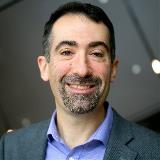
Peter Tessier is the Albert M. Mattocks (Endowed) Professor in the Departments of Chemical Engineering, Pharmaceutical Sciences and Biomedical Engineering, and a member of the Biointerfaces Institute at the University of Michigan in Ann Arbor, MI. He received his Ph.D. in Chemical Engineering from the University of Delaware (2003, NASA Graduate Fellow) and performed his postdoctoral studies at the Whitehead Institute for Biomedical Research at MIT (2003-2007, American Cancer Society Fellow). Tessier started his independent career as an assistant professor in the Department of Chemical & Biological Engineering at Rensselaer Polytechnic Institute in 2007, and he was an endowed full professor at Rensselaer prior to moving to the University of Michigan in 2017. Tessier’s research focuses on designing, optimizing, characterizing and formulating a class of large therapeutic proteins (antibodies) that hold great potential for detecting and treating human disorders ranging from cancer to Alzheimer’s disease. He has received a number of awards and fellowships in recognition of his pioneering work: Pew Scholar Award in Biomedical Sciences (2010-2014), Humboldt Fellowship for Experienced Researchers (2014-2015), Young Scientist Award from the World Economic Forum (2014), Young Investigator Award from the American Chemical Society (2015) and NSF CAREER Award (2010-2015).
Barbara Tevelev, PhD, Senior Scientist, Cell Line Development, Biotherapeutics Pharmaceutical Sciences, Pfizer

Barbara has been part of the Bioprocess Research and Development organization at Pfizer BioPharma for over two decades. She has used her molecular skills to develop cell lines for production of antibodies, fusion proteins, vaccines and biosimilars and participated in the writing of many INDs. In addition, she has made significant contributions in the last stage arena and authored several BLAs.
Ben Thomas, Senior Director, External Innovations and Operations, Oxford Biotherapeutics

Running the UK and US Oncology Target Identification, Target Validation, & Therapeutic Antibody Discovery teams for our research collaborations with Boehringer Ingelheim, Immunogen, Kite/Gilead, and Genmab in bispecifics, ADCs, CAR Ts, and antibody-based therapeutics. Previously I've worked at Adaptimmune, leading HLA peptide oncology target identification for TCR-based cell therapies and before that was a researcher at the University of Oxford.
Dori Thomas-Karyat, PhD, Founder & CEO, Synthis Therapeutics

I obtained my PhD in Immunology from Washington University School of Medicine in St. Louis and then moved to New York City to do a Cancer Research Institute funded post-doctoral fellowship at Memorial Sloan Kettering Cancer Center to study the interface of cancer and the immune system. From there I was a drug discovery project leader in two large pharmaceutical companies, AbbVie and Roche for six years. I am currently the Founder/CEO of Synthis Therapeutics, an early stage biotech company based in NYC, developing novel targeted therapies to restore immune function in cancer patients.
Nathan D. Thomsen, PhD, Director, Protein Therapeutics, Gilead Sciences Inc.

Nathan Thomsen is a Director of Protein Therapeutics at Gilead Sciences Inc. His team’s current research is focused on combining structure-guided design and display methodologies to optimize the function and drug like properties of next generation protein therapeutics, develop novel platform technologies and enable new modalities. Nathan received his PhD from UC Berkeley where he studied the structural biology of ATP-dependent molecular machines with James Berger, and completed post-doctoral studies in protein engineering at UCSF with Jim Wells.
Pamela A Trail, PhD, Consultant, Oncology Research, AGL Biotechnology Consultants LLC.

Pamela A. Trail, PhD is an internationally recognized expert in oncology drug research and development with over 30 years of experience including antibody-drug conjugates, bispecific T cell engagers, immunomodulatory antibodies, tumor-directed immune modulators and small molecule drugs. Her work has led to multiple IND filings and four approved oncology drugs. Dr. Trail has published extensively and is a co-inventor on multiple small molecule and biologic based patents. Dr. Trail has held senior leadership roles at Bristol-Myers Squibb, Bayer Healthcare, Seattle Genetics, MedImmune, Regeneron and Molecular Partners.
Nathan D. Trinklein, PhD, Co-Founder and President, Rondo Therapeutics

Nathan is a co-founder of Rondo Therapeutics and currently serves as President and CSO. Prior to starting Rondo, Nathan was Chief Technology Officer at Teneobio where he played a key role in starting the company and led the team that was responsible for lead discovery, lead optimization, and development of the T-cell engager platform that was acquired in 2021. Prior to Teneobio, Nathan was a co-founder and CEO of SwitchGear Genomics, a venture-backed HTS platform company that was acquired in 2013. Earlier in his career, Nathan served as the Technical Director of the Stanford ENCODE project and received his Ph.D from Stanford University. Nathan also serves on the Board of Governors for the Stanford Medicine Alumni Association. Nathan has published over 30 peer-reviewed papers and is an inventor on over 15 patents.
Nathan L. Tumey, PhD, Associate Professor, Pharmaceutical Sciences, SUNY Binghamton
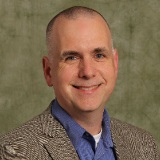
L. Nathan Tumey joined Binghamton University in 2017, following 15 years of experience in the pharmaceutical and biotechnology industry. During his years in the pharmaceutical industry, Dr. Tumey was a key leader in multiple drug-discovery programs for inflammatory diseases and oncology. He has been a leader in developing new site-specific ADC conjugation technology, in particular as it applies to mitigating PK and metabolism concerns. His current research focus at Binghamton University is on the application of antibody-drug conjugates and related modalities for the treatment of auto-immune disorders and rare diseases. Additionally, his lab investigates bioconjugate stability, ADC linker design and new modalities for targeted drug-delivery.
Pelin Uluocak, PhD, Principal Research Scientist, Immunocore Ltd.

Pelin Uluocak is a Principal Scientist in Protein Engineering department at Immunocore leading a team of scientists in New Technologies group. She received her DPhil degree in Biochemistry from Oxford University, followed by a post-doctoral training at the Sir William Dunn School of Pathology, Oxford University.
Vasily Vagin, PhD, Associate Director, Molecular Bioanalytics, Moderna

Dr. Vasily Vagin is a seasoned biotech professional specializing in the bioanalytical field, currently serving as the Associate Director of Molecular Bioanalytics at Moderna. He brings a unique blend of expertise in assay development and regulatory submissions, which is instrumental in his role supporting clinical PK/PD analysis with particular focus Next-Generation Sequencing (NGS), quantitative Polymerase Chain Reaction (qPCR), and digital droplet Polymerase Chain Reaction (ddPCR) assays. Before joining Moderna, Dr. Vagin supported preclinical and clinical method development and sample analysis at Sana Biotechnology and other cell and gene therapy biotech companies. These experiences have honed his skills and deepened his understanding of bioanalytics. Dr. Vagin obtained his joint PhD from UMMAS Medical School and the Institute of Molecular Genetics, where he studied the RNAi mechanism. This academic background provides a solid foundation for his work in the biotech sector. Committed to staying at the forefront of his field, Vasily consistently keeps up with the latest scientific literature in the bioanalytical field and always eager to incorporate new technology into his work, with the potential to revolutionize healthcare. Before joining Moderna, Dr. Vagin supported preclinical and clinical method development and sample analysis at Sana Biotechnology and other cell and gene therapy biotech companies. These experiences have honed his skills and deepened his understanding of bioanalytics. Dr. Vagin obtained his joint PhD from UMMAS Medical School and the Institute of Molecular Genetics, where he studied the RNAi mechanism. This academic background provides a solid foundation for his work in the biotech sector. Committed to staying at the forefront of his field, Dr. Vagin consistently keeps up with the latest scientific literature in the bioanalytical field. He is always eager to incorporate new technology into his work, with the potential to revolutionize healthcare. His dedication to his role and passion for his field are testament to his commitment to driving progress in biotech.
Daniel A. Vallera, PhD, Lion Scholar and Professor; Director, Section on Molecular Cancer Therapeutics; Professor, Therapeutic Radiology, University of Minnesota Masonic Cancer Center
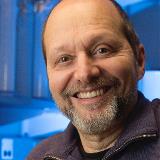
Professor of Radiation Oncology and member of the NCI-designated Mesonic Cancer Center, University of Minnesota Director of the Laboratory of Molecular Cancer Therapeutics. Currently, Lion Scholar. PhD from Ohio State University in Immunology and Oncology 1978. Past Leukemia Society and ACS scholar. Over 200 career publications on PubMed. Specialist in the genetic engineering of new anti-cancer drugs designed to use antibodies to selectively target carcinoma and leukemia. Have assembled a drug facility at the U of M that allows cGMP production of biological drugs. Have FDA sponsored 3 drugs and taken these from Bedside to the clinic.
Linh Van, PhD, Head, Clinical Pharmacology and Pharmacometrics, Moderna

Linh Van is the head of Clinical Pharmacology & Pharmacometrics at Moderna overseeing a group of quantitative drug developers to support model-informed drug development (MIDD). Linh obtained her PhD at the University of Sheffield in conjunction with AstraZeneca and SimCYP Ltd. She continued her Pfizer post-doctoral training at the University of Southern California within the Biomedical Simulation Resource Group (BMSR). Previously she worked at Novartis in the Pharmacometrics Modeling & Simulation group and before that had worked at Bristol Myers Squibb providing both clinical pharmacology and pharmacometrics support to teams in various therapeutics. Linh has over 16 years of experience in the pharmaceutical industry providing innovative solutions to complex problems.
Floris Van Delft, PhD, Founder & CSO, Synaffix BV

Floris van Delft graduated in organic chemistry from Leiden University (1996, with honors). After a postdoctoral stay at the Scripps Research Institute (San Diego, USA), he has held assistant/associate professorship positions at the University of Amsterdam (1998-1999) and Radboud University Nijmegen (2000-2013), as well as a special professorship at Wageningen (2015-2020). During his academic career, his research was focused primarily on click chemistry, carbohydrate chemistry, and protein conjugation technologies. In 2010, Floris co-founded Synaffix, the company he became the full-time chief scientific officer (CSO) for in 2014. In this role, Floris has been the driving force behind the invention of the proprietary technologies that form the basis of Synaffix’s best-in-class antibody-drug conjugates (ADCs) for targeted cancer therapy and beyond. Floris has co-/authored >150 peer-reviewed publications and is the co-/inventor of >35 patents.
Arnout Van Hyfte, Head of Products & Platform, BioStrand, Products & Platform, BioStrand, IPA (ImmunoPrecise Antibodies)
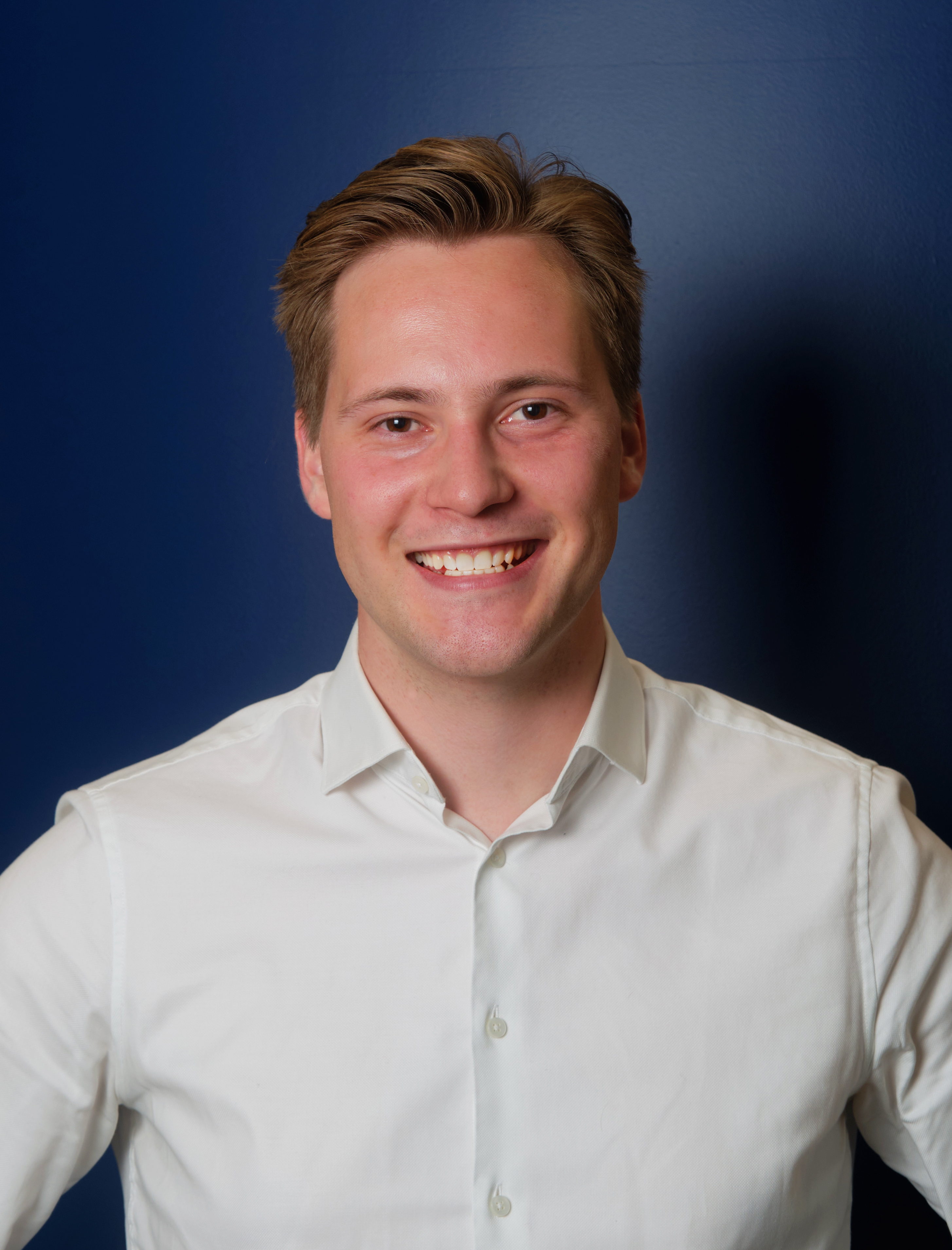
Arnout Van Hyfte’s journey with BioStrand, now a subsidiary of IPA (ImmunoPrecise Antibodies), began in 2019 as a key member of the founding team. He has played a pivotal role in shaping the company's commercial strategies, setting the stage for its remarkable growth, and building a robust infrastructure that forms the very foundation of BioStrand's operations. Arnout oversees the development team, ensuring their seamless coordination and fostering a culture of innovation.
Avanish Varshney, PhD, Associate Director, Biologics Innovation & Discovery (BID), WuXi Biologics
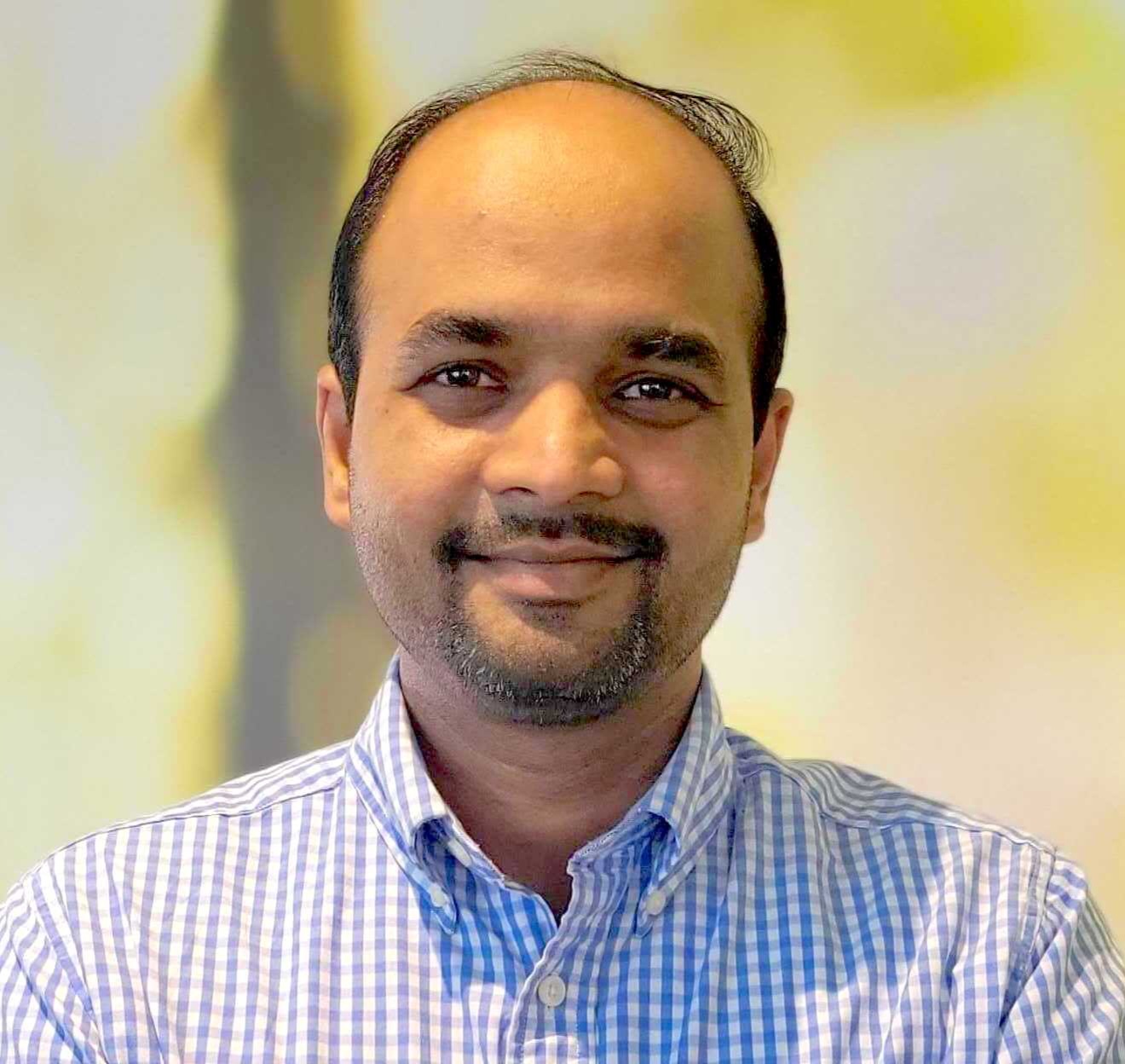
Dr. Avanish Varshney currently serves as Associate Director of Integrated Project Service Center and oversees the newly established Boston Research Center site in Natick. Dr. Varshney specializes in therapeutic antibody discovery, including bispecific and multi-specific antibody platforms, including preclinical development. He holds 10 patents and authored 20 research articles. He obtained his PhD from AIIMS, New Delhi and completed his postdoctoral training at the AECOM in the Bronx, New York.
Sujatha Venkataraman, PhD, Associate Research Professor, Pediatrics Hematology Genops, University of Colorado Denver

Dr. Venkataraman (PhD) is an Associate Research Professor in the Department of Pediatrics and neuro-oncology division at The University of Colorado, Anschutz, and Children’s Hospital Colorado and the Department of Pharmacology, University of Colorado, Anschutz. She is an esteemed member of The Morgan Adams Foundation Pediatric Brain Tumor Research Program at the University of Colorado, Anschutz. Her current focus lies within the realm of advancing immunotherapy techniques for pediatric brain tumors. She is particularly interested in developing the novel CAR T cell therapy for a fatal brain tumor in children called DIPG (Diffuse Intrinsic Pontine Glioma). Dr. Venkataraman earned her PhD from the Indian Institute of Technology, India, and subsequently finished her postdoctoral training in the field of free radicals and radiation oncology at the University of Iowa, Iowa City. Since 2009, she has dedicated her expertise to the University of Colorado, Anschutz, Medical Campus, and she recently attained the rank of associate professor within the Department of Pediatrics. Throughout her career, Dr. Venkataraman has secured both private and federal funding with her experience in investigating novel therapeutic targets to treat brain tumors.
Erik Vernet, PhD, Senior Director, External Partnerships, Digital Science & Innovation, Novo Nordisk

Erik has a background in Biotechnology from the Royal Institute of Technology in Stockholm, Sweden, from where he earned his PhD working on alternative scaffold affinity proteins. This was followed by postdoctoral training on high-throughput protein production and characterisation at the Novo Nordisk Foundation Center for Protein Research in Copenhagen, Denmark. After joining Novo Nordisk A/S in Denmark in 2011, Erik has held various project and line manager positions in protein/peptide/antibody science and laboratory informatics. Erik is currently managing several external collaborations within the company´s Digital Science & Innovation area.
Jyothsna Visweswaraiah, PhD, Director, Biotherapeutics, Drug Creation, Seismic Therapeutic

Dr. Jyothsna Visweswaraiah is an accomplished leader with extensive experience in drug development, having successfully advanced new therapies into clinical trials. Currently, she serves as the head of the Biotherapeutics group under the Drug Creation Department at Seismic Therapeutic.
Sandro Vivona, PhD, Senior Director of Biochemistry and Biophysics, Synthekine, Inc.

Sandro is Director of Biochemistry and Biophysics at Synthekine and has been with the company since its formation in 2019. He joined Synthekine after six years at Stemcentrx/Abbvie, where he was a principal scientist and led a biochemistry, biophysics, and structural biology group supporting therapeutic and bioanalytical antibody discovery. Prior to Stemcentrx/Abbvie he was a postdoctoral fellow and a PhD visiting scholar with Axel Brunger at Stanford University, where he published a number of biochemical and structural articles regarding the membrane fusion machinery comprising the SNARE proteins, its regulators, and its NSF/alphaSNAP-mediated recycling system. Sandro started and obtained his PhD from the University of Padua (Italy), where he also received an M.S. in Industrial Biotechnology and a B.S. in Biotechnology.
Michail Vlysidis, PhD, Senior Engineer, AbbVie

Dr. Vlysidis obtained his PhD in Chemical Engineering at the University of Minnesota, Twin Cities, studying and modeling the stochasticity of biochemical reaction networks. With over 6 years of experience in the industry, he has made significant contributions to the fields of scientific software development and engineering. Currently serving as a team leader at AbbVie, Dr. Vlysidis' primary focus is on supporting the biologics organization in capturing and analyzing experimental data. He possesses a deep understanding of protein properties and leverages innovative protein language models to further enhance research in this area. Prior to joining AbbVie, he worked at Intel, where his expertise was instrumental in supporting R&D research on semiconductors and cutting-edge technology. With a strong academic background and industry experience, Dr. Vlysidis is dedicated to driving advancements at the intersection of chemical engineering, software development, and AI/ML models.
Willy Voje, PhD, Senior Data Scientist, Protein Language Models, Evotec

I am a senior data scientist at Just Evotec Biologics. My work is primarily focused on the analysis of library-based antibody screening campaigns that are identifying early-stage binders and generating antibody stability data sets. Recently, I have been exploring the application of large language protein models for the design and optimization of antibodies as well as the prediction of antibody properties from sequence. I earned my PhD from the University of Washington's chemical engineering department where I studied synthetic biology under James Carothers.
BjOrn Voldborg, MSc, Head, National Biologics Facility, DTU Bioengineering, Technical University of Denmark

BjOrn Voldborg has more than 20 years of experience working with recombinant protein expression from both academic and industrial settings. BjOrn was team leader in the biotech company Pharmexa A/S, responsible for molecular cloning and expression of protein-based drug candidates. From this, he went to the NNF Center for Protein Research at the University of Copenhagen as Head of the Protein Production Unit, and, since 2012, BjOrn has been heading the CHO Cell Line Engineering project dedicated to the engineering of improved protein production cell factories, and since 2021 he has been heading the Cell Line and Protein Production in the National Biologics Facility at the Technical University of Denmark.
Alan Wahl, PhD, CEO, Abacus Bioscience, Inc.

Alan has 30+ years of successful research and drug development experience in oncology and immunological disease. His early work in teams developing Carboplatin and TAXOL prompted a two-decade focus on improving antitumor selectivity via antibody targeted drug delivery, and now targeted immune activation. He’s held scientific and executive leadership positions at Seagen (Seattle Genetics), Trubion, Biogen Idec, AbbVie, Ambrx, and Bristol Myers Squibb, and is a retained advisor to numerous biotech, pharma, and venture firms. Alan received his MS and PhD in Biochemistry and Biophysics at the University of Rochester and post-doctoral training in Experimental Oncology at Stanford.
Andrew B. Waight, PhD, Senior Director, Machine Learning, Discovery Biologics & Protein Sciences, Merck Research Labs

Andrew Waight is a Senior Director at Merck and Co. and is the team lead on the MRL Discovery Biologics AI/ML initiative to develop and deploy computational tools to help scientists make informed decisions and deliver better clinical candidates faster.
Laura Walker, PhD, Head, Infectious Disease Biotherapeutic Discovery & Engineering, Moderna

Laura M. Walker is the Sr. Director of Antibody Sciences at Adimab and the Chief Scientific Officer and a co-founder of Adagio Therapeutics. Her team at Adimab is focused on understanding human B cell responses to viral infection and discovering broadly neutralizing antibodies to a wide variety of emerging viral pathogens, including Ebola, Zika, yellow fever, and SARS-CoV-2. At Adagio, Laura oversees a broad portfolio of research in the area of viral immunology, including the identification of potent and broadly neutralizing antibodies to advance into clinical development. Prior to joining Adimab in 2012, Laura earned her Ph.D. in Immunology and Microbiology at The Scripps Research Institute and completed a post-doctoral research fellowship in Immunology at The University of California-San Francisco.
Wei Wang, PhD, Principal Scientist, Therapeutic Discovery, Amgen, Inc.

Dr. Wei Wang is a Senior Principal Scientist in the Therapeutic Discovery department of Amgen Inc. Since joined Amgen in 2006, she has worked on research and development of numerous biological therapeutics. She has made invaluable contributions to several biotherapeutics in clinical trials and three in market. She has co-authored over 20 research study reports for IND filing, over 40 peer-reviewed publications and contributed to 8 patents. She earned her PhD in Biochemistry from Hong Kong University of Science and Technology, followed by postdoctoral training at UCLA School of Medicine. She has near 30 years of experience on the application of SPR technology in the research and development of biotherapeutics.
Wei Wang, PhD, Professor, Chemistry and Biochemistry, University of California San Diego

Wei Wang is a Professor in the Department of Chemistry and Biochemistry and Department of Cellular and Molecular Medicine at University of California, San Diego (UCSD). His research is focused on uncovering the regulatory architecture of the genome and understanding the underlying principles at genomic and molecular levels. One of the focus areas of his lab is to develop new AI technologies for engineering antibody and protein binding to specific targets.
Yan Wang, PhD, Principal Scientist, Takeda

Yan Wang is currently Associate Scientific Fellow in Analytical Development at Takeda Pharmaceuticals. Her expertise is in analytical method development, validation, and execution to support process and formulation development, characterization, release testing, and analytical filing of a wide variety of recombinant biotherapeutic candidates. Yan obtained her PhD in Biochemistry at Boston University School of Medicine and has 15 years of professional experience in biotechnology analytical development space.
Jordon Wang, PhD, COO, Senior Vice President, Technology Development, AvantGen
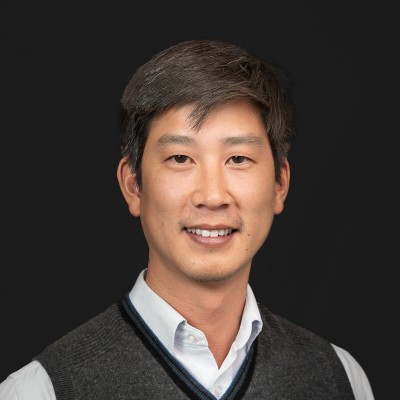
Dr. Jordon Wang is the Chief Operating Officer and Senior Vice President of Technology Development at AvantGen. The team is dedicated in accelerating antibody-based therapeutics for their scientific partners by using innovative platforms. Prior to joining AvantGen, Jordon served as VP of Technology Development and VP of Antibody Discovery at LakePharma, now part of Curia. He earned a B.S. in Biological Sciences and a Ph.D. in Cancer Biology at Stanford University.
Jun Wang, Ph.D., Director of Scientific Engagement, GemPharmatech
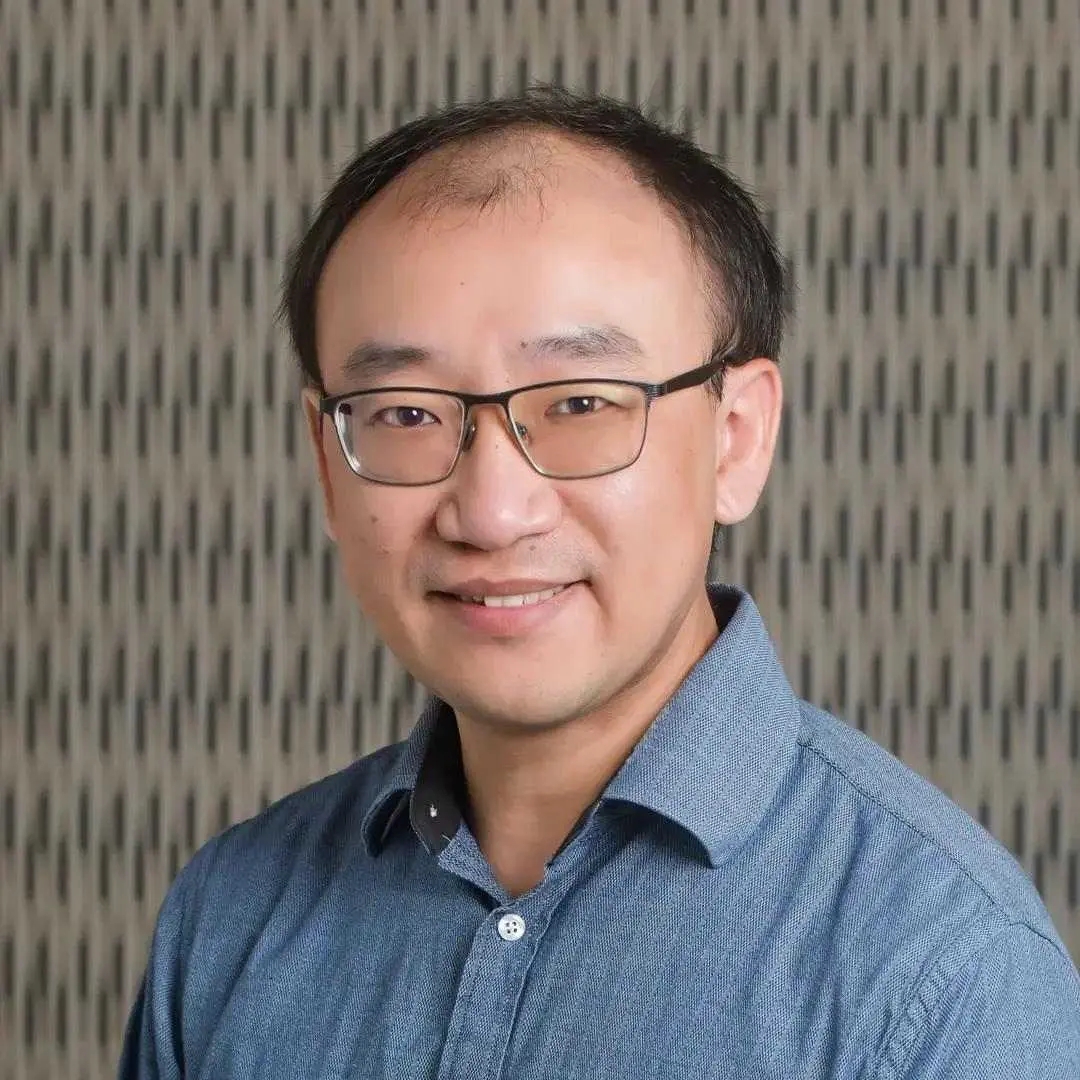
Dr. Jun Wang has over 15 years of experience in biomedical research. Prior to joining GemPharmatech, he served as an Associate Director of Research at Explora Biolabs/Charles River. He has extensive experience with genetic engineering and mouse models for drug discovery in various therapeutic areas. Dr. Wang holds a Ph.D. in Developmental Neurobiology from the City of Hope Irell & Manella Graduate School of Biological Sciences and received his postdoctoral training in pediatric brain cancer research.
E. Sally Ward, PhD, Director, Translational Immunology; Professor, Molecular Immunology, Centre for Cancer Immunology, University of Southampton
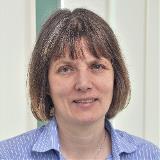
Sally Ward completed her PhD research in the Department of Biochemistry at Cambridge University in 1985 under the mentorship of Professor David Ellar. From 1988 to 1990, she carried out research on antibody repertoire technology in Sir Greg Winter’s laboratory at the MRC Laboratory of Molecular Biology in Cambridge. In 1990 she joined the University of Texas Southwestern Medical Center, Dallas, as an Assistant Professor. From 2002-2014, she was a Professor in the Department of Immunology at the same institution and in 2004 was appointed to the Paul and Betty Meek-FINA Professorship in Molecular Immunology. Since 2014, she has been a Professor at Texas A&M University Health Science Center, and has recently been appointed as Director of Translational Immunology and Professor of Molecular Immunology at the Centre for Cancer Immunology in Southampton, U.K. In 2010, she was a founding co-organizer of the Gordon Research Conference ‘Antibody Biology and Engineering’. She is currently vice president of the Antibody Society. Her interdisciplinary research involves the use of a combination of fluorescence imaging, protein engineering and in vivo studies to develop antibody-based therapeutics to treat cancer and autoimmunity.
Trevor Wattam, PhD, Scientific Leader, Antibody Discovery, GlaxoSmithKline

Since graduating in 1989 I have been working in the field antibody discovery by in-vivo and in-vitro methods. In my current role I am working to produce the next generation of antibody therapeutics for patients and lead a team of dedicated professionals in in-vivo antibody discovery. Together, we run a state of the art human antibody transgenic mouse platform for the generation of antibodies utilising novel immunisation methods that are capable of generating therapeutic grade high affinity (single digit pM), high potency, target specific antibodies. My many years of experience in the field of antibody discovery and characterisation have allowed me to develop novel immunisation methods that speed up the immunisation process leading to better antibodies faster.
Benjamin Weiche, PhD, Senior Scientist, Roche Diagnostics GmbH

Background in biochemistry and over 7 years of experience in biologics analytics covering research and development in Biotech and Big Pharma. Particularly involved in setting up and validating meaningful Developability assessment platforms and with a strong interest in using data science and automation to get the most out of our assays and analytical results for early and late stage biologics development.
Louis M. Weiner, MD, Professor & Director, Oncology, Lombardi Comprehensive Cancer Center, Georgetown University
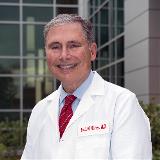
Dr. Louis Weiner is director of Georgetown Lombardi Comprehensive Cancer Center, one of 49 National Cancer Institute (NCI)-designated comprehensive cancer centers in the United States. He holds the Francis L. and Charlotte G. Gragnani Chair and is professor of oncology and chair of the Department of Oncology at Georgetown University Medical Center. He also serves as the Director of the MedStar Georgetown Cancer Institute, a cancer service line serving patients in the Washington DC and Baltimore metropolitan areas. He is responsible for the operation and development of the cancer center, including its research, clinical, and educational missions. The clinical mission includes leading the MedStar-Georgetown Cancer Network in the metropolitan Washington area. Weiner is known for his laboratory and clinical research focusing on new therapeutic approaches that mobilize the patient’s immune system to fight cancer using monoclonal antibodies and other modalities of therapy. His current research focuses on identifying and therapeutically exploiting mechanisms employed by malignant cells to combat immune destruction. Prior to joining Georgetown Lombardi as director in 2008, Weiner served as chairman of the medical oncology department and vice president for translational research at Fox Chase Cancer Center in Philadelphia, PA, and also served as professor in the department of medicine at Temple University School of Medicine. He is an active member of the American Society of Clinical Oncology and the American Association for Cancer Research (AACR), and founded the AACR Cancer Immunology Working Group. He has served as chair of the NCI Board of Scientific Counselors for Clinical Sciences and Epidemiology and as a member of the NCI Clinical Trials Advisory Committee (CTAC). He also served on the NCI’s blue ribbon panel working group on immunotherapy for the National Cancer Moonshot Initiative and the Advisory Panel of the National Institutes of Health (NIH) Center for Scientific Research (CSR), which administers NIH research grants. He is recipient of the 2019 AACR Distinguished Public Service Award. Weiner earned his bachelor degree in biology with honors from the University of Pennsylvania and his M.D. from Mount Sinai School of Medicine. After completing his internship, residency, and service as chief medical resident at the University of Vermont’s Medical Center Hospital, he held clinical and research fellowships in hematology and oncology at Tufts University School of Medicine in Boston.
Brian Weist, PhD, Senior Research Scientist II, Immunology, Gilead Sciences Inc.

Brian is currently a Senior Research Scientist within the Oncology department at Gilead Sciences. Brian’s research has focused on developing both small and large molecule therapeutics targeting regulatory T cells to reduce immunosuppression in solid tumors. Prior to working at Gilead, Brian earned his PhD studying T cell signaling in the context of transplant tolerance at UC Irvine. Following up on his graduate training, Brian completed a postdoctoral fellowship at UC Berkeley where he studied the development of regulatory T cells in the thymus.
James A. Wells, PhD, Professor, Departments of Pharmaceutical Chemistry and Cellular & Molecular Pharmacology, University of California, San Francisco

Wells’s group pioneered the engineering of proteins, antibodies, and small molecules that target catalytic, allosteric, and protein-protein interaction sites; technologies including protein phage display, alanine-scanning, engineered proteases for improved hydrolysis, bioconjugations, N-terminomics, disulfide “tethering” (a novel site-directed fragment-based approach for drug discovery); and more recently an industrialized recombinant antibody production pipeline for the proteome. These led to important new insights into protease mechanisms, growth factor signaling, hot-spots in protein-protein interfaces, role of caspases in biology, and more recently to determining how cell surfaces change in health and disease. His team was integral to several protein products, including Somavert for acromegaly, Avastin for cancer, Lifitegrast for dry eye disease, and engineered proteases sold by Pfizer, Genentech, Shire and Genencor, respectively. He is an elected member of the US National Academy of Science, American Association of Arts and Science, and the National Academy of Inventors.
Joleen White, PhD, Head of Bioassays, Bill & Melinda Gates Medical Research Institute

Joleen White, PhD, is Bioassay Development Lead at Bill & Melinda Gates Medical Research Institute (Gates MRI). In this role, she oversees all bioassay activities supporting primary and secondary objectives for programs in the global health program: malaria, respiratory syncytial virus, and maternal, neonatal, and child health. The Gates MRI motto “Our bottom line: lives saved” resonates deeply for her, enabling her to pursue her passion of helping under-served patients in a full-time position. Joleen earned a B.S. in Chemistry from Harvey Mudd College in 1997, and a Ph.D. in Biochemistry from The Scripps Research Institute in 2002. Prior to her position with Bill & Melinda Gates Medical Research Institute, she worked across bioanalytical, biomarker, and immunogenicity methodology and interpretation as Director and Global Head of NBE DMPK Project Support at EMD Serono, Principal Scientist at Biogen, Group Leader at Bristol-Myers Squibb, and Senior Scientist at BioMarin Pharmaceutical Inc. Joleen is active in the international bioanalytical and immunogenicity community, including chairing or moderating 10 conferences and sessions, and representing Gates MRI and previous employers on working groups for both AAPS and the International IQ Consortium. She also supports data science initiatives working with PhUSE and CDISC.
Jessica Williamson, PhD, US Protein Sciences Lead, UCB
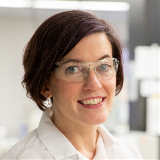
Dr. Williamson is the US Protein Sciences Lead at UCB and has been with the organization since joining as a research scientist in 2015. She currently leads a team of scientists who provide non-antibody protein reagents for global preclinical discovery projects. Prior to their acquisition by UCB, Jess and the Protein Sciences team were part of Beryllium Discovery, a CRO specializing in gene to structure services. She completed her PhD at Yale University in Molecular Biophysics and Biochemistry and a postdoc at Harvard Medical School, during both she studied the structure and assembly of challenging systems, like amyloid and membrane proteins. In addition to her role, Jess advocates for ED&I (Equity, Diversity and Inclusion), Women in Leadership, and environmental sustainability practices at UCB.
K. Dane Wittrup, PhD, C.P. Dubbs Professor, Chemical Engineering & Bioengineering, Massachusetts Institute of Technology

Prof. Dane Wittrup attended the University of New Mexico as an undergraduate, graduating Summa Cum Laude with a Bachelor's in Chemical Engineering in June 1984. Wittrup went on to attend the California Institute of Technology in Pasadena, where he worked with Prof. James Bailey on flow cytometry and segregated modeling of recombinant populations of Saccharomyces cerevisiae. After obtaining his PhD in Chemical Engineering with a minor in Biology in 1988, he spent a brief time working at Amgen before becoming an Assistant Professor of Chemical Engineering at the University of Illinois at Urbana-Champaign in 1989. He moved to the Massachusetts Institute of Technology in September of 1999, where he is now the C.P. Dubbs Professor of Chemical Engineering and Biological Engineering, in addition to working with the Koch Institute as the Associate Director for Engineering.
Michael Wolfe, MD, Professor, Physiology and Biophysics, Case Western Reserve University

M. Michael Wolfe, MD, received his B.S. and MD degrees from The Ohio State University. Upon the completion of his postgraduate training in Internal Medicine and Gastroenterology, including a year as Chief Medical Resident, he served on the faculty at the University of Florida and then Harvard Medical School. In 1996, Dr. Wolfe became Director of the Section of Gastroenterology at Boston University, where he served for 14 years before relocating in November 2010, to Cleveland, Ohio, to assume the position of The Charles H. Rammelkamp, MD, Jr. Professor of Medicine and Chair of the Department of Medicine of the MetroHealth System. In January 2018, Dr. Wolfe stepped down as Chair of Medicine and served in the capacity as Medical Director of Strategy and Innovation at MetroHealth until his retirement from the organization in January, 2019. Dr. Wolfe is currently Professor of Medicine and Professor of Physiology and Biophysics at Case Western Reserve University. He has devoted his career to the investigation of the regulation and biological relevance of gastrointestinal regulatory peptides. His current research interests include the physiological and pathological significance of glucose-dependent insulinotropic polypeptide (GIP) and specifically its role in the etiology and treatment of obesity and related disorders. In all, he has authored or co-authored over 300 original scientific manuscripts, chapters, reviews, and abstracts. In addition to his role as an external reviewer on NIH study sections and an internal reviewer at the NIH, he served as Chair of the Advisory Board for Gastrointestinal Drugs at the USFDA from July 1, 2001 to June 30, 2003. From 2019-2021, Dr. Wolfe served as the CMO for Lobesity LLC, a biotech that he co-founded, which initiated the development of a GIP monoclonal antibody generated in his laboratory to treat obesity and related disorders.
David W. Wood, PhD, Professor, Chemical & Biomolecular Engineering, The Ohio State University

David Wood is currently a professor of Chemical and Biomolecular Engineering at The Ohio State University, where he continues to work on self-cleaving tag technologies for research and biopharmaceutical applications. He holds an undergraduate degree from Caltech with a double major in biology and chemical engineering, as well as a PhD from Rensselaer Polytechnic Institute in Chemical Engineering, and has experience in downstream processing and proess development at Amgen and Bristol Myers Squibb. He has published over 50 papers, book chapters and reviews in protein engineering, and holds several patents on technologies developed in his lab. Most recently, he is a co-founder of Protein Capture Science; a company formed to commercialize his split-intein technology for protein purification.
Jiansheng Wu, PhD, VP of Protein Sciences, Protein Sciences, WuXi Biologics
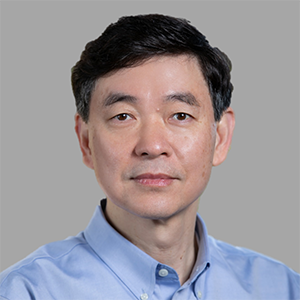
Dr. Wu is the head of the Protein Sciences department, responsible for operations and strategy. Prior to WuXi Biologics, he worked for more than 15 years at Genentech and Celera on over 50 drug development programs. His expertise includes automated expression, purification, and characterization of diversified proteins such as antibodies, antigens, enzymes, and complex recombinant proteins. Dr. Wu received his Ph.D. from Shanghai Institute of Biochemistry and his Post-Doctoral at UCLA.
Sean Yamada-Hunter, PhD, Postdoctoral Research, Mackall Lab, Stanford Cancer Institute, Stanford University

Sean is a postdoctoral researcher in Crystal Mackall's lab at Stanford University applying protein engineering and synthetic biology techniques to CAR T therapy to design improved therapeutic modalities for treating pediatric cancers. Sean received his PhD from Stanford in Cancer Biology in the lab of Jennifer Cochran.
Tsuyoshi Yamaguchi, Research Scientist, Bioprocess Research and Development Laboratories, Manufacturing Division, Kyowa Kirin Co., Ltd.

Tsuyoshi Yamaguchi is a research scientist in the Bioprocess Research and Development Laboratories of Kyowa Kirin. His work focuses specifically on the development of upstream processes (cell culture processes) in the early and late development stages of therapeutic monoclonal antibodies. He loves camping in nature.
Aerin Yang, PhD, Basic Life Research Scientist, Molecular and Cellular Physiology, Stanford University

Aerin is a postdoctoral researcher at Stanford University, working with Dr. Chris Garcia. Her research centers on engineering cell surface receptors/ligands and developing protein engineering tools to study protein-protein coevolution. She earned her Ph.D. in Chemistry from KAIST, South Korea, mentored by Dr. Hee-Sung Park. Her graduate thesis focused on developing chemical biology tools for site-specific modification of proteins and investigating the fundamental mechanisms of post-translational modifications, which was recognized with multiple awards and honors, including an Agarwal Award, a Dow Chemical Award, and a Best Thesis Award from KAIST. She came to Stanford to work on engineering protein-protein interactions by interdisciplinary approaches. During her postdoctoral training, she pioneered a synthetic platform for coevolving two proteins using a "library-on-library" approach, which can be integrated with machine learning to provide unparalleled granularity in exploring protein-protein interactions. Aerin’s contributions have been published in reputable journals, and she has received recognition such as HFSP Postdoctoral Fellowships.
Jiwon Yang, PhD, MBA, Principal Scientist, Department of Innovation & Product Development, The Jackson Laboratory
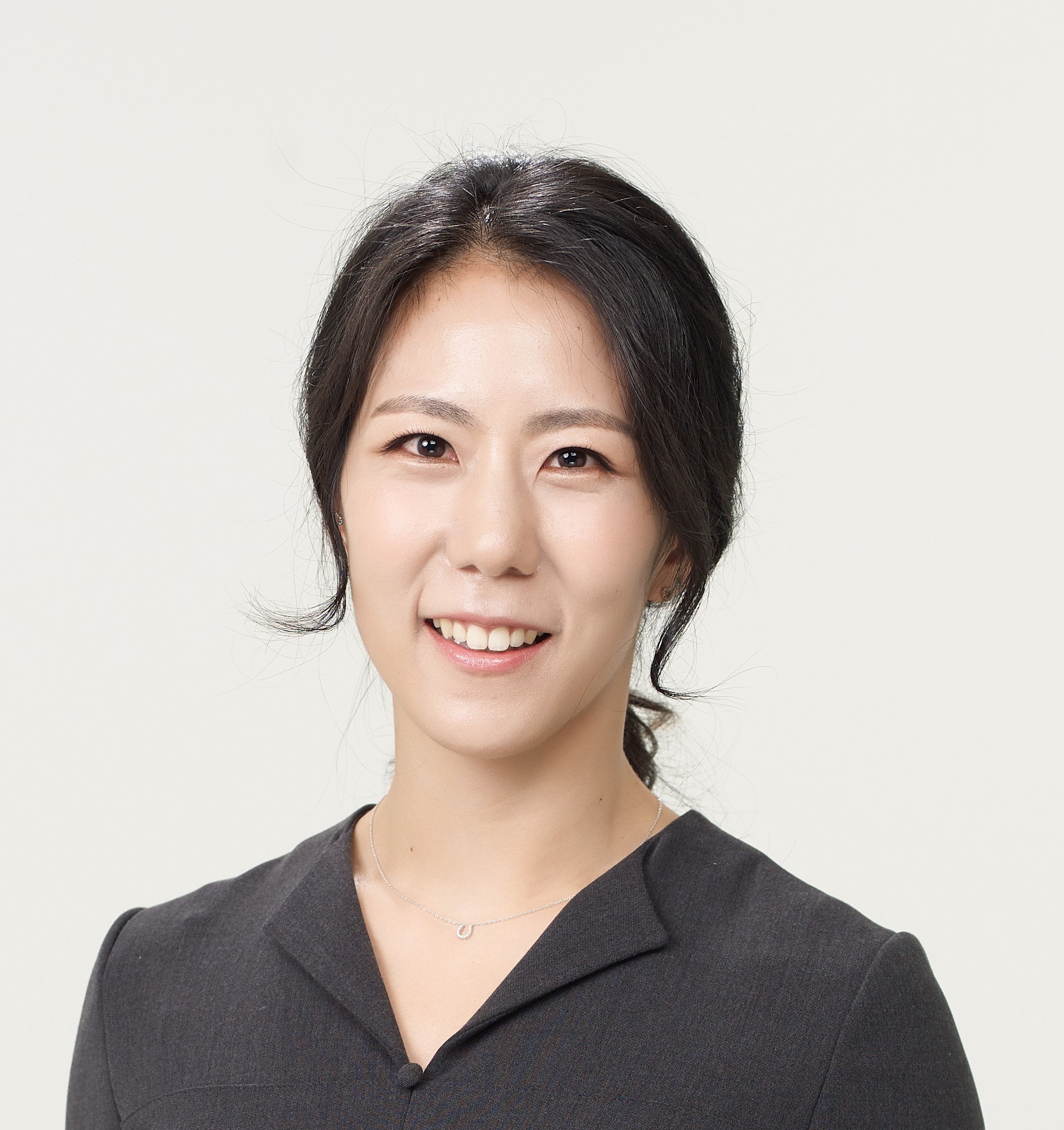
Dr. Yang joined JAX in November 2018, and has been working on various projects, including cytokine release syndrome (CRS) platform development using PBMC-humanized mice. The project is mainly focused on developing a platform to assess the efficacy and toxicity of immuno-oncology therapeutics, including antibody therapeutics and CAR T cells, using the PBMC-humanized mice. Jiwon's goal is to bring this platform one step closer to the clinic, and focus on clinical relevance.
Mark Yarmarkovich, PhD, Principal Investigator, Assistant Professor, NYU School of Medicine
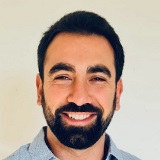
My work focuses on developing T cell immunotherapies for intractable cancers. I have experience at all stages of development, from target discovery, immune receptor engineering, preclinical and IND-enabling studies. I have developed methods for developing immunotherapies for low mutational solid tumors that I expect will apply across many tumor types. Our lead CAR candidate is slated to enter clinical trials in 2022/23. My expertise spans cancer biology, biotechnology, bioinformatics, and immunology. My PhD work at the University of Pennsylvania focused on developing strategies for developing immunotherapies in immunologically cold tumors and my previous work at Genentech involved antibody engineering for increased potency and specificity.
Minmin (Mimi) Yen, PhD, CEO & Co-Founder, PhagePro Inc.

Dr. Minmin Yen (Mimi) researched the use of phages as an intervention for cholera during her thesis work in the Camilli Lab at Tufts University, resulting in publications in Nature Communications and eLife. As a biological engineering undergraduate at MIT, she trained with Professors David Schauer and Darrell Irvine and researched oral vaccine delivery. Passionate about developing innovative solutions for infectious diseases, Mimi was awarded the Howard Hughes Medical Institute MERGE-ID fellowship, which focused on translating bench science to clinical applications, for her graduate education. During her thesis research, Mimi traveled to Haiti to study the cholera epidemic, where she witnessed the need for innovative healthcare solutions. She also served as the U.S. representative in the Young Leaders Circle for three years as a part of American Society of Microbiology’s initiative to address the needs of international early-stage scientists. Mimi recently received her Master’s in Public Health at Boston University, with a focus in global health and program management.
Alexander Yermanos, PhD, Lecturer, Systems & Synthetic Immunology, ETH Zurich

Alexander Yermanos is an assistant professor at the University Medical Center, Utrecht, Netherlands and maintains a partial affiliation at ETH Zurich, Switzerland, as a senior scientist and lecturer. His research integrates principles of systems, synthetic, and computational immunology to investigate the adaptive immune response in the context of infection, immunization, and disease. This involves both linking computational and functional properties of adaptive immune repertoires and developing immunogenomics software with applications including single-cell immune repertoire sequencing, phylogenetics, and machine learning. Alex holds a BA in Biochemistry from Columbia University (2014) and an MS in Computational Biology and Bioinformatics from ETH Zurich & University of Zurich (2016). He completed his PhD at ETH Zurich (2020) under the co-supervision of Professors Sai Reddy and Annette Oxenius and performed a postdoc at the University of Geneva in the lab of Professor Doron Merkler.
Francisco Ylera, PhD, Senior Staff Scientist, Research and Development, Bio-Rad Laboratories, Inc.
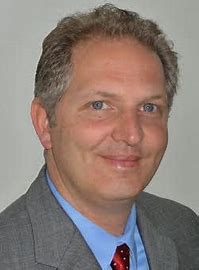
Francisco Ylera is the head of the R&D team that generated the Pioneer Antibody Discovery Platform. He has been with Bio-Rad for over 18 years and has worked on customer antibody generation projects to design the selection, antibody characterization, and technical support, as well as method optimizations. Francisco holds a diploma in chemistry from RWTH Aachen University, Germany, a Ph.D. in Biochemistry from the Free University Berlin, Germany. After his Ph.D., he did a postdoc at the Harvard Institute of Medicine, Boston.
Carissa L. Young, PhD, Independent Consultant

Carissa has 18+ years in pharma-biotech spanning nonclinical, CMC, and clinical development across multiple modalities (cell therapies, biologics, small molecules) and disease indications. She has built and managed cross-functional teams in Drug Development and Data Sciences to maximize the value of therapeutic pipelines, portfolio, and platforms. Her versatility enables her to engage across the diversity of translational sciences, process-product development life cycle, clinical/nonclinical study designs to regulatory filings, data quality oversight and compliance. Previous industry experience includes Intellia Therapeutics, Takeda, Applied Biomath, and Johnson & Johnson. Teaching experience as Instructor at Harvard Medical School and the University of Delaware. Carissa received her Chemical Engineer degrees at Georgia Tech (BS) and the University of Delaware (PhD), completing her post-doctoral training in Biological Engineering at MIT.
Lior Zangi, PhD, Associate Professor, Department of Medicine, Cardiology and Genetics and Genomic Sciences, Icahn School of Medicine at Mount Sinai

Lior Zangi, PhD, is an Associate Professor with Tenure at the Icahn School of Medicine at Mount Sinai, New York. He completed his education and training at the Weizmann Institute of Science, and Harvard University. Studies methods for delivering modified mRNA (modRNA) to the heart to induce cardiac regeneration, protection, or cardiovascular regeneration post-ischemic injury. He has established a new method, modRNA-based, for minimal invasive gene delivery into specific cell types and organs. His early work showed the first successful delivery of modRNA into cardiac and skeletal muscle, and pioneered using modRNA to treat ischemic disease. His invention led to the first successful Phase 2 cardiac modRNA therapeutic clinical trial using VEGFA modRNA. In the last few years, these modRNA technology have been used for COVID-19 vaccinations and promoting cardiovascular regeneration in ischemic heart disease. Currently, Prof. Zangi’s laboratory investigates mRNA delivery method into healthy or unhealthy specific cell types and organs, to fight different diseases such as heart failure and cancer.
Xiaobin Zhang, PhD, Principal Scientist, Takeda Pharmaceuticals

Xiaobin Zhang is a Principal Scientist in the bioanalytical science and immunogenicity group at Takeda Pharmaceuticals. In this role, Xiaobin leads a team to support the immunogenicity assessment of large therapeutics such as peptides, antibodies, antibody-drug conjugates, multidomain proteins, AAVs and oligonucleotide-based therapeutics for oncology, neuroscience, gastrointestinal and rare diseases. Prior to his role at Takeda, Xiaobin was a Staff Scientist and Lead Scientist at Covance (now Labcorp, NC, USA) and mainly worked on the method development and validation for PK, ADA, and NAb assays. Xiaobin also served as a Senior Scientist for cell-based bioassay method development and validation in the GMP lab at PPD (NC, USA). He received his PhD from Peking University Health Science Center (Beijing, China) and postdoctoral training in University of Nebraska Medical Center (NE, USA) and University of Wisconsin-Madison (WI, USA).
Marieke Koedood Zhao, PhD, Vice President, Process Sciences, Kudo Biotechnology

Marieke has 20+ years experience in bio-therapeutic development, facilitating collaboration of research, preclinical, CMC, and clinical development teams and had a track record of ushering novel Biologics from pre-development to first-in-human clinical trials with aggressive timelines. She has hands-on experience in drug substance process development, technology transfer, process scale-up, selection and management of Contract Manufacturing Organizations (CMOs), CMC strategy, and regulatory filings for antibody-drug conjugates and mRNA products entering the clinic. Previous industry experience includes GreenLight Biosciences, Mersana Therapeutics, ImmunoGen and Wyeth Biopharma. Marieke received her PhD from the University of Zurich in Switzerland and completed post-doctoral training at Boston University.
Helen Haihong Zhong, PhD, Senior Vice President, Preclinical Research, BiOneCure Therapeutics Inc.

Dr. Zhong has Over 20 years of big pharma and biotech experiences in preclinical and clinical development, currently serve as SVP at a US and China based biotech company. She posses a strong background in Oncology and Immunology, and formal training in Medicine and rich experience in biologics including 14 years specialized experience in antibody drug conjugate (ADC) discovery and development. She has hands on experience with target selection, lead identification and optimization to IND compounds, led or contributed to the discovery and progression into clinic of over 10 drug candidates and one drug approval Her Postdoc was in the Department of Immunology at Yale Medical School, PhD in Molecular Biology and Genetics from Dartmouth College. She has 36 peer-reviewed publications and 8 issued or published patent applications
Xin Zhou, PhD, Assistant Professor, Biological Chemistry & Molecular Pharmacology, Dana-Farber Cancer Institute, Harvard Medical School

Xin Zhou is an Assistant Professor of Biological Chemistry & Molecular Pharmacology, Harvard Medical School, and Cancer Biology, Dana-Farber Cancer Institute. She obtained her PhD in Bioengineering with Dr. Michael Lin from Stanford University and did her postdoctoral training with Dr. Jim Wells at UCSF. Dr. Zhou’s research focuses on engineering functional protein sensors and switches for modulating biology. In the past, she has built proteins with versatile functions, including light-activated enzymes, phosphotyrosine recognition domains, antibody antagonists and agonists, and biosensors to measure SARS-CoV-2 antibodies. Her work was recognized by many awards including an NIH Pathway to Independence Award and a Damon Runyon-Dale F. Frey Award for Breakthrough Scientists. Dr. Zhou’s new research group aims to leverage the power of protein engineering to gain a deeper fundamental understanding of malignancies and to discover new avenues for therapeutic intervention.
Eugene A. Zhukovsky, PhD, CSO, Ichnos Sciences
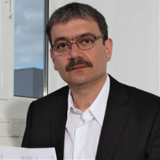
Dr. Zhukovsky has over 25 years of international experience in the research and development of novel immune-oncology therapies. He is currently serving the CSO of Ichnos Sciences. At Ichnos he is engaged in applying optimized novel bi- and trispecific antibody technologies to the development of immunotherapeutics for cancer. His background includes work in discovery, antibody engineering, and translational sciences, including the construction of drug discovery platforms. Dr. Zhukovsky is a co-founder and partner at ZM Scientific, a consultancy firm that advises biotechnology companies and works with investment firms by providing expert due diligence. Previously, he served as the CTO at GO Therapeutics where he created a T Cell Engagement platform to enable the leveraging of the company’s cancer cell-targeting antibodies. He also served as the CSO at Biomunex Pharmaceuticals, focused on developing immunotherapies based on checkpoint inhibitors and T cell engagers leveraging their bispecific antibody platform. As the CSO at Affimed, he led the optimization of their T and NK cell engager platforms and advanced candidates from discovery through clinical development. An Fc-optimized anti-CD19 program, which he has conceived of and led at Xencor, was subsequently licensed to a partner for clinical development; it has received a market authorization in the US and in Europe (Monjuvi/tafasitamab). Dr. Zhukovsky performed a postdoctoral fellowship at Genentech, Inc. He received a PhD in biochemistry from Brandeis University.
Jan-Willem de Gier, PhD, Professor, Biochemistry and Biophysics, Stockholm University
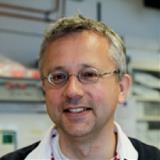
Jan-Willem de Gier is Professor of Biochemistry at Stockholm University. Main interest of his laboratory is the creation of E. coli recombinant protein production strains. To this end, both evolutionary and engineering approaches are used. In addition, he is Co-Founder of the biotechnology companies, Xbrane Biopharma AB and Abera Bioscience AB.
Felipe de Sousa e Melo, PhD, Senior Scientist, Oncology Bioinformatics, Genentech Inc.

Felipe de Sousa e Melo is a group lead, Project team lead and Senior Principal Scientist in the department of Discovery Oncology at Genentech. He joined the company in 2014 after completing his BA and MS in biochemistry from University of Lausanne, Switzerland and PhD from the University of Amsterdam, the Netherlands. Following a successful Post-doc at Genentech, Felipe now leads a multidisciplinary research group focused on developing novel therapeutic modalities for the treatment of colorectal cancer. He has co-authors over 40 highly cited publications in leading journals and is a co-inventor on several patents.
Piotr van Rijssel, Application Scientist, ENPICOM
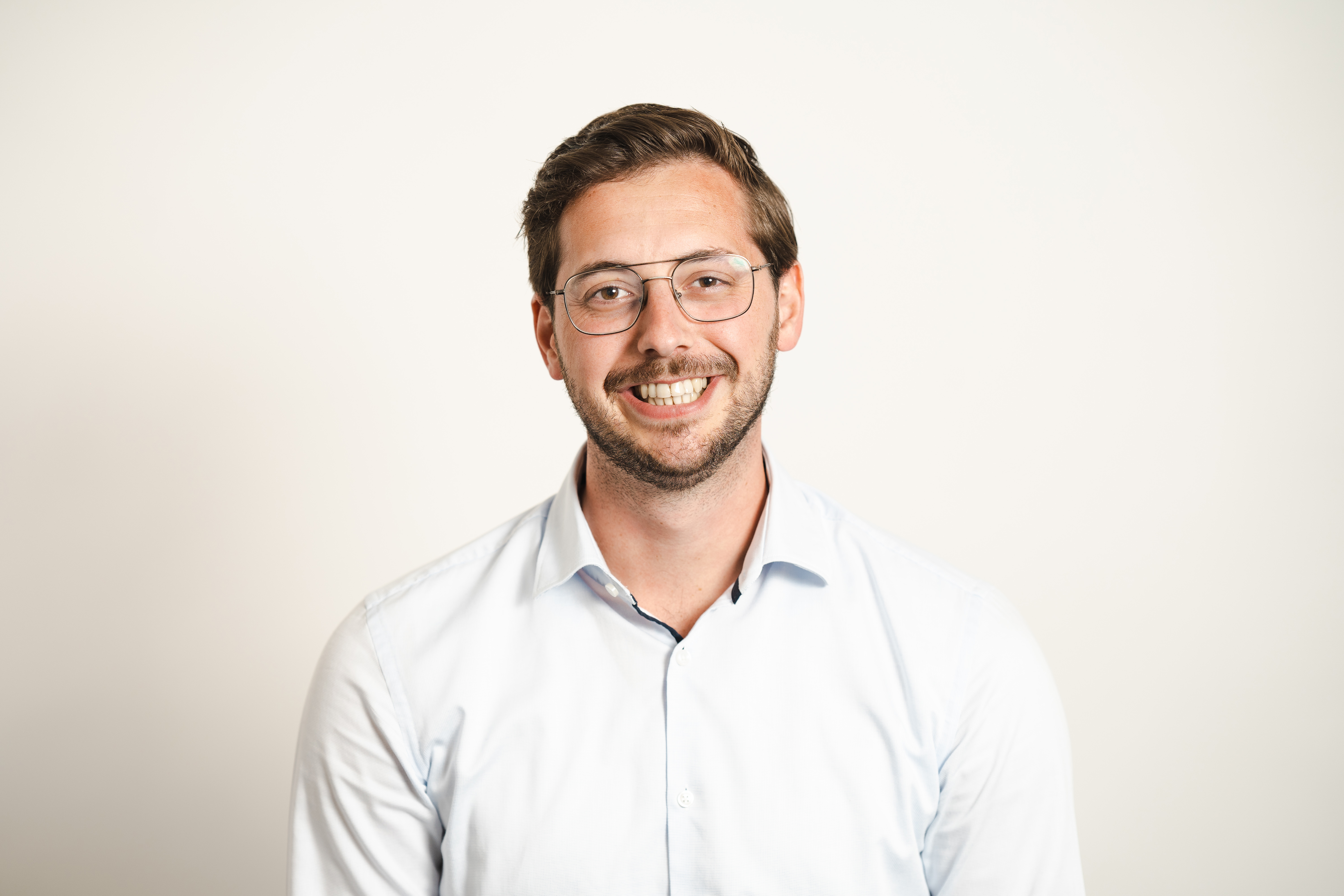
Piotr van Rijssel is an Application Scientist at ENPICOM where he helps develop tailored workflows to help life scientists maximize their insights and accelerate the development of new immunotherapeutics and vaccines. Piotr focuses on providing technical consultations and ensuring the successful application of ENPICOM’s solutions to customers’ research.
Edward van der Horst, PhD, CSO, Sensei Bio

Edward van der Horst, PhD, is a molecular pharmacologist with a strong focus on antibody drug development across diverse target classes in oncology. He has 20 years of research and development experience from Zenith Epigenetics Ltd., Igenica Biotherapeutics, Inc., OncoMed Pharmaceuticals, Tularik, Inc. (now Amgen), and U3 Pharma GmbH (now Daiichi-Sankyo). Dr. van der Horst’s contributions and discoveries have led to the clinical evaluation of several novel drug candidates at Igenica Biotherapeutics and OncoMed Pharmaceuticals, as well as to the first clinical stage anti-HER3 antibody at U3 Pharma GmbH. He received his postdoctoral training at Tularik, Inc., earned his PhD in biochemistry from the Max-Planck Institute of Biochemistry and conducted his master’s thesis at Max-Planck Institute of Neurobiology. He graduated with an MS of chemistry from the Ludwig Maximilian University of Munich.
Hans van der Vliet, MD, PhD, CSO, Lava Therapeutics

Hans van der Vliet, MD, PhD is scientific founder and CSO of Lava Therapeutics, a biotech company that develops proprietary V?9Vd2 T-cell engagers, and a medical oncologist and professor at the department of medical oncology of the Amsterdam UMC, Cancer Center Amsterdam.
2024年 方案
View By:









